This is the second segment of a ten day vacation in China:
CDG - HKG : AF188 (A380-800)
CAN - HAK : HU7010 (B738-800) You are here
HAK - HKG : HX108 (A320)
HKG - CDG : AF185 (A380-800)
This FR begins with the arrival in CAN by subway, where after the exit turnstiles (lower right) you immediately find a sas for an explosive detection check (center)
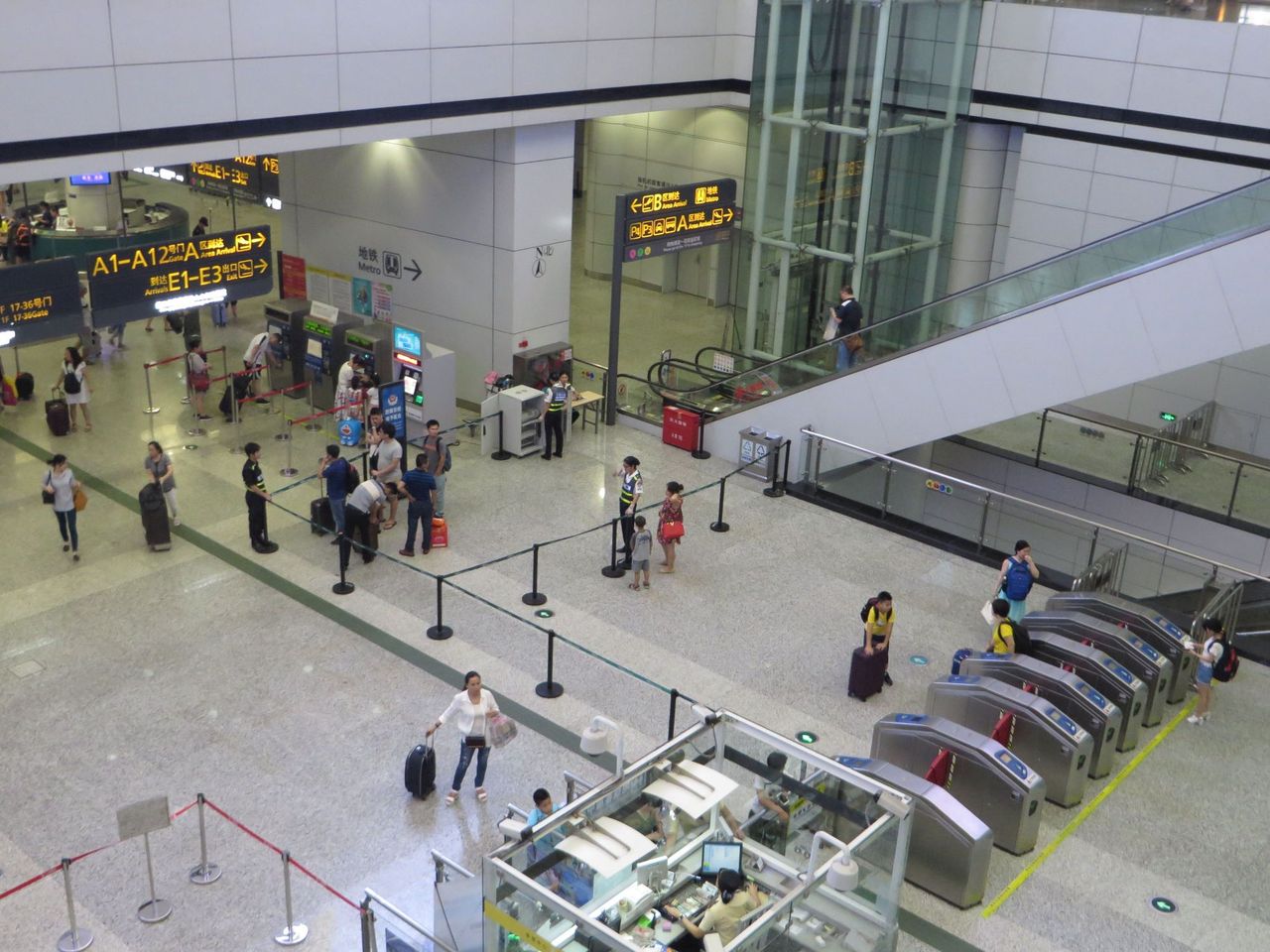
We wondered and were unable if these towering palm trees above the subway exit were fake or real.
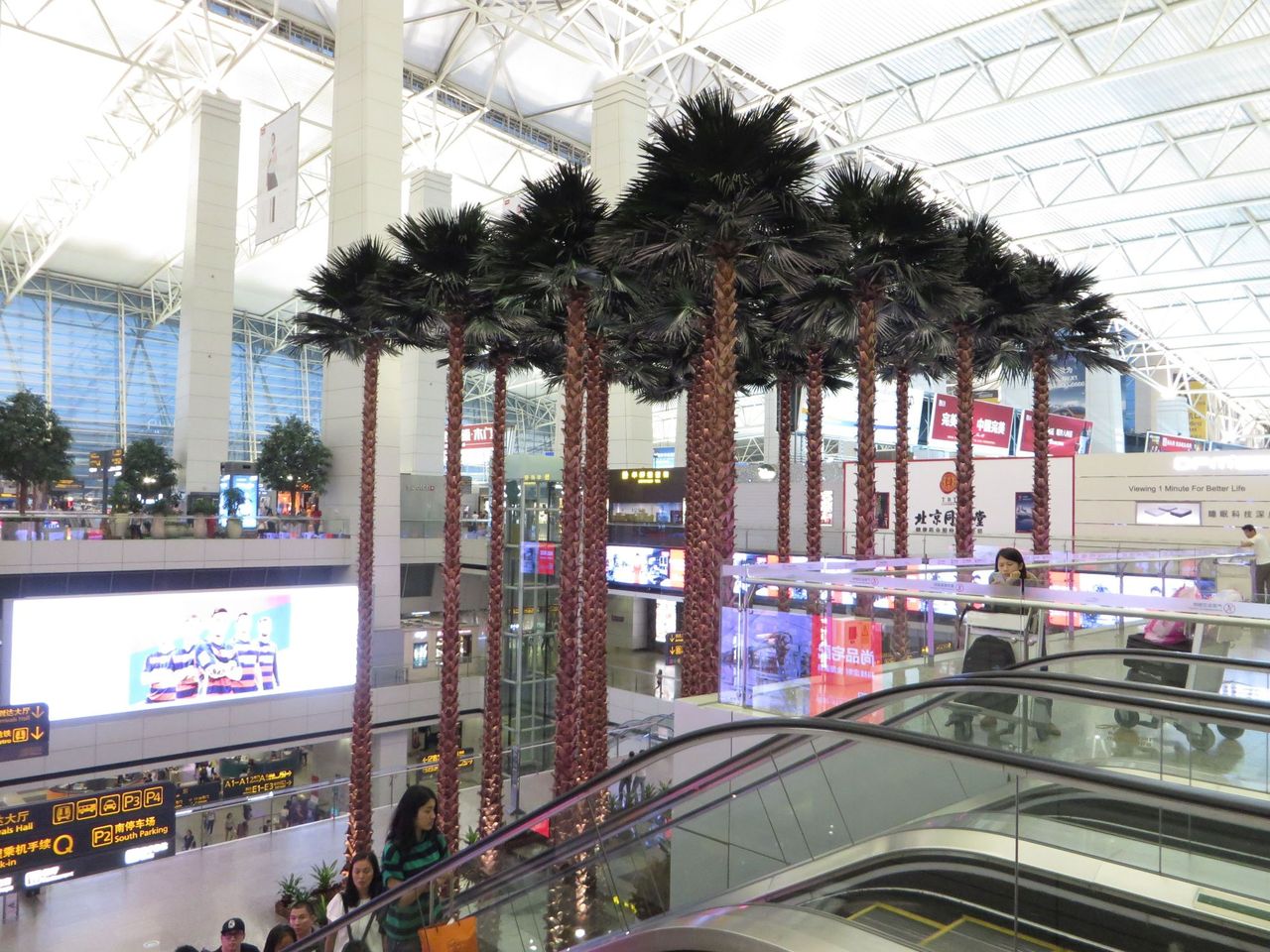
Passing by the check-in counters of CZ, with some dedicated to the CAN-PEK flights operated with A380s.
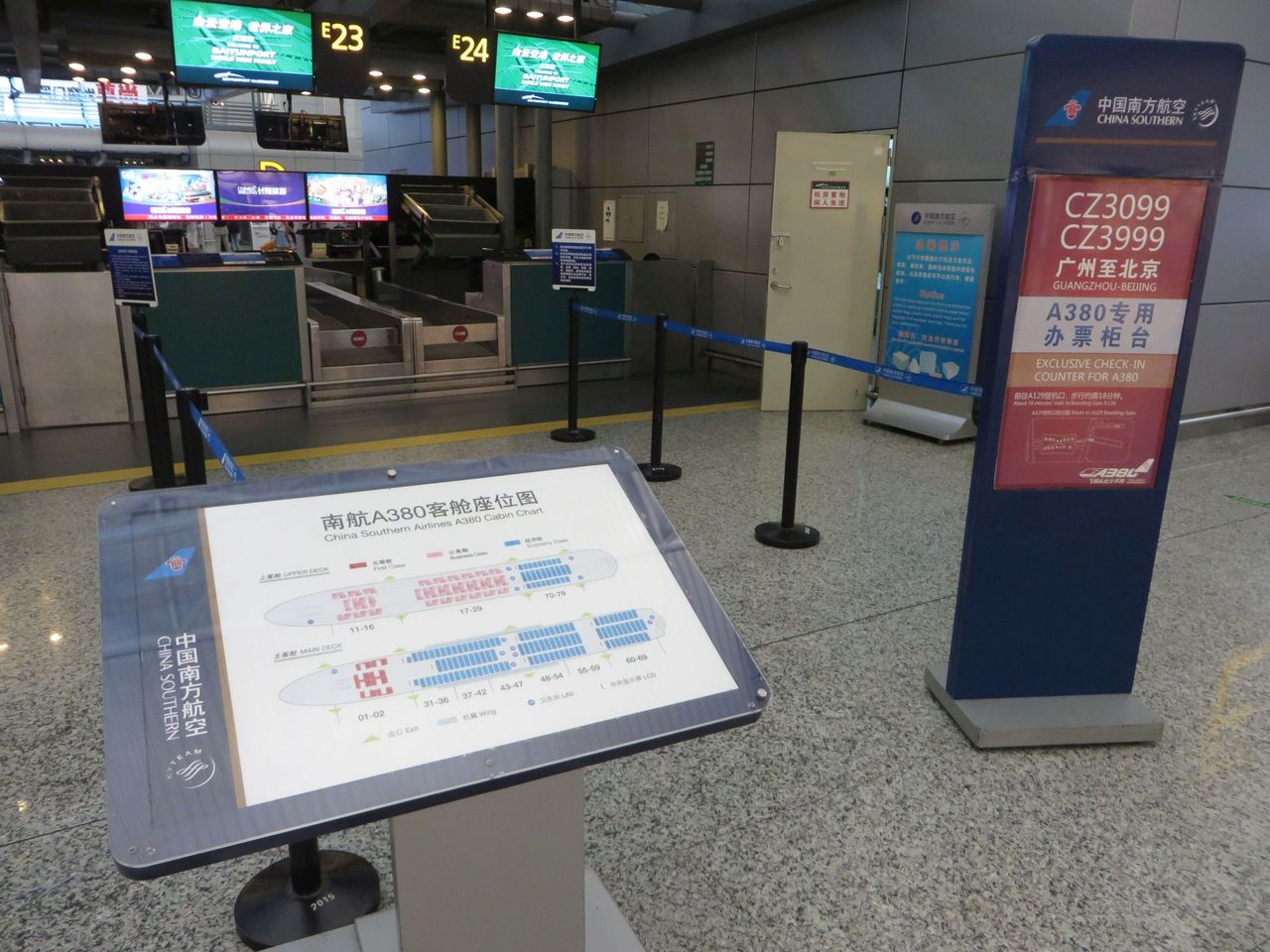
A distance indicator on a pillar. CAN’s terminal is huge, and an equal sized second terminal is under construction, to be served by an extension of the subway line which is already on the subway maps.
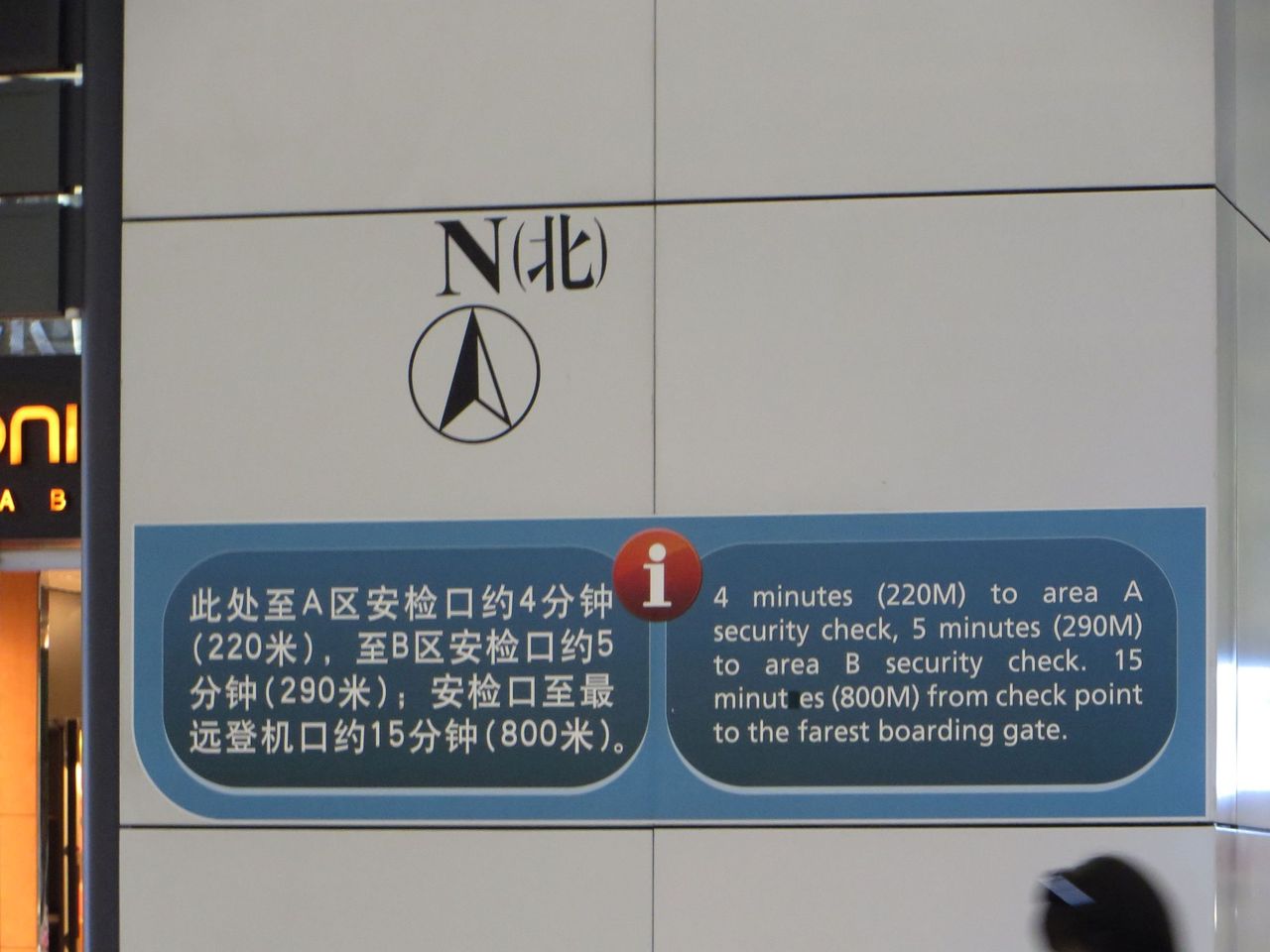
Modern and spotlessly clean toilets: obviously for advertising purposes, there was a multifunction Japanese toilet seat (with a detailed sales pitch ad).
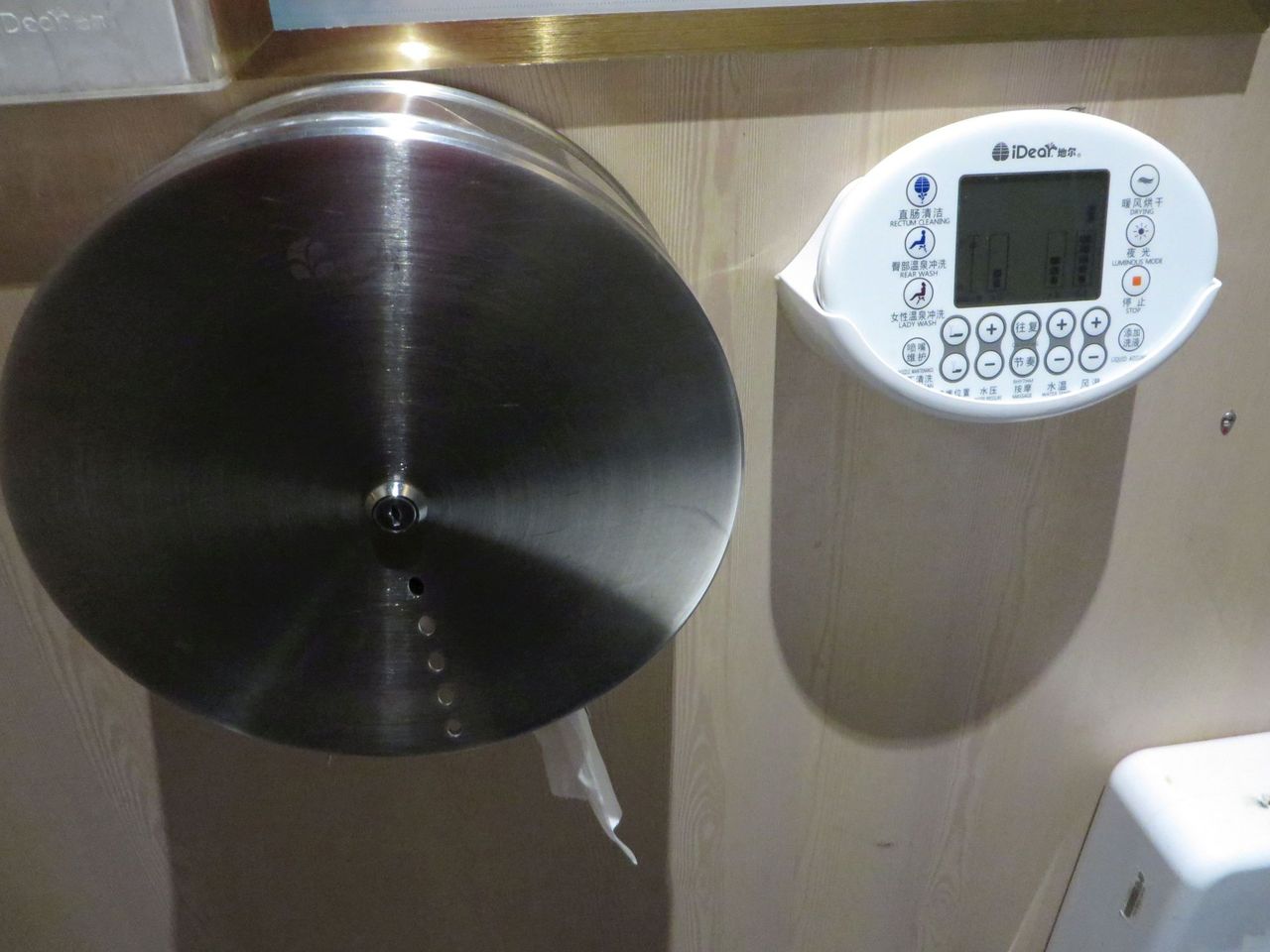
A view of the terminal landside
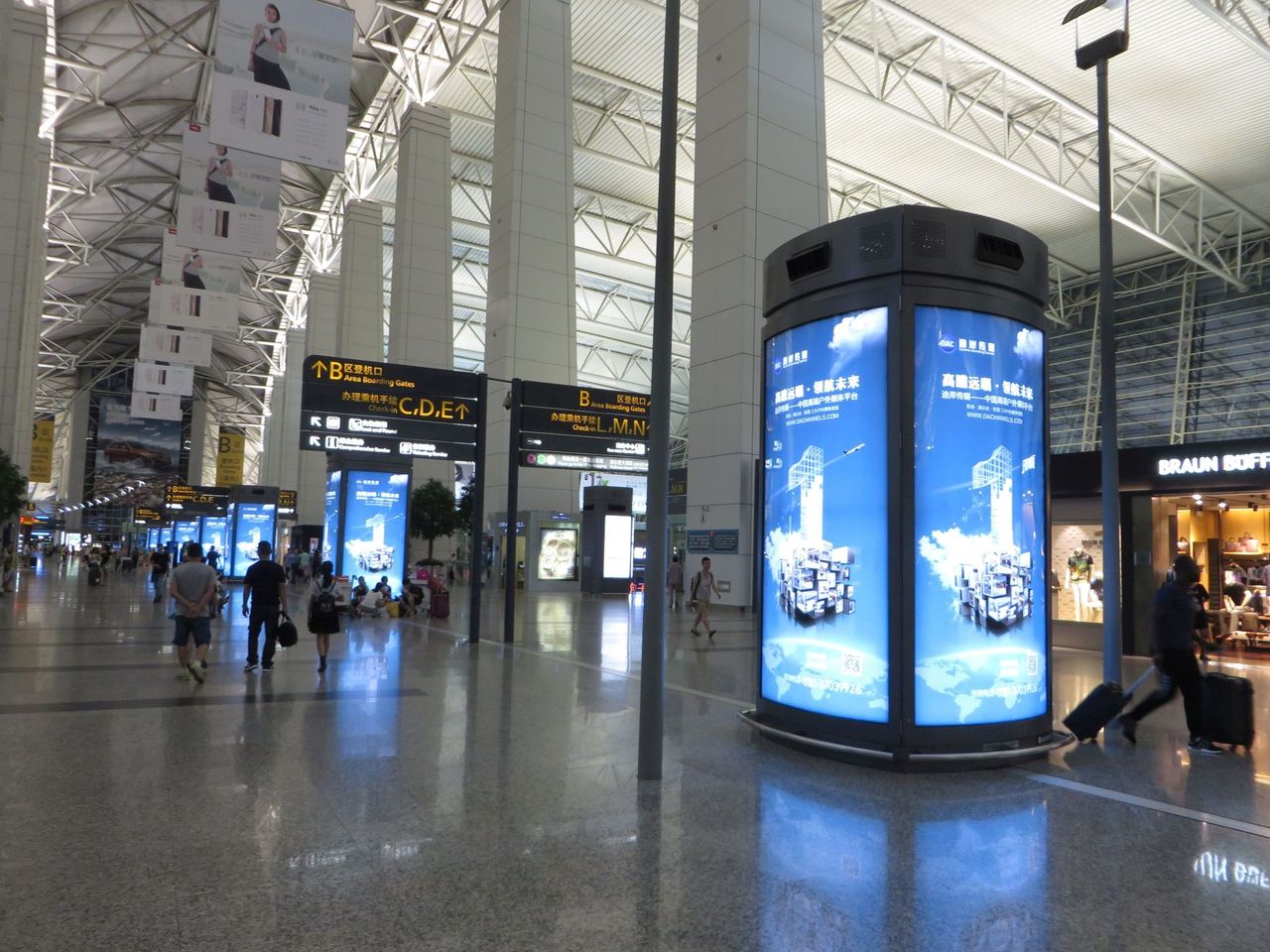
Going to the toilet was one way to spend the time until check-in would begin for our flight, which was done at a remote check-in counter bank, in this airport which is the main hub of CZ, itself the largest Chinese airline.
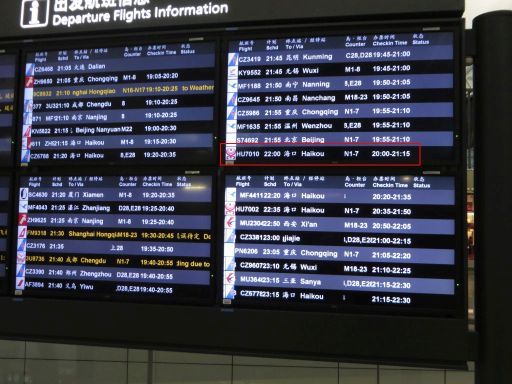
There was little waiting at the check-in for Hainan Airlines flights (the counters were dedicated per airline, and there were only two for HU)
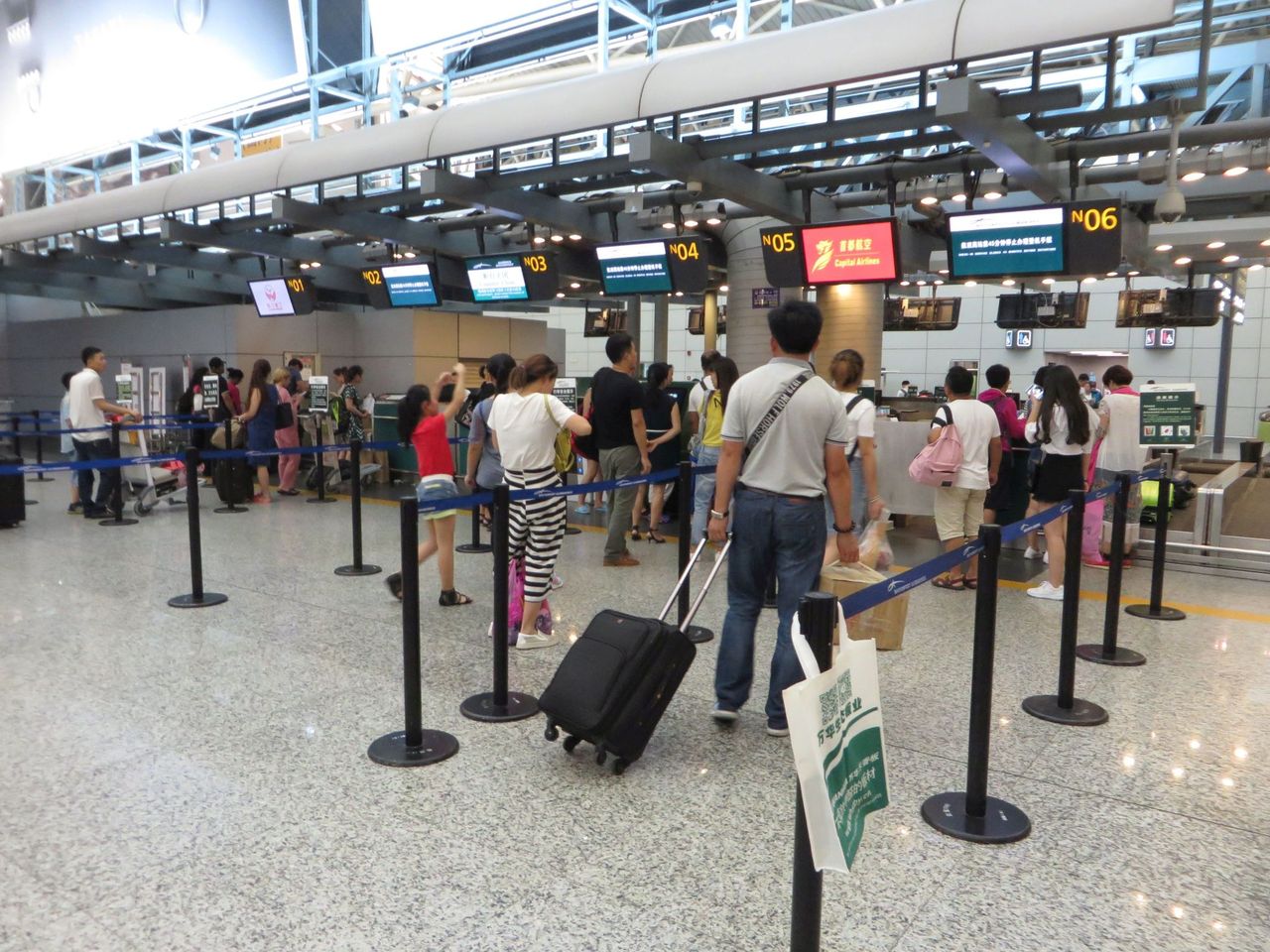
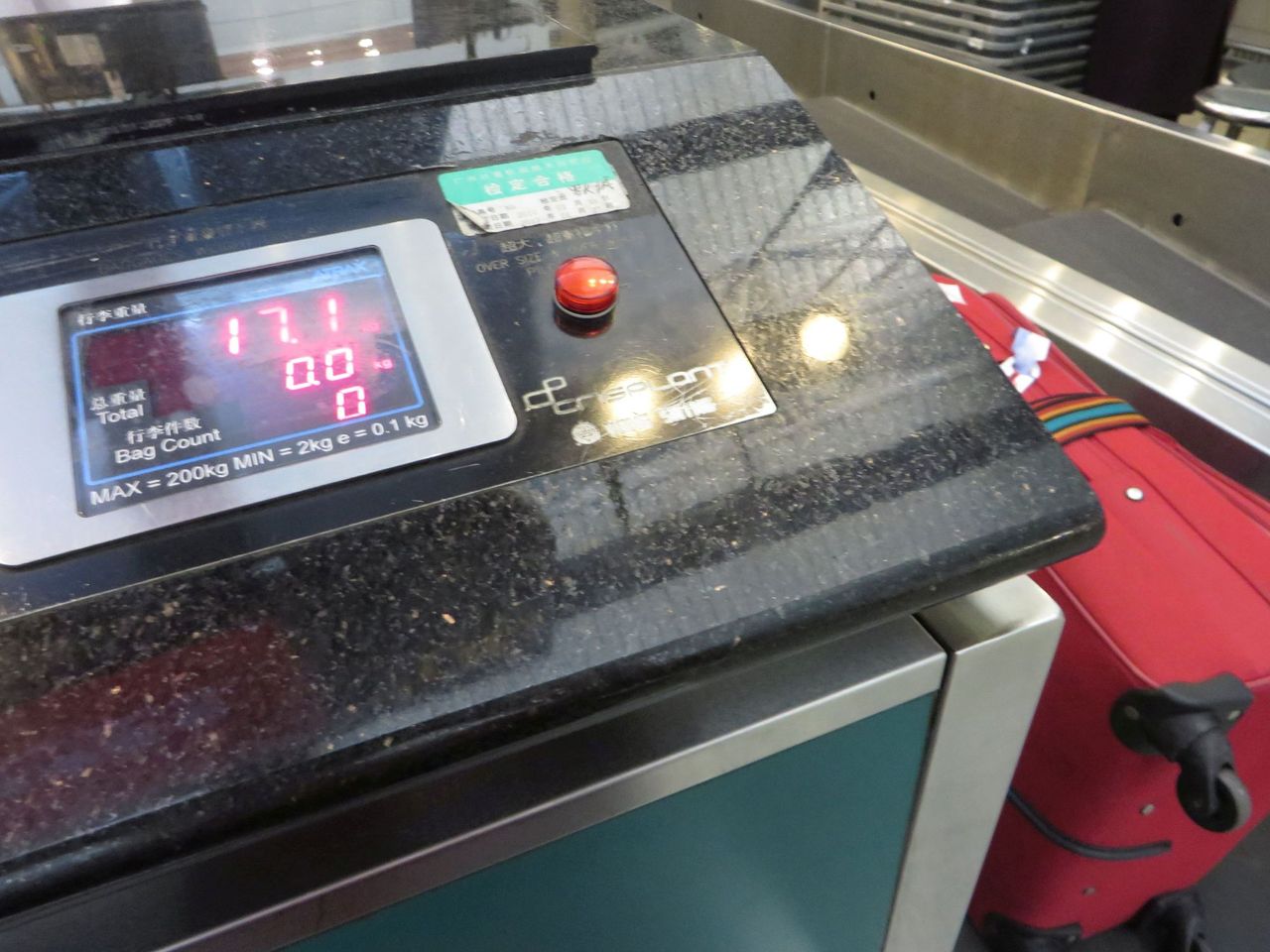
The staff had me sign this bilingual form vouching for the absence of lithium batteries and compressed gas in my hand luggage. The ban on lithium batteries in checked luggage is quite recent; it was reminded to me several times in the recent past but this was to date the only time I was asked to sign such a document.
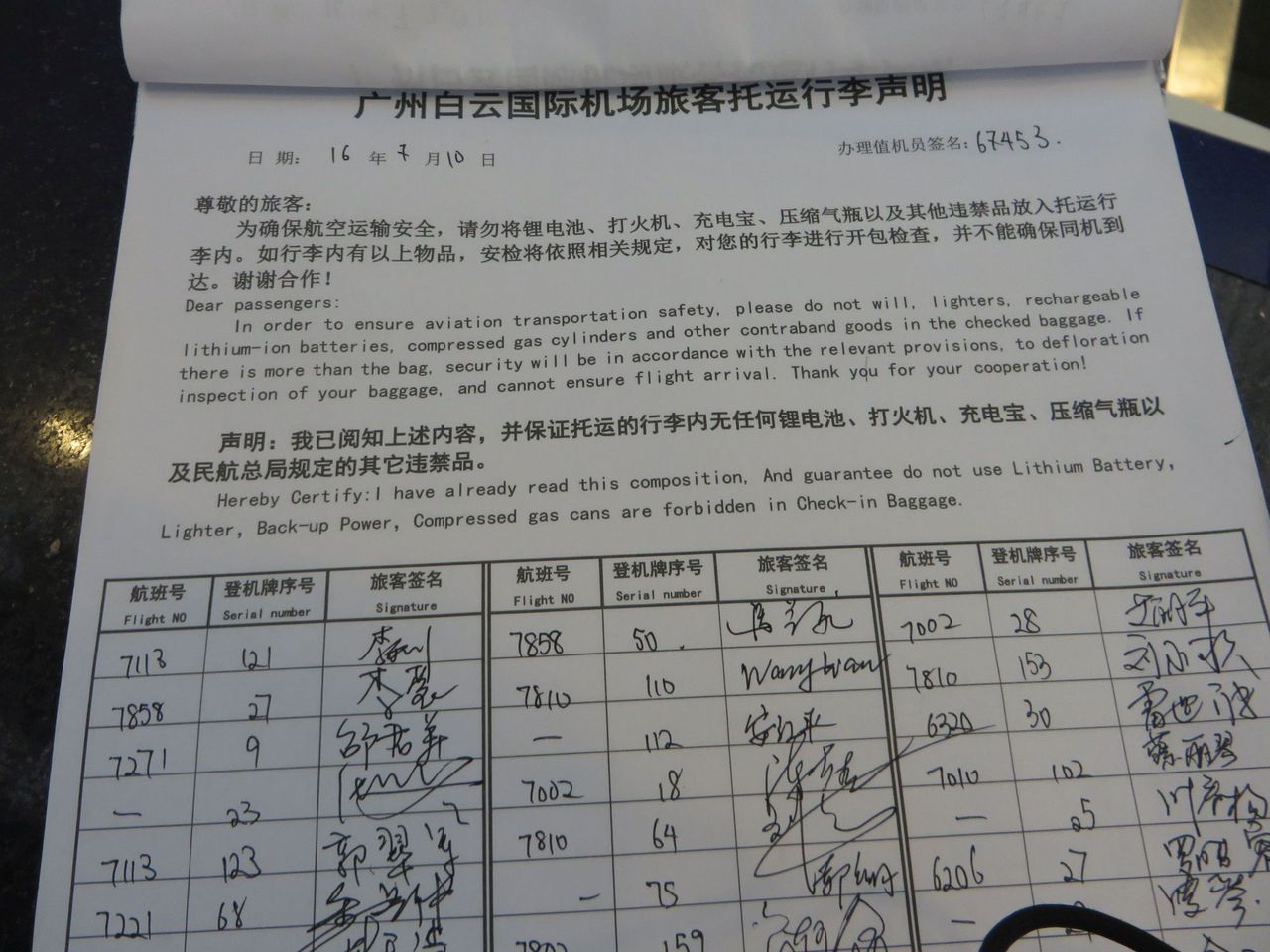
I received this BP with a tag for the checked luggage that I had vouched to be safe.
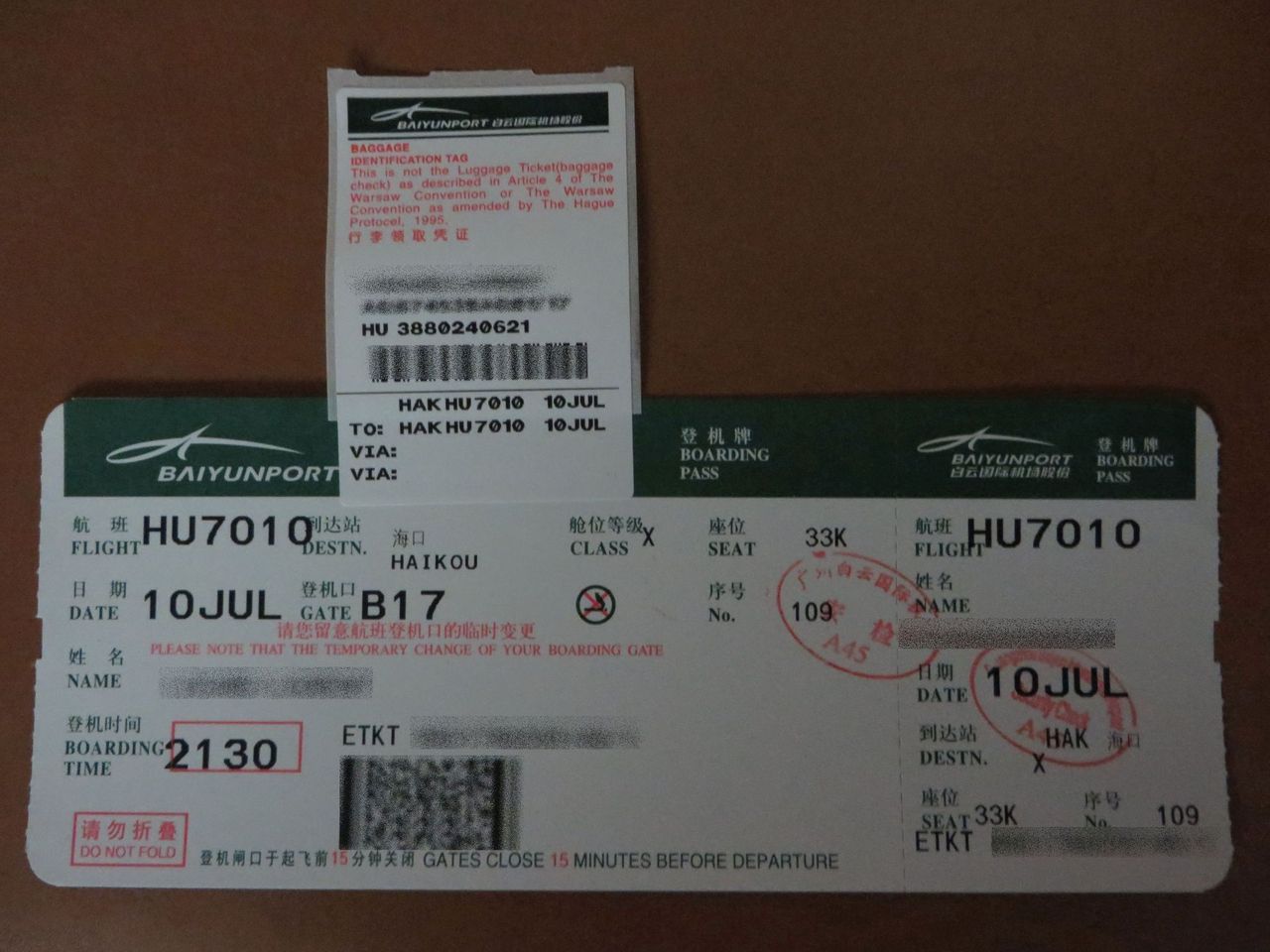
We went to the lower level to buy something to eat, because we did not expect to be fed much on a short and late night flight.
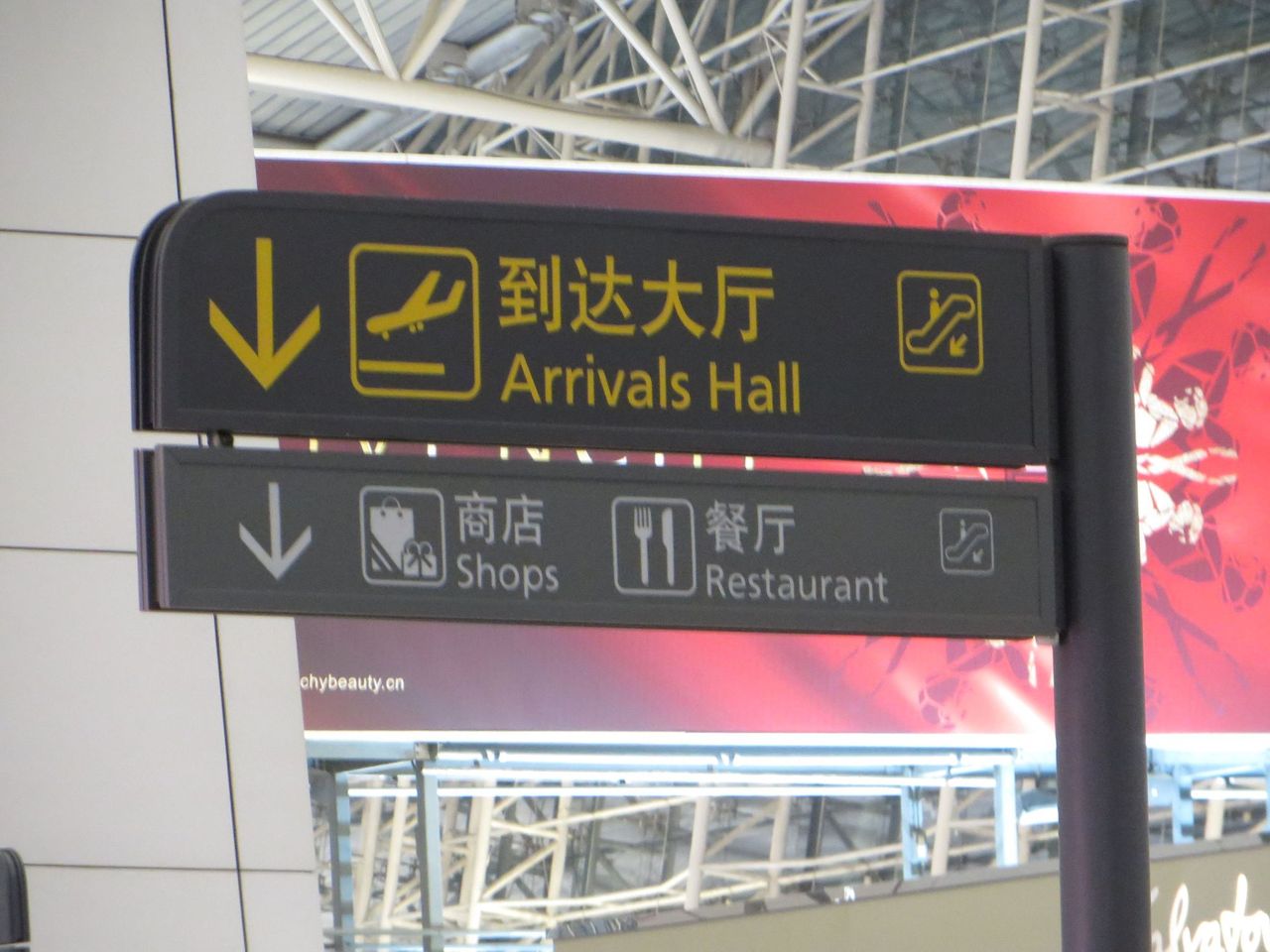
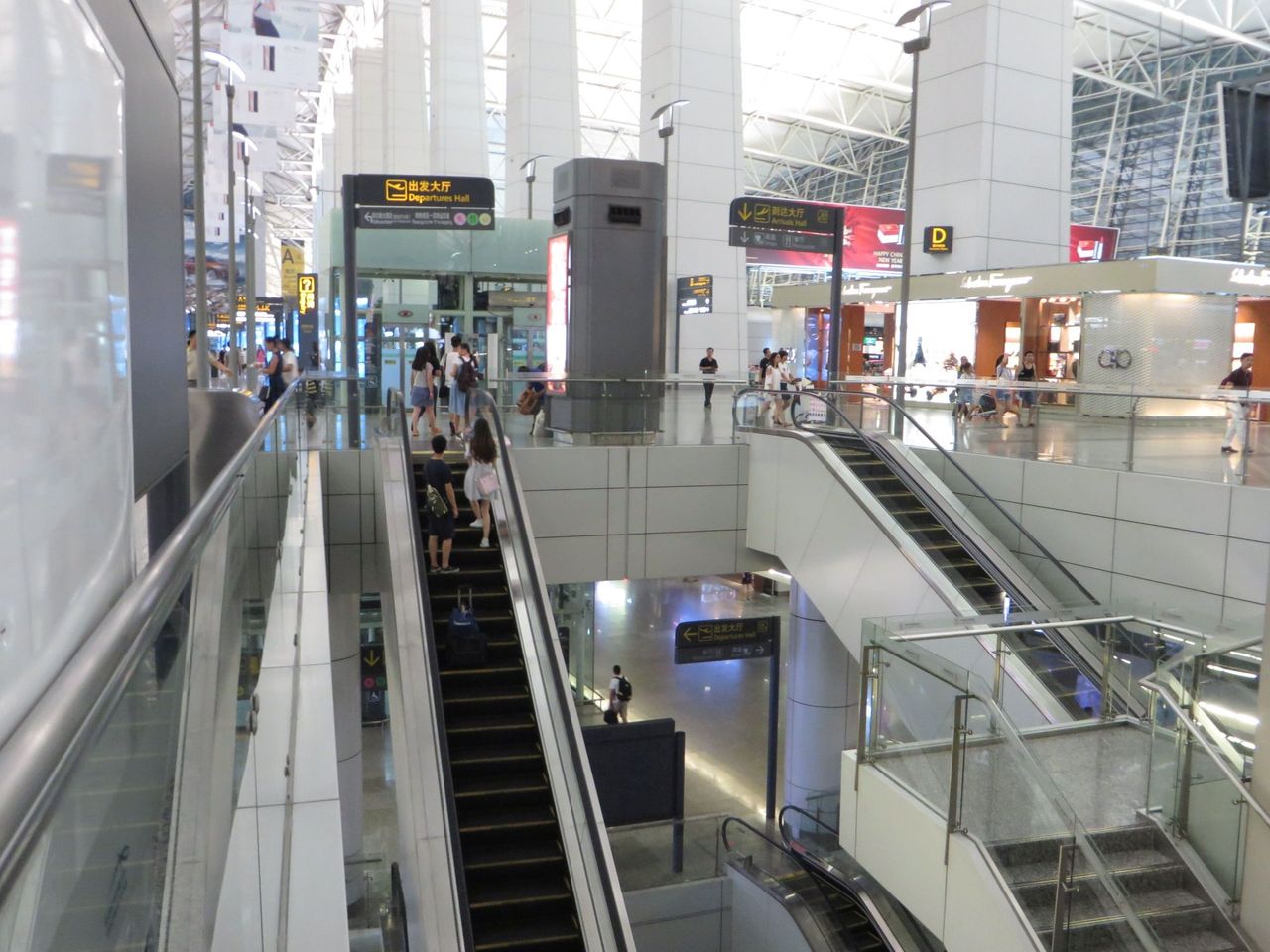
CAN is to the best of my knowledge the only Chinese airport which prohibits « high altitude parabolic » in English, and dropping an object from above in Chinese. I saw the same sign before reaching the luggage delivery room a few years ago.
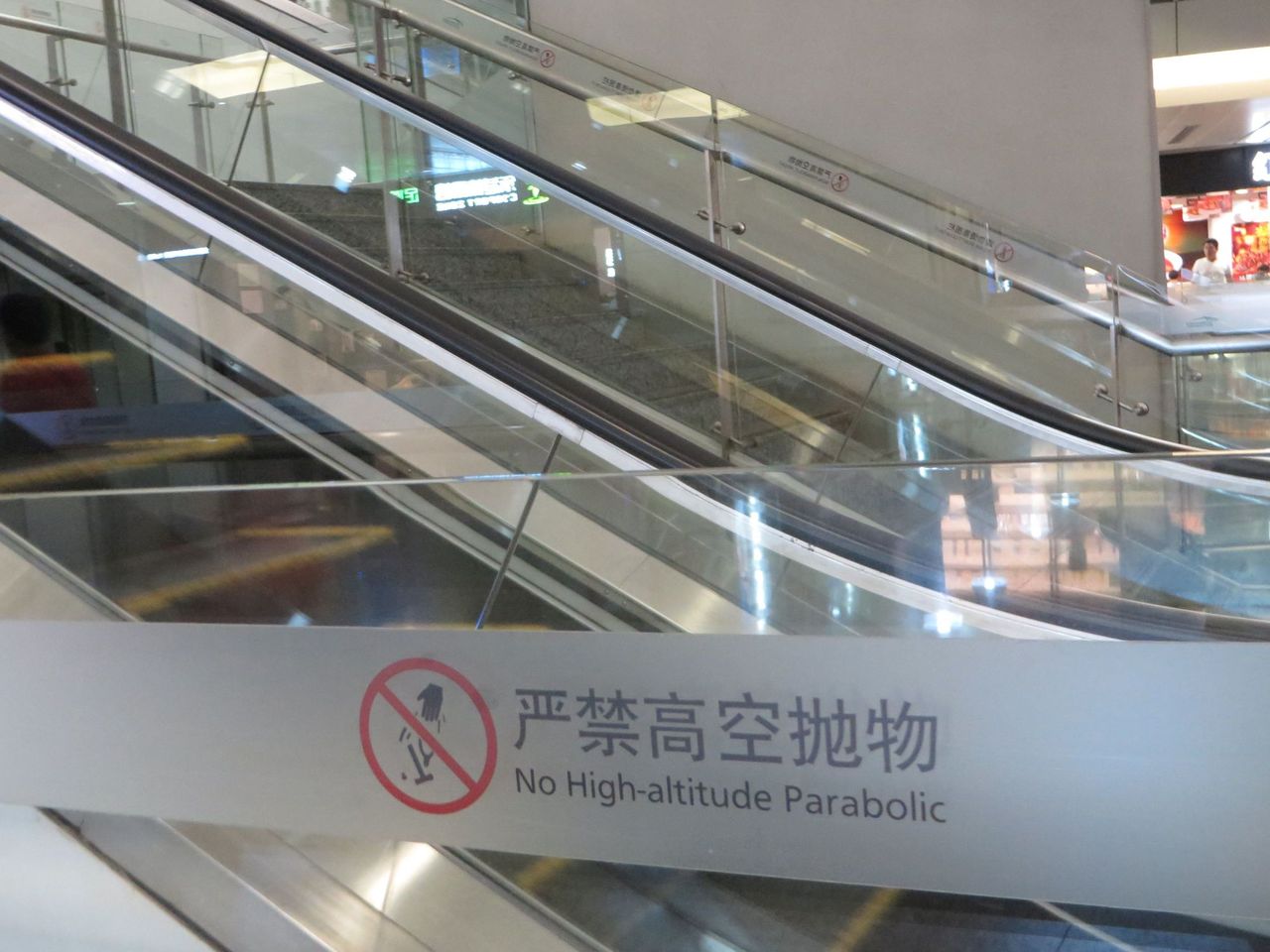
All escalators and travellators in CAN display the same impressive collection of pictograms of interdictions and recommendations.
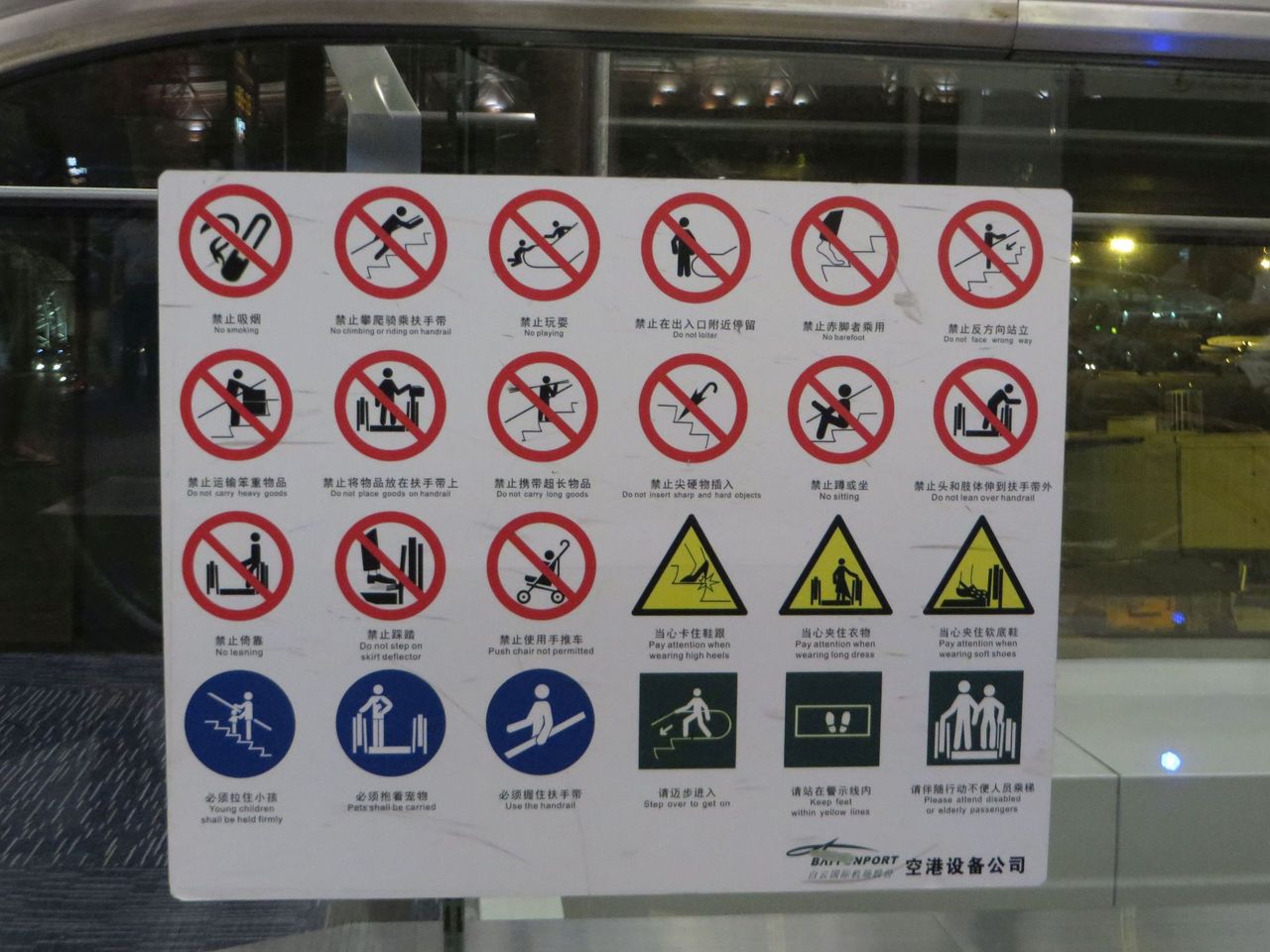
There were various restaurants and a convenience store where Mrs. Marathon who did not want a “real dinner” found what she was looking for.
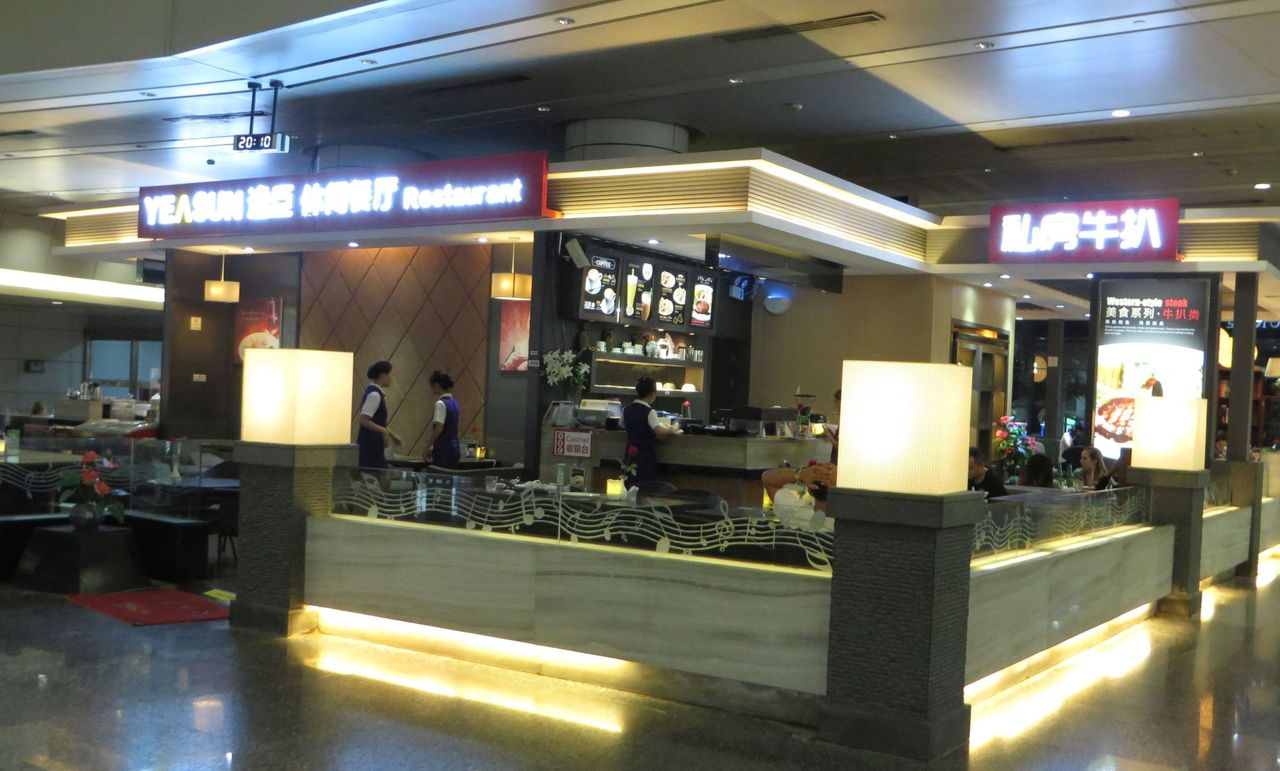
Eight minutes waiting time at the security check
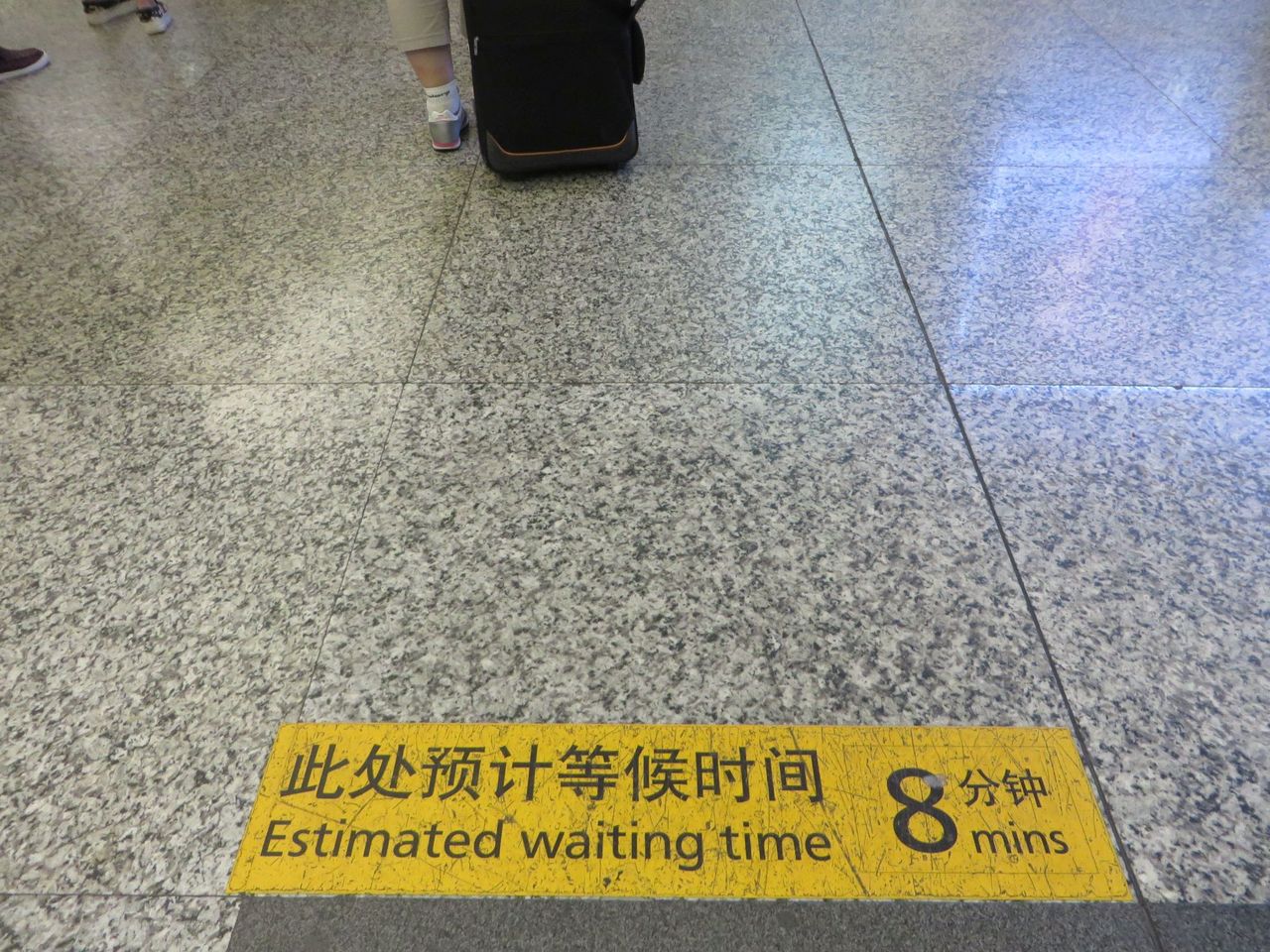
… behind this girl wearing shoes with pink flowers
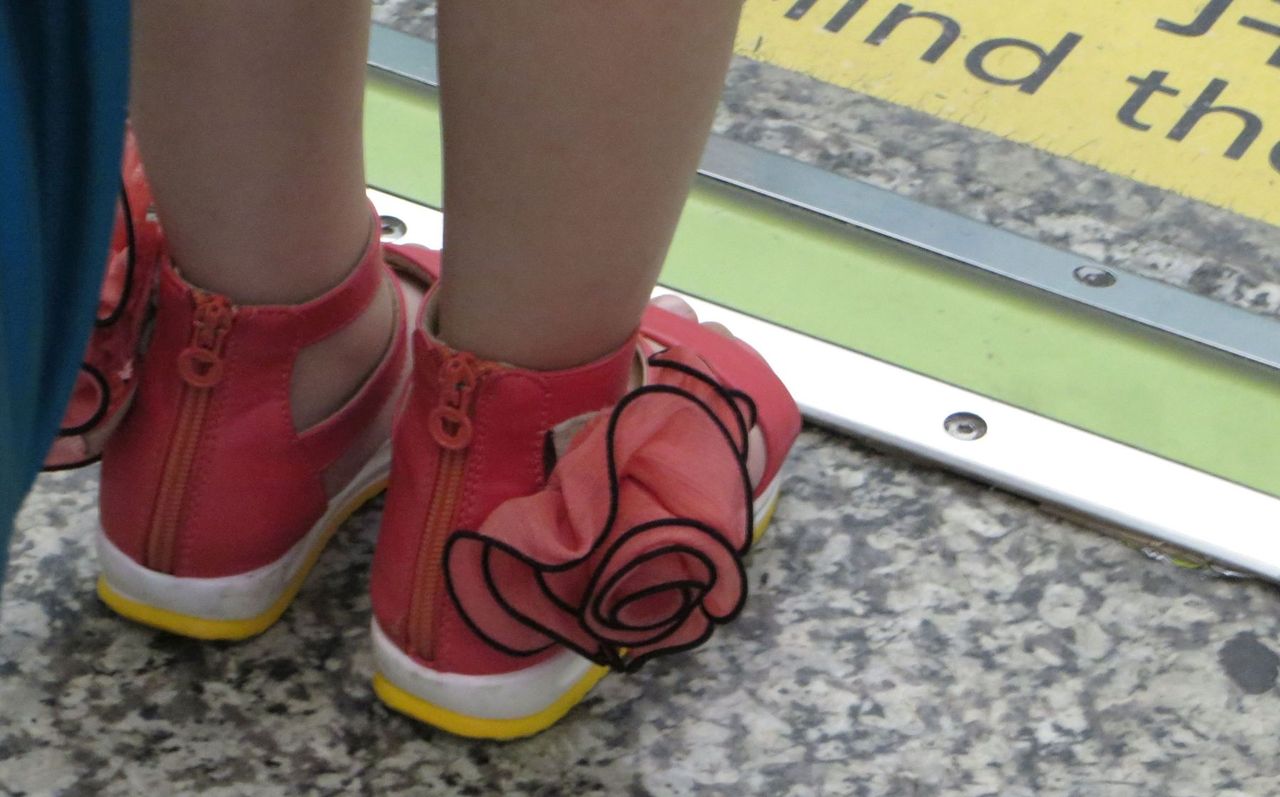
Boarding would be Gate B17 : that was bad news, because in CAN, the gates with only two digits are at the lower level. Like in all other airports, these rooms for bus transfer offer a minimal comfort.
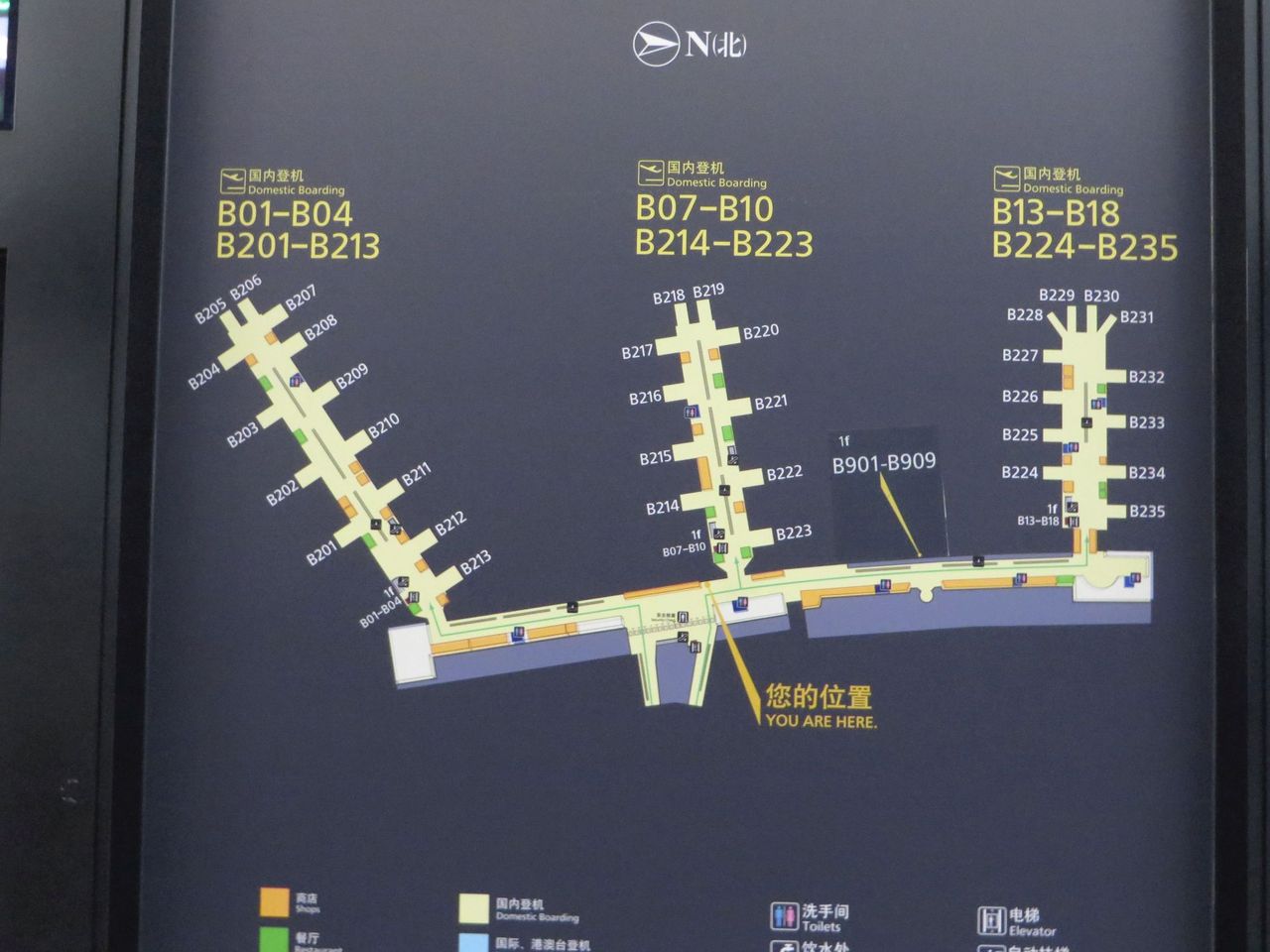
I suspect that Disney did not receive any royalty fees for the decoration of this baby care room. A couple hidden by the right door post was feeding their two babies with milk bottles.
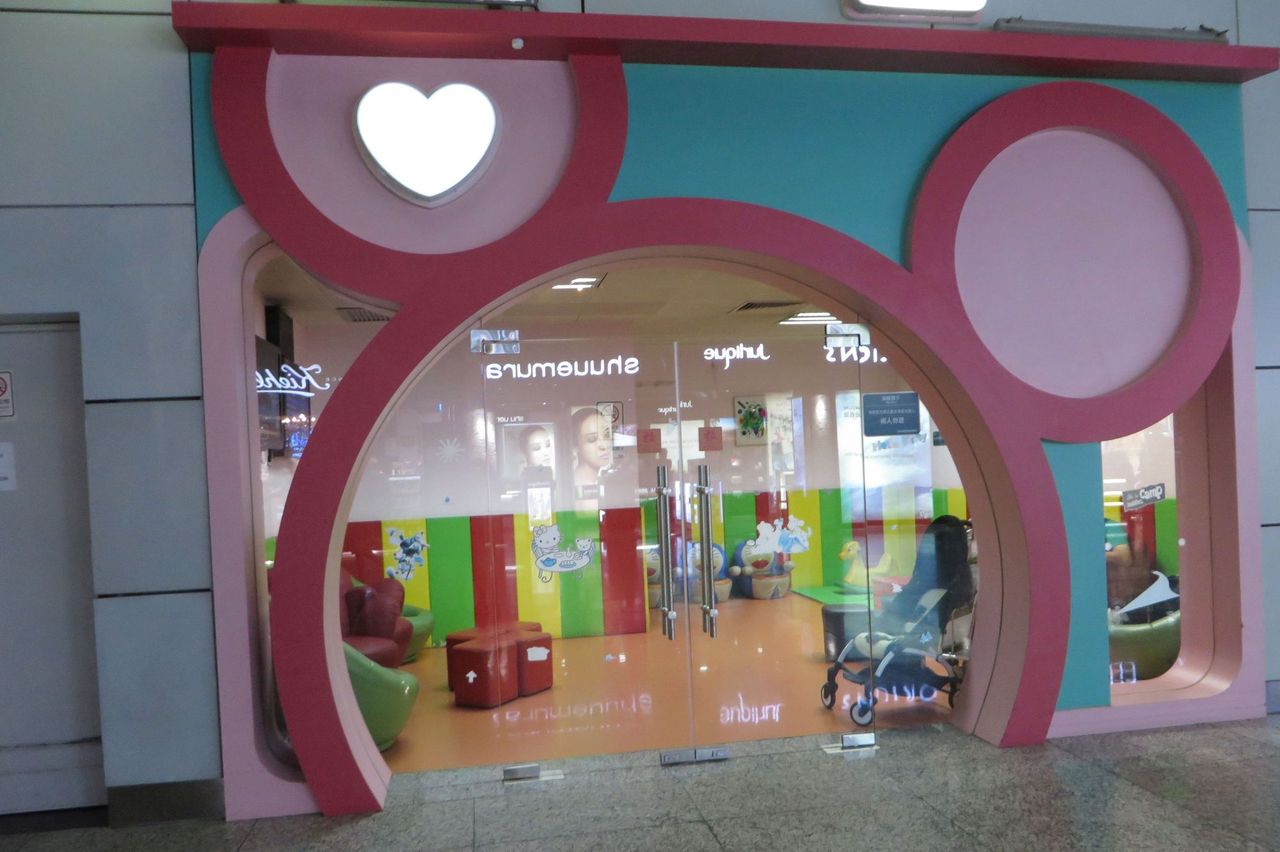
General view of the jetty
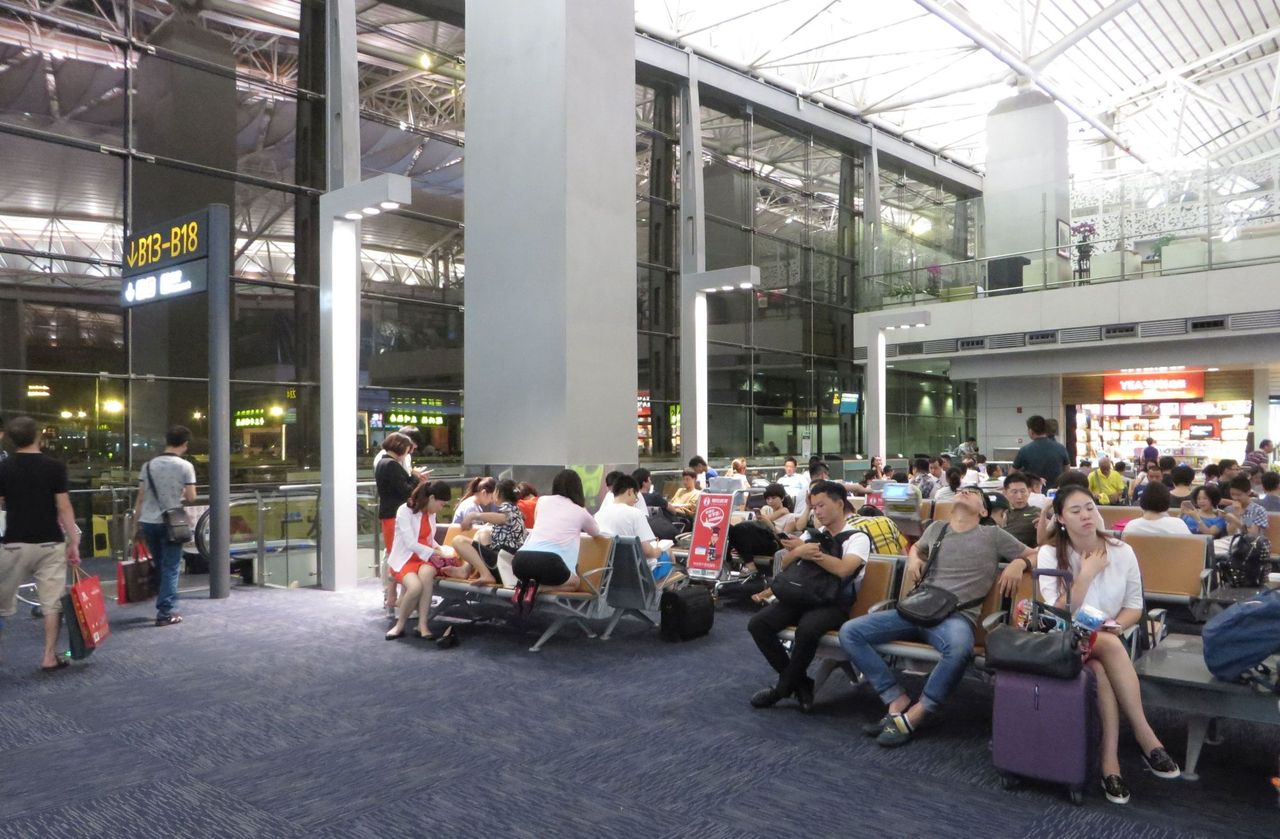
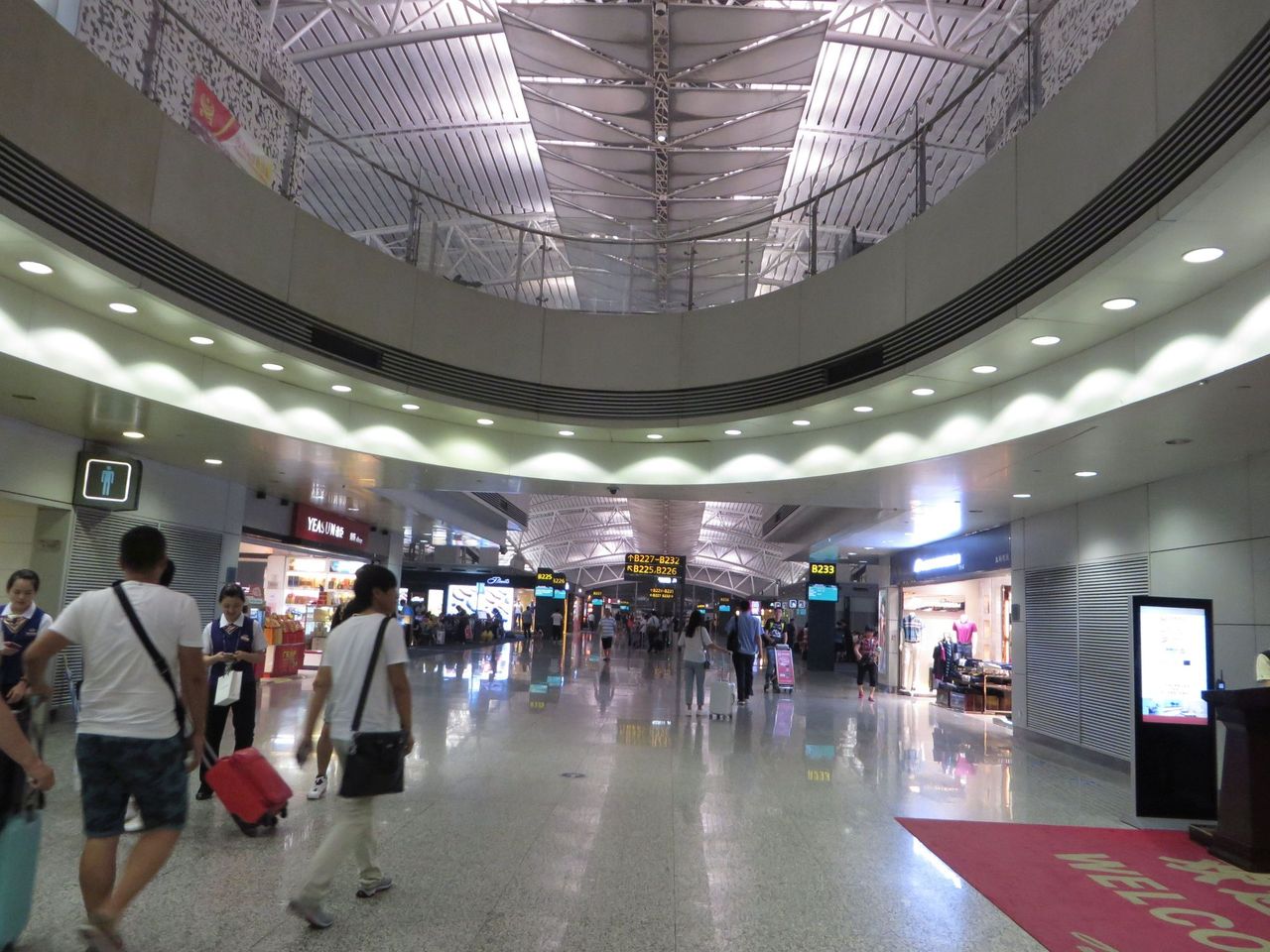
CAN’s tarmac was dimly lit and there was not much variety to see. I eliminated poor pictures of an HU 738 (I took better ones later), which left only these CZ and MU birds.
CZ A320
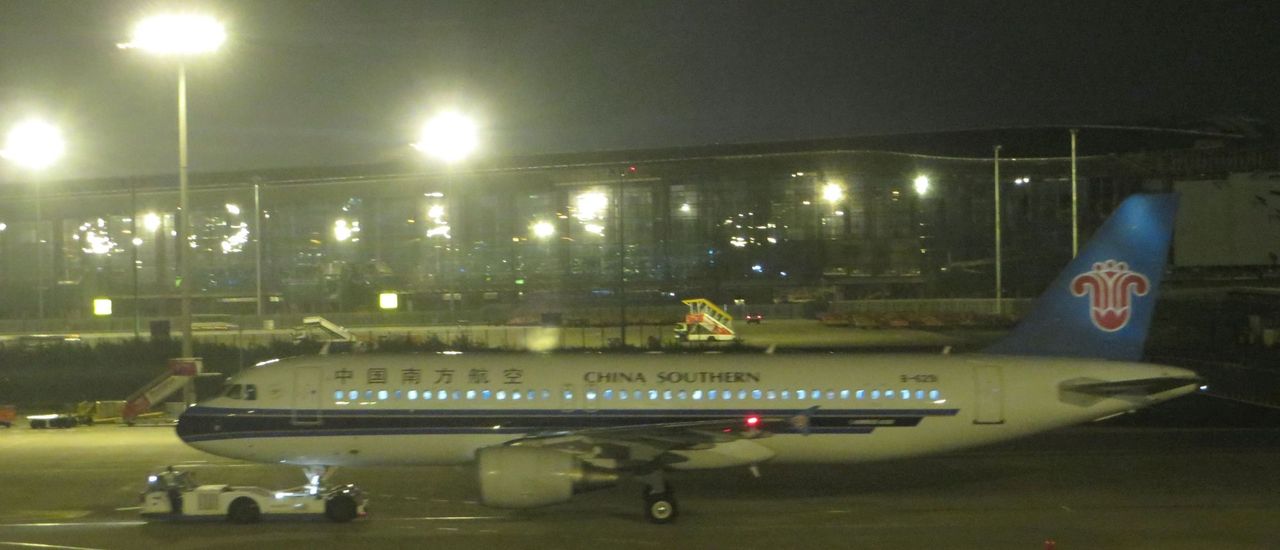
CZ A330
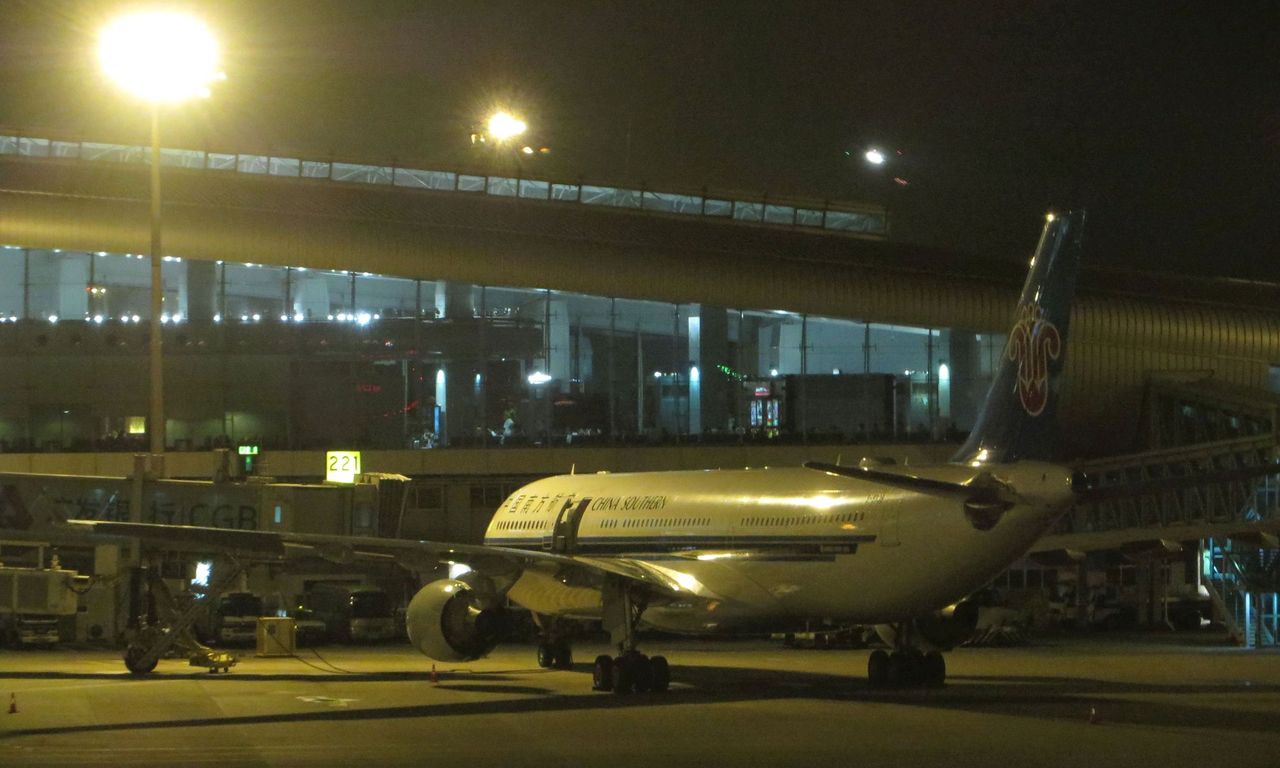
Brand new MU 738, :B-7591 entered revenue operation on 6 April 2016
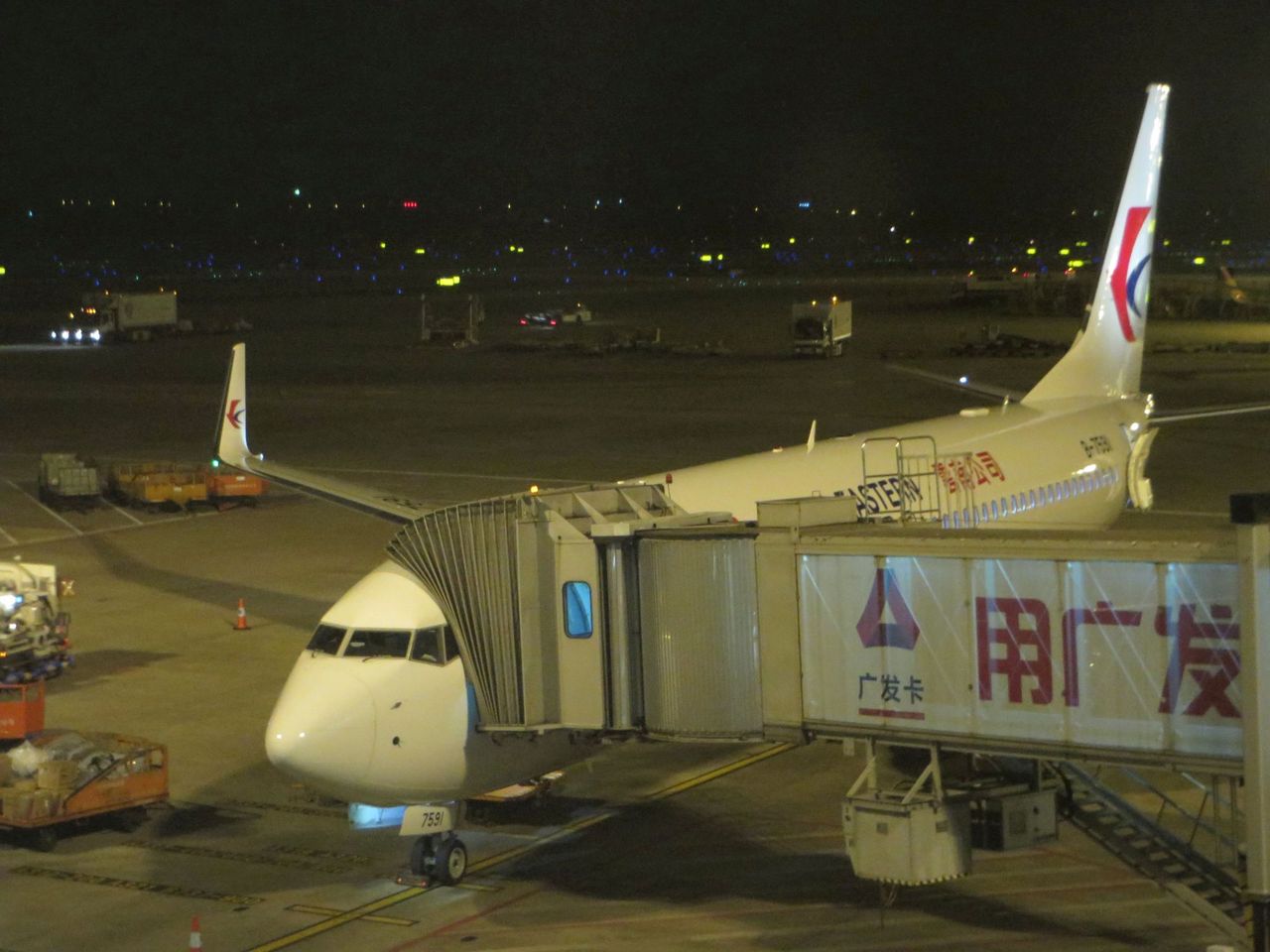
It was crowded at most boarding gates, due to the delays that night.
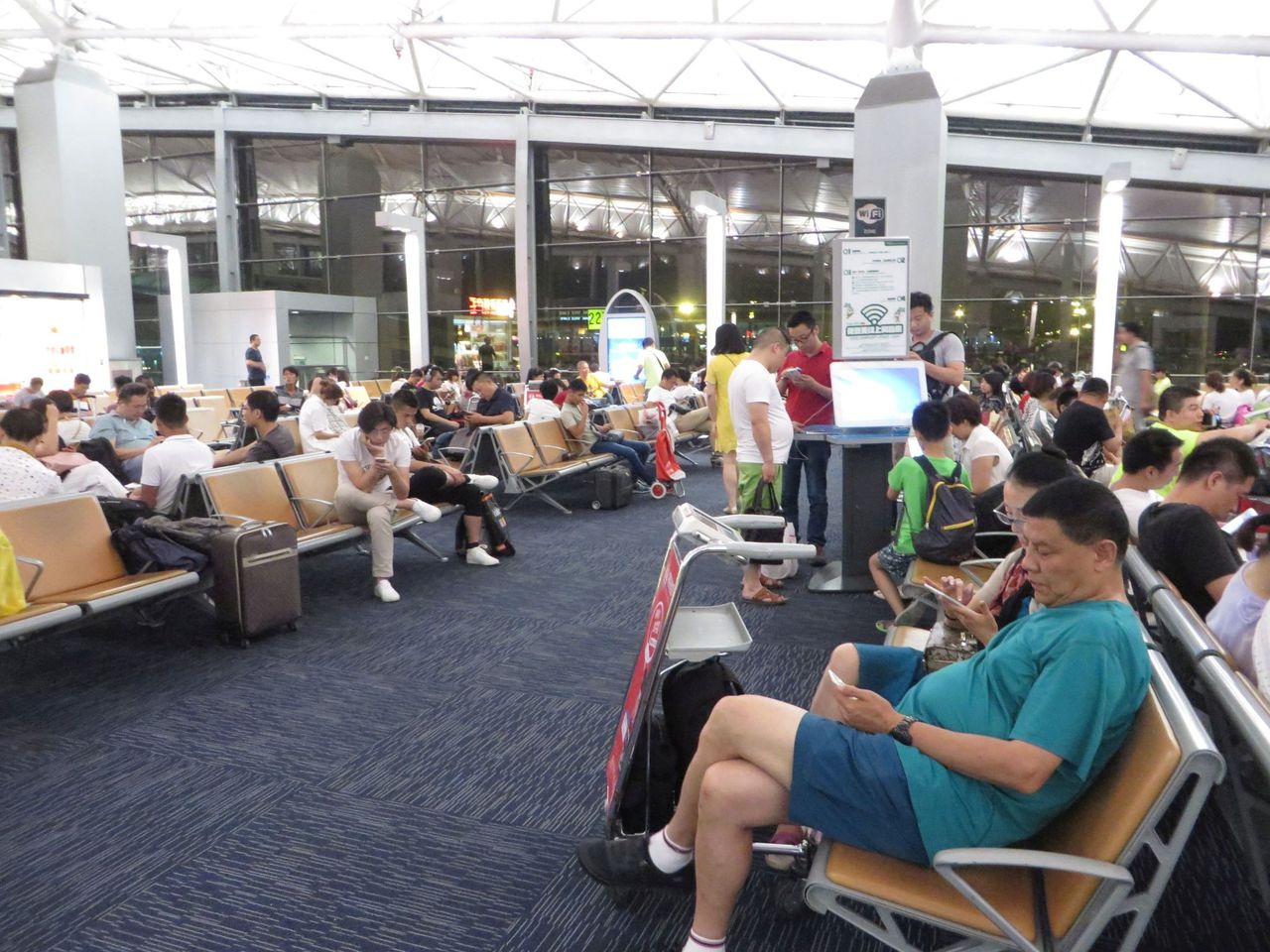
The hand luggage trolleys all had a small screen that most passengers were using, and also the USB power ports for their smartphones. They seemed to be watching local TV series.
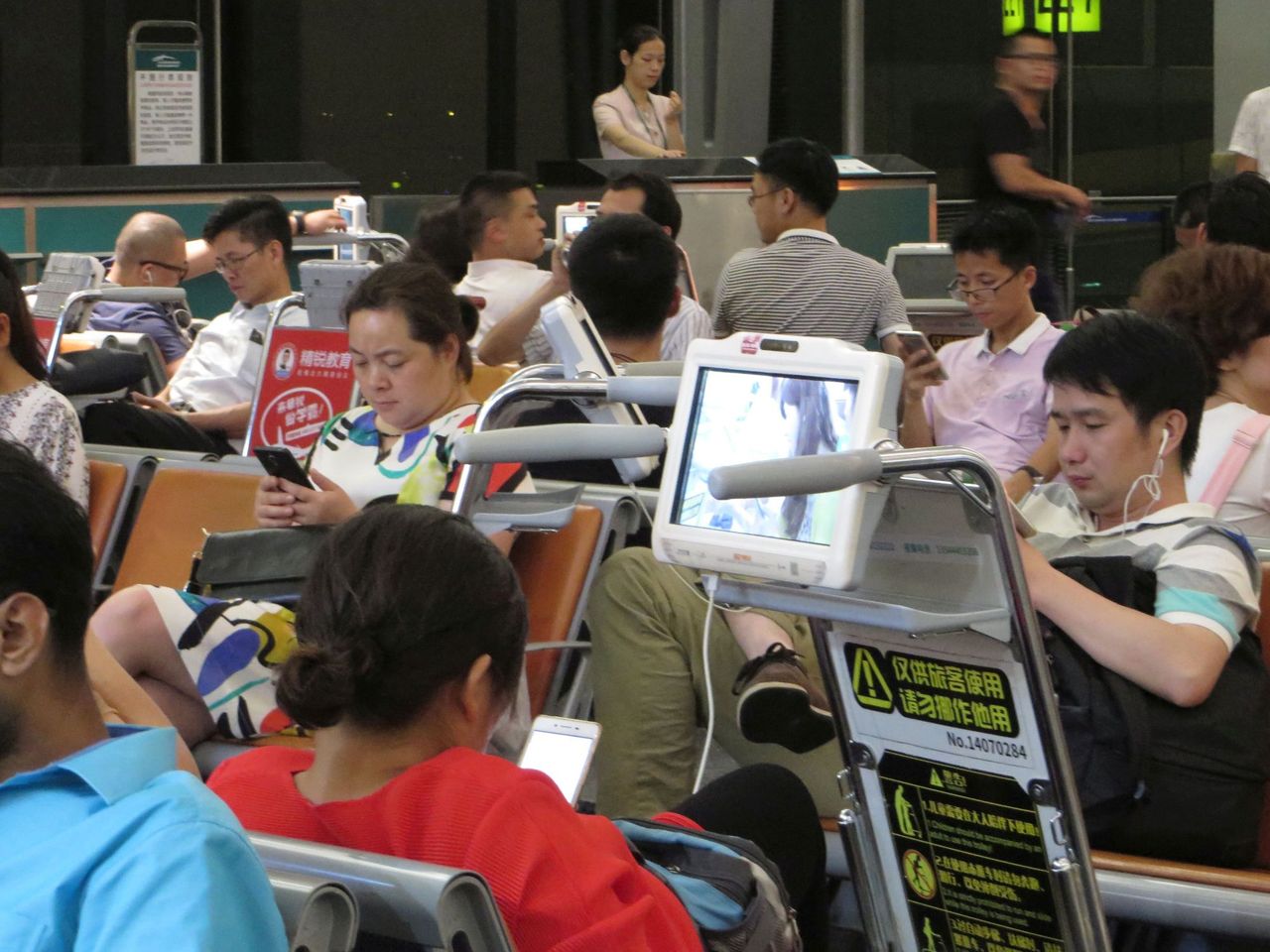
There were obviously fountains dispensing boiling water (98°C, for instant noodles) and lukewarm water (33°C, for drinking as is, because the Chinese seldom drink really cold water).
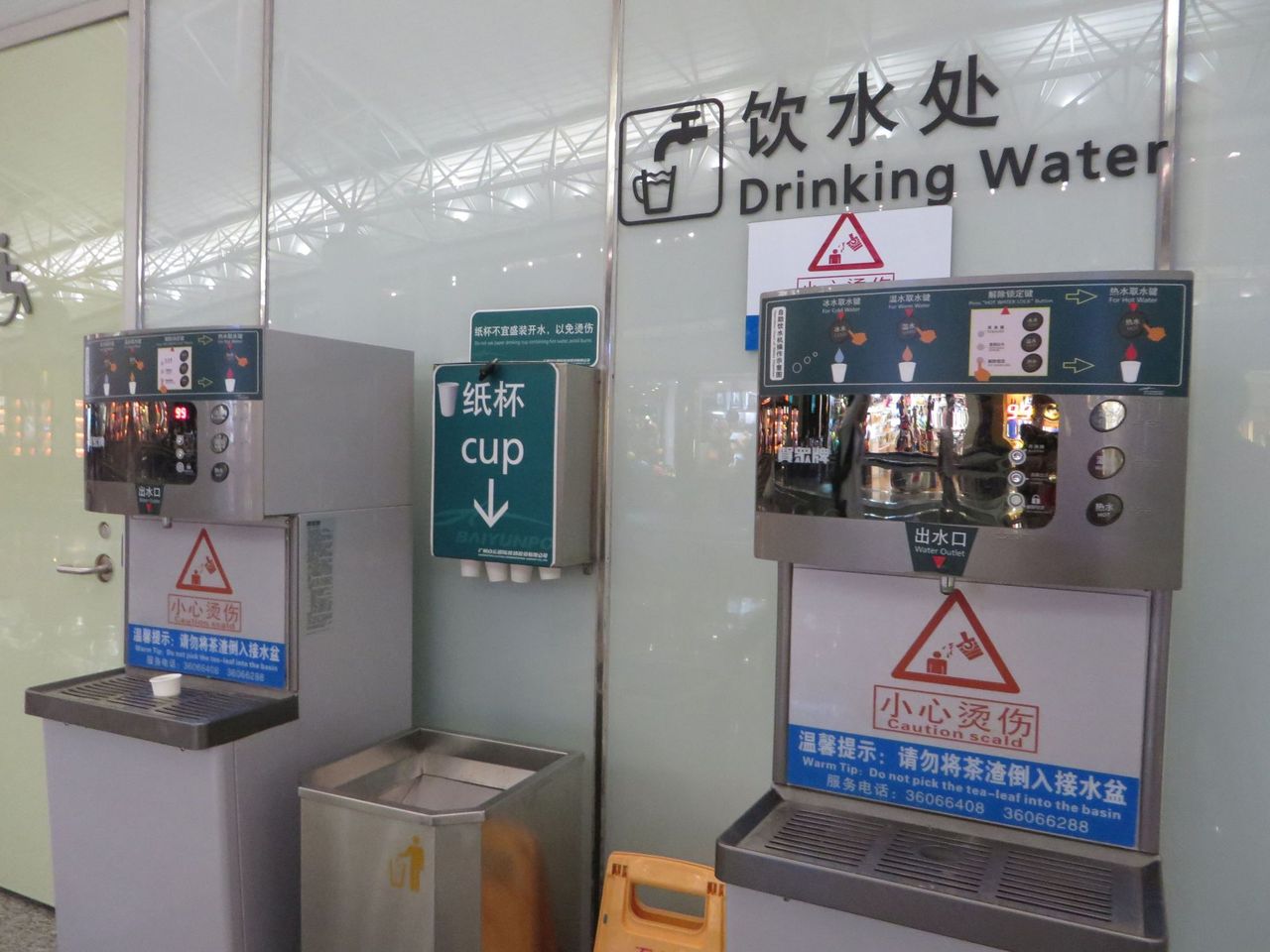
Obtaining an internet access requires as usual identifying oneself with a Chinese cell phone number, or (and that was new to me) one’s WeChat account (the Chinese online chatting platform which gathers around 700 million active users).
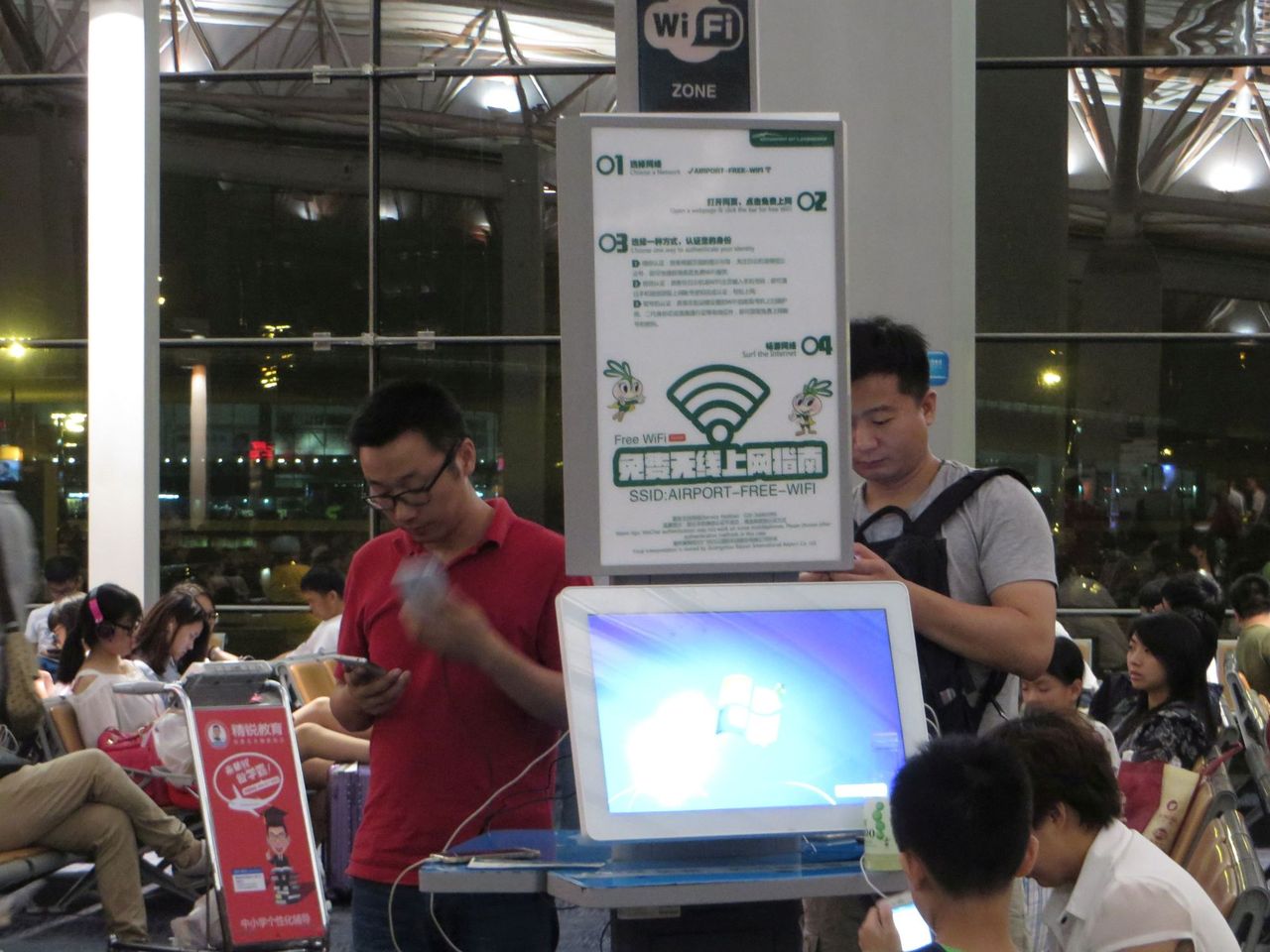
The flights’ punctuality was very Chinese that evening : this flight to Hangzhou was delayed to 21:50
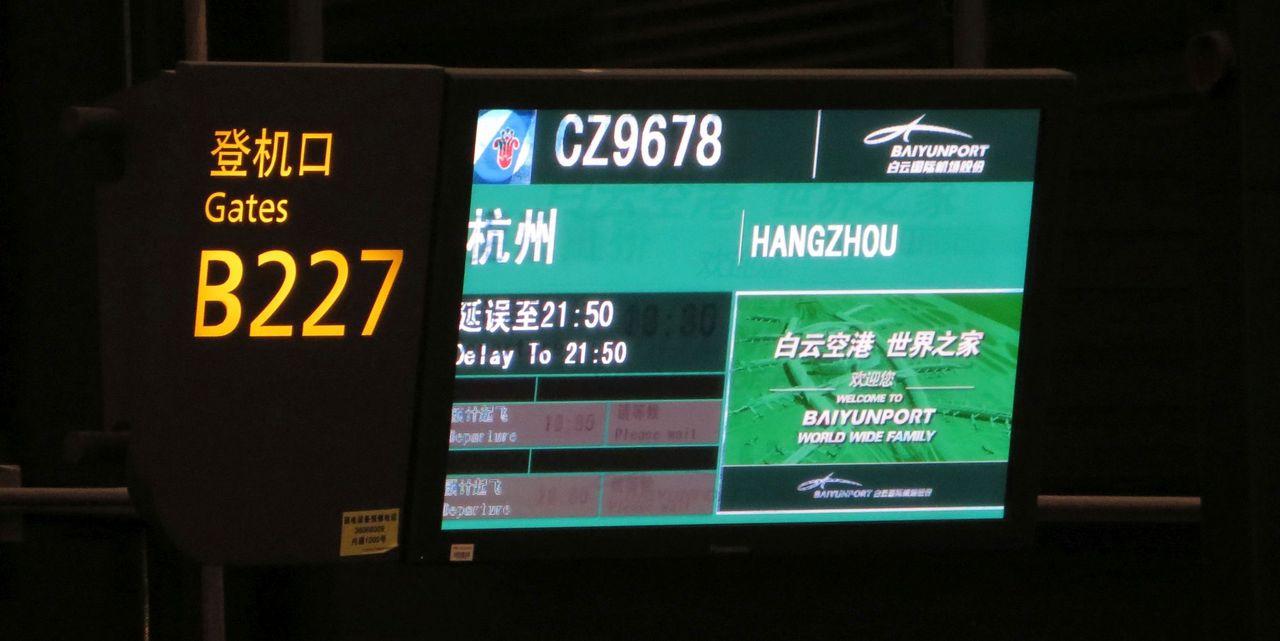
And this one to Wuhan should have departed at 20:05, but boarding had not begun at 20:51.
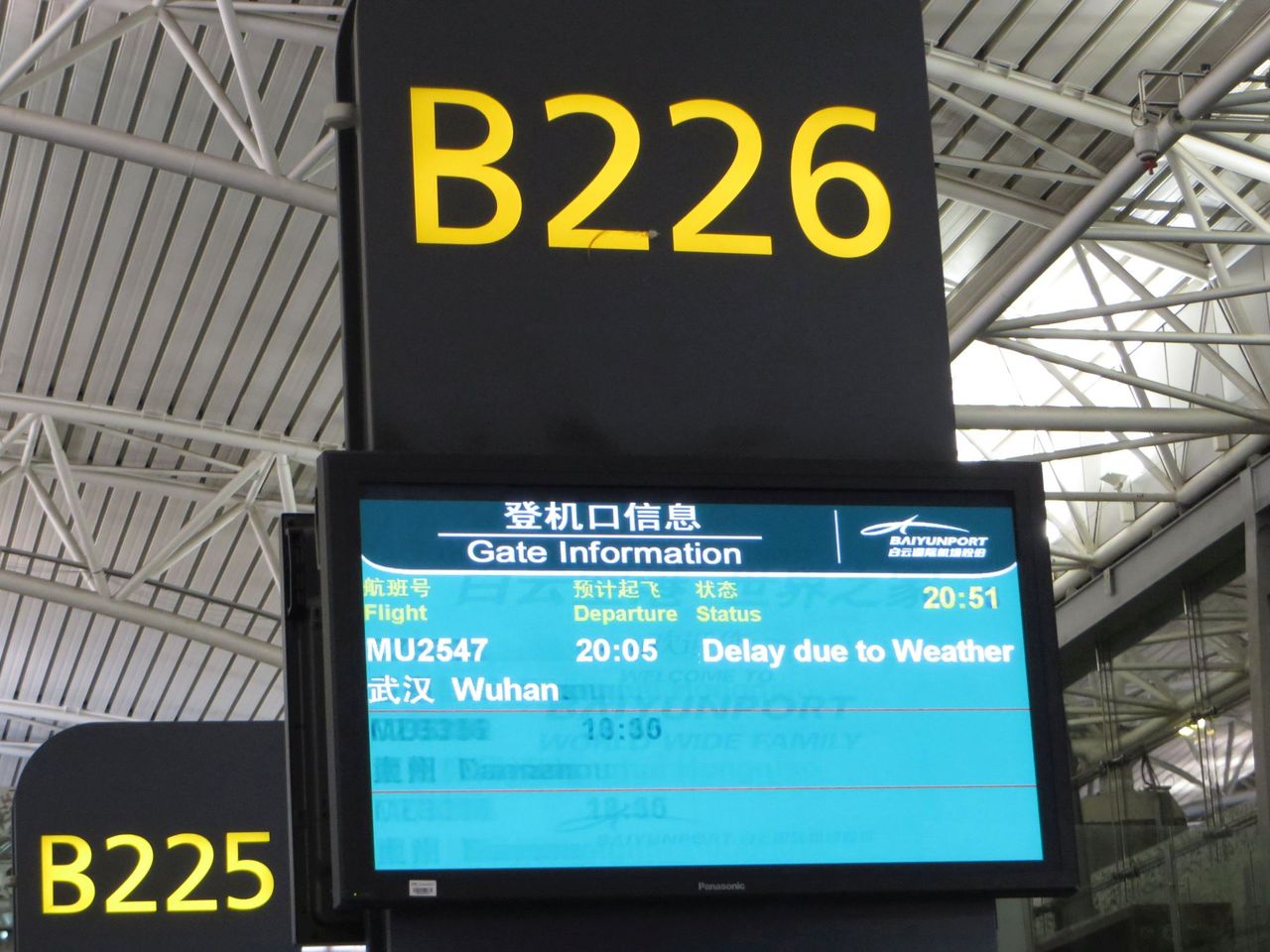
The bus boarding room was as packed as I expected. We nevertheless found what was possibly the only empty pair of seats next to each other.
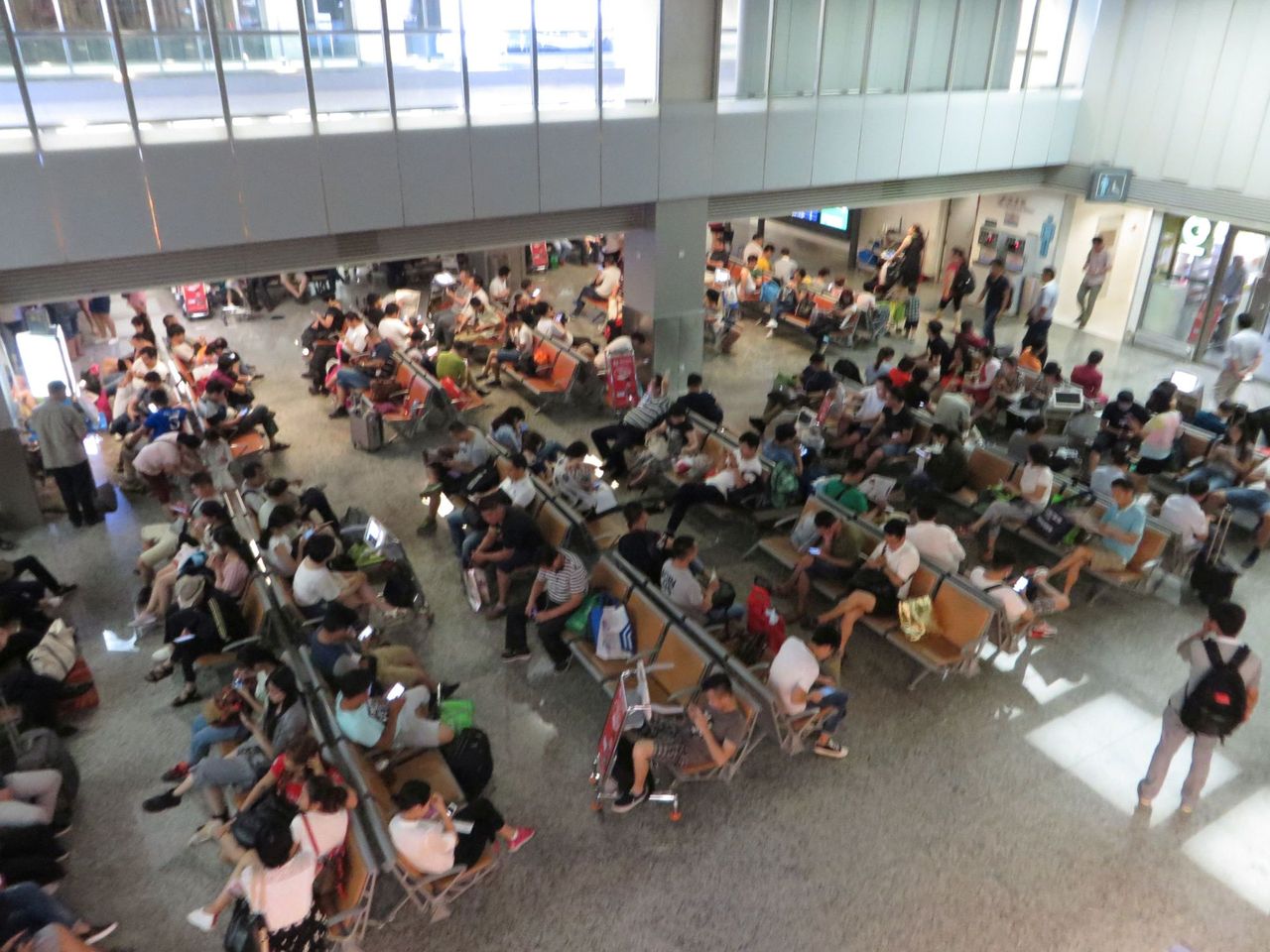
Rising when the queue took shape for boarding was a mistake : our flight was delayed like all others.
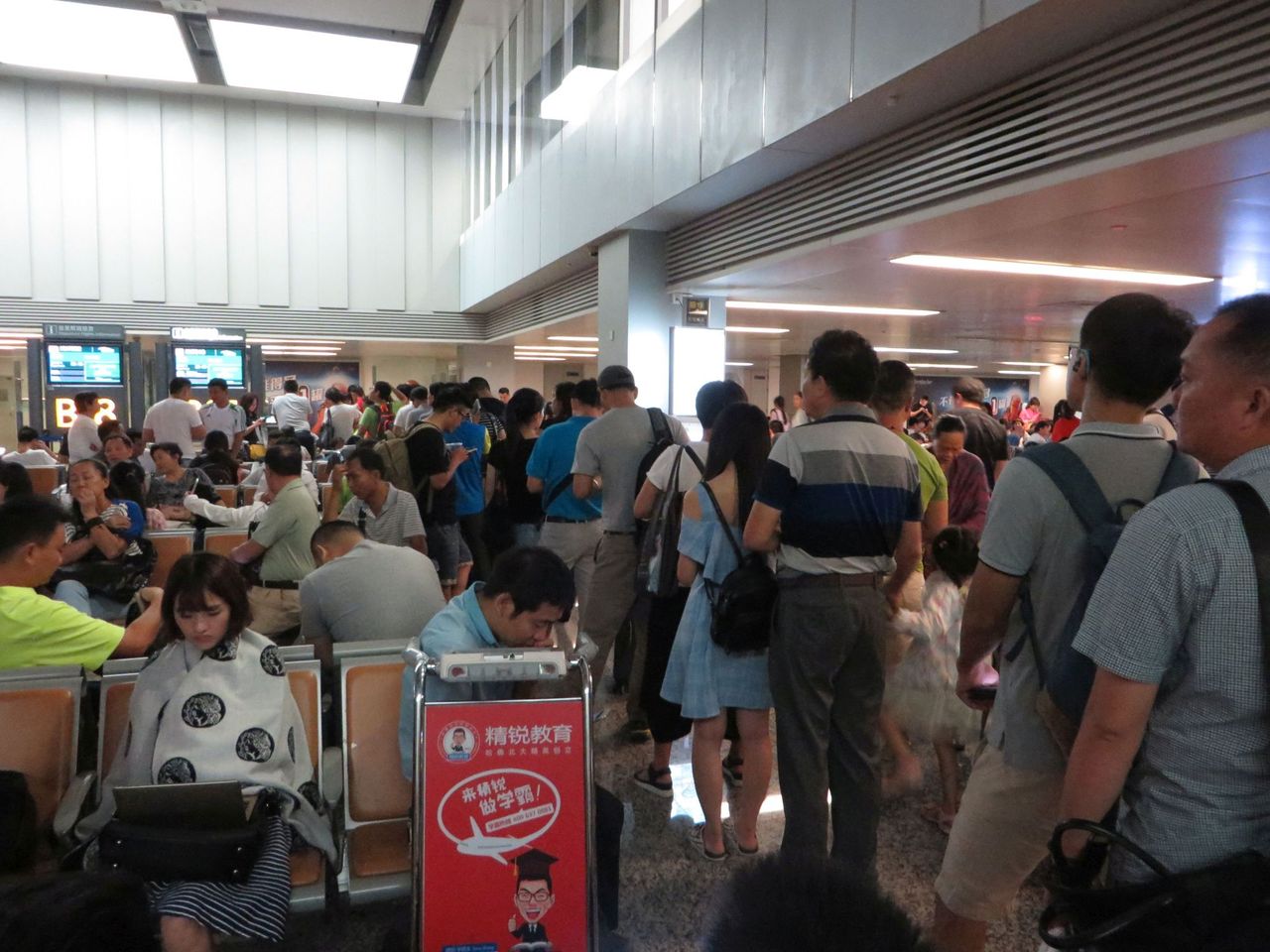
The next flight to HAK, that of 22:45, was delayed to 23:45.
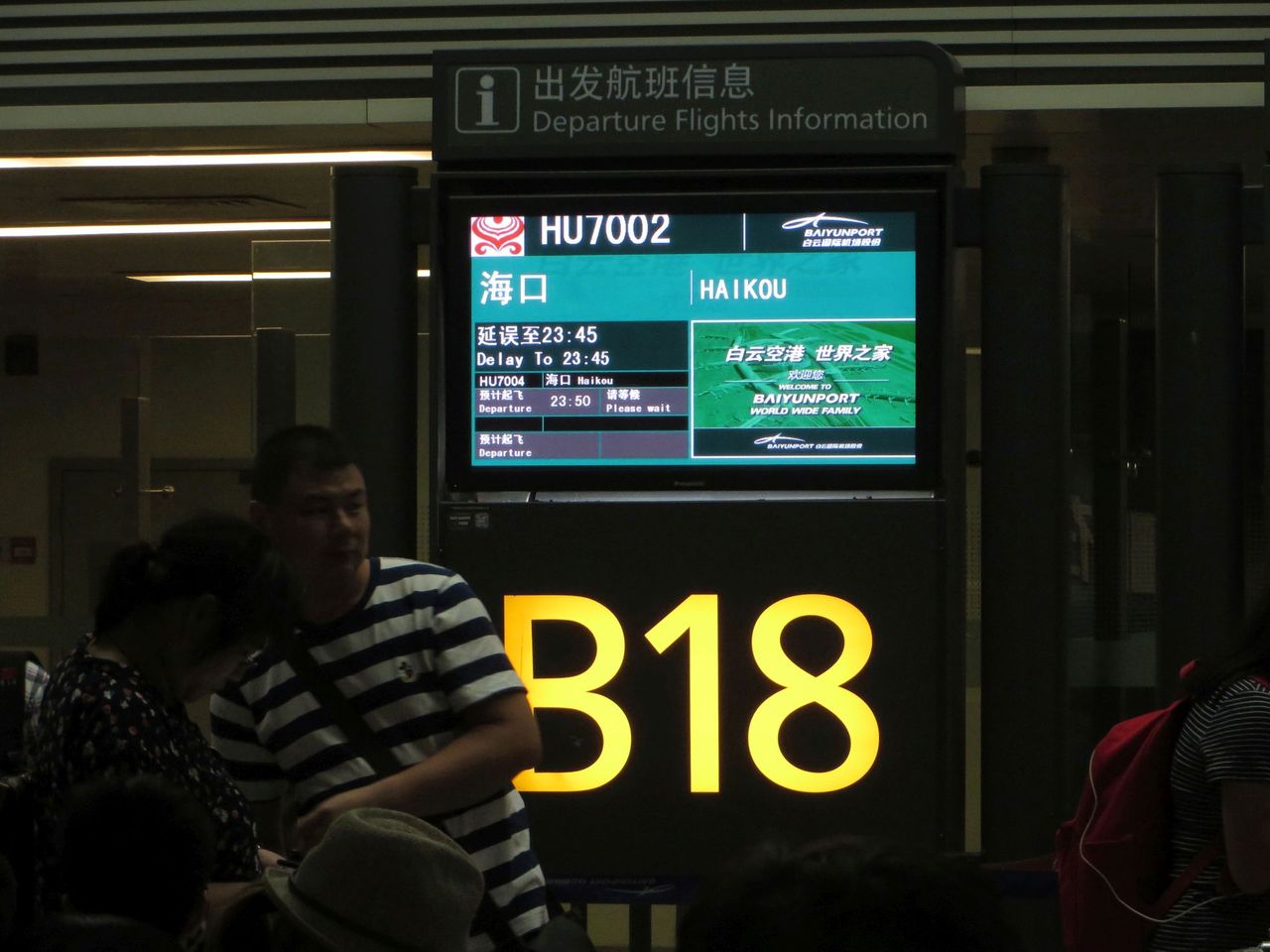
… and ours was listed shortly afterwards to 23 :20, i.e. ETA+80’
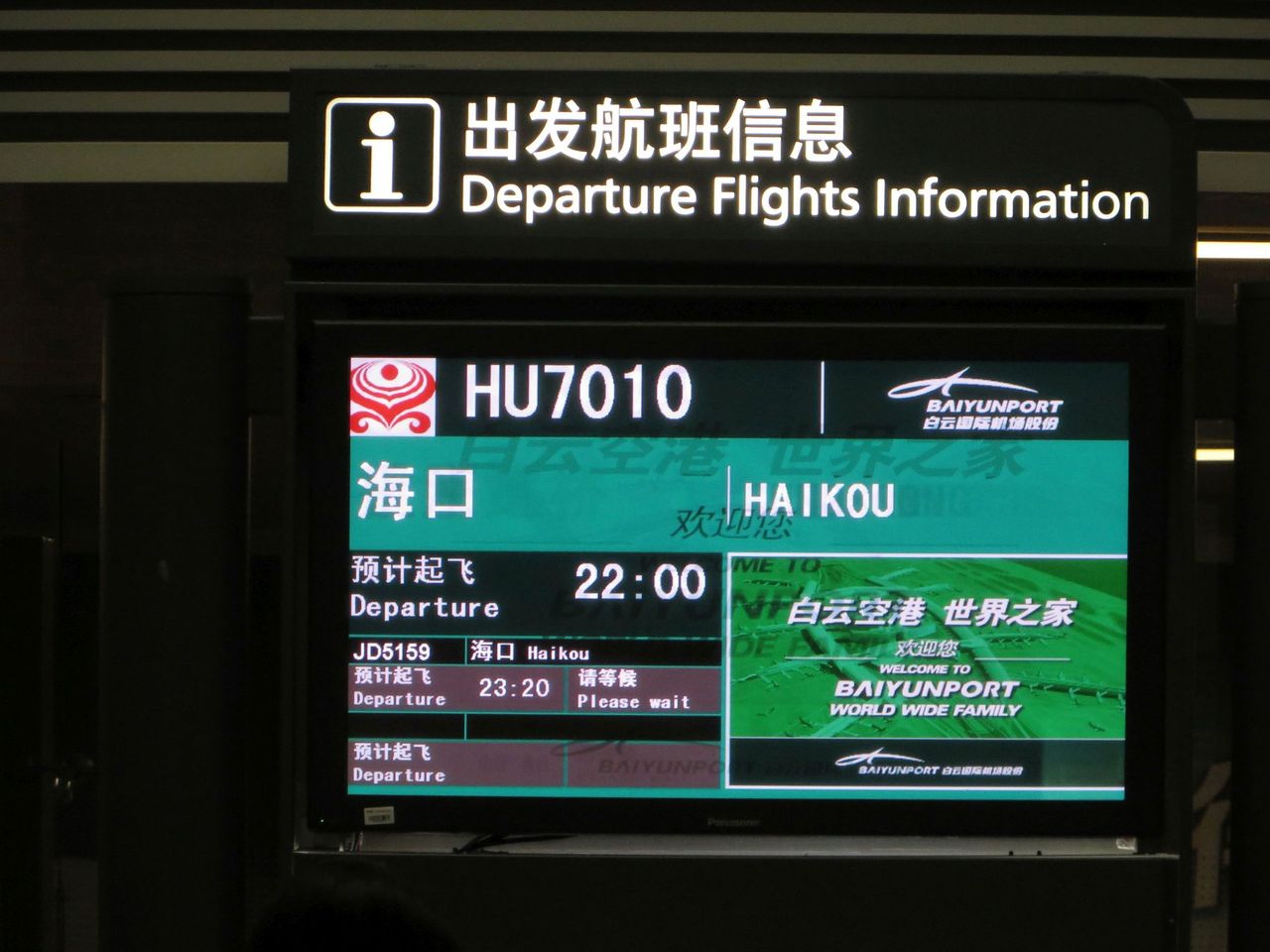
Boarding started at last at 22:07, or ETD+7’, but the FIDS kept announcing a departure at 23:20.
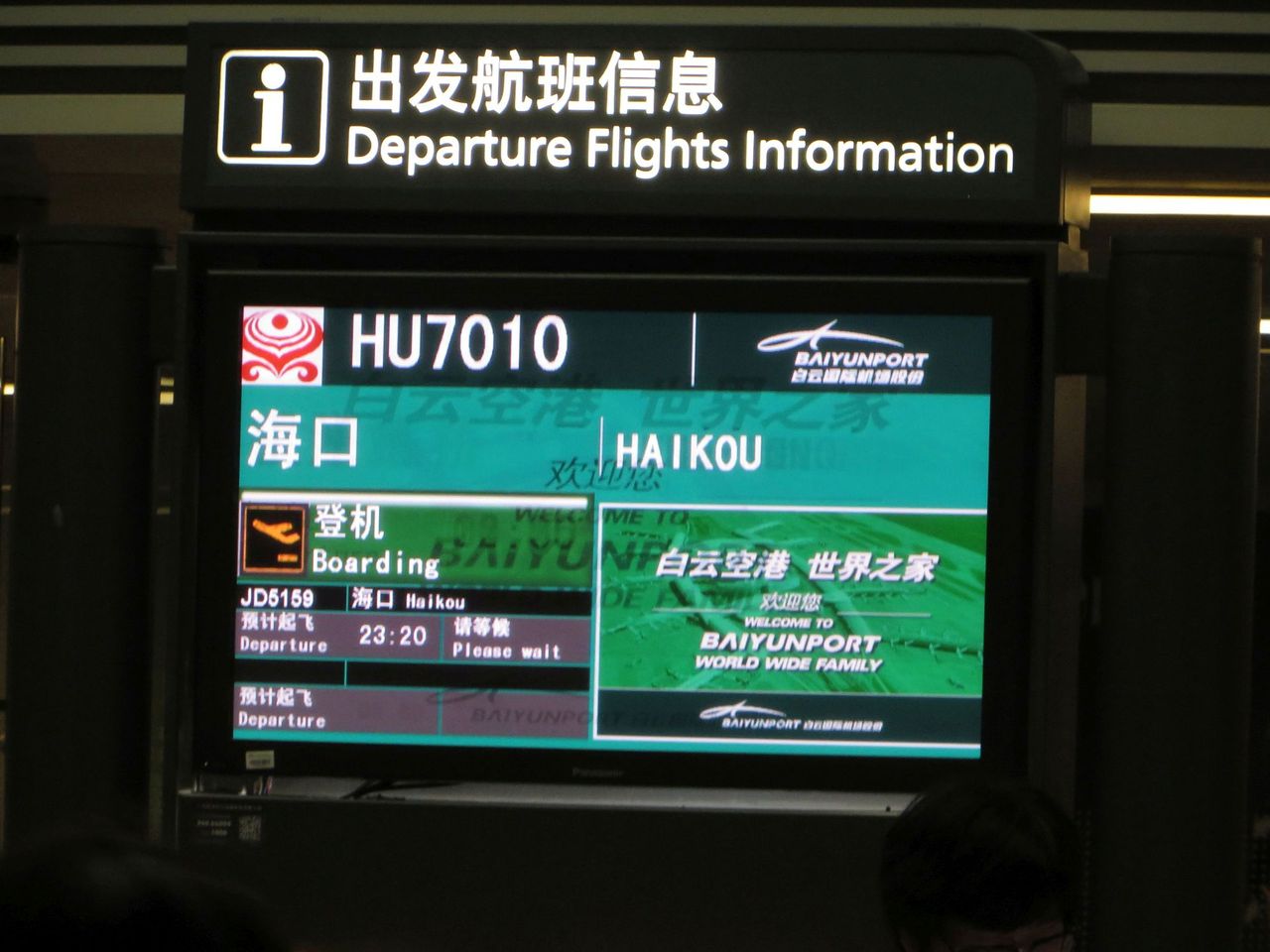
The BP had only one detachable stub, but there are always two BP checks in China : we were given at the counter a standard plastic card to be returned before taking the stairs on the tarmac.
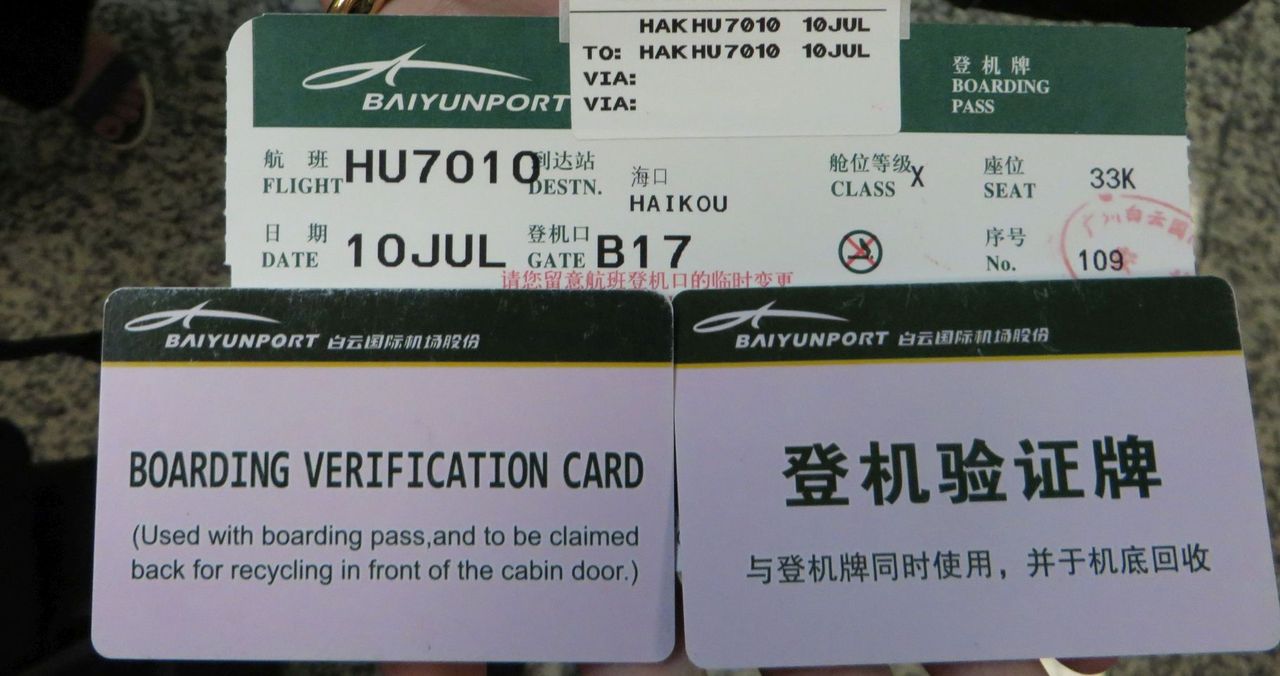
The bus made an incredibly long trip on the tarmac – I started wondering if we would reach Haikou by bus. ^^
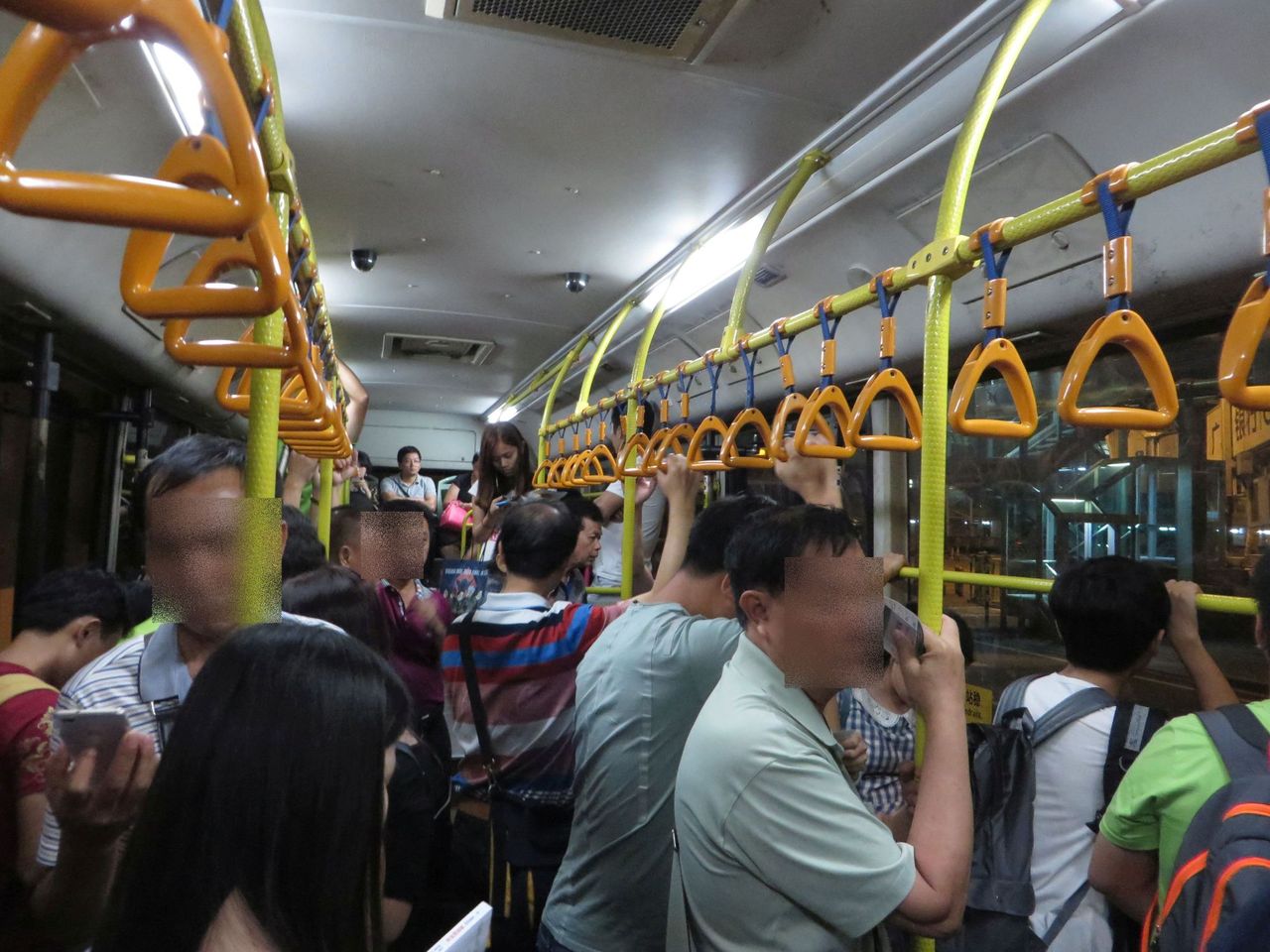
It eventually stopped next to this 738 parked in a remote location, possibly as far from the terminal as could be.
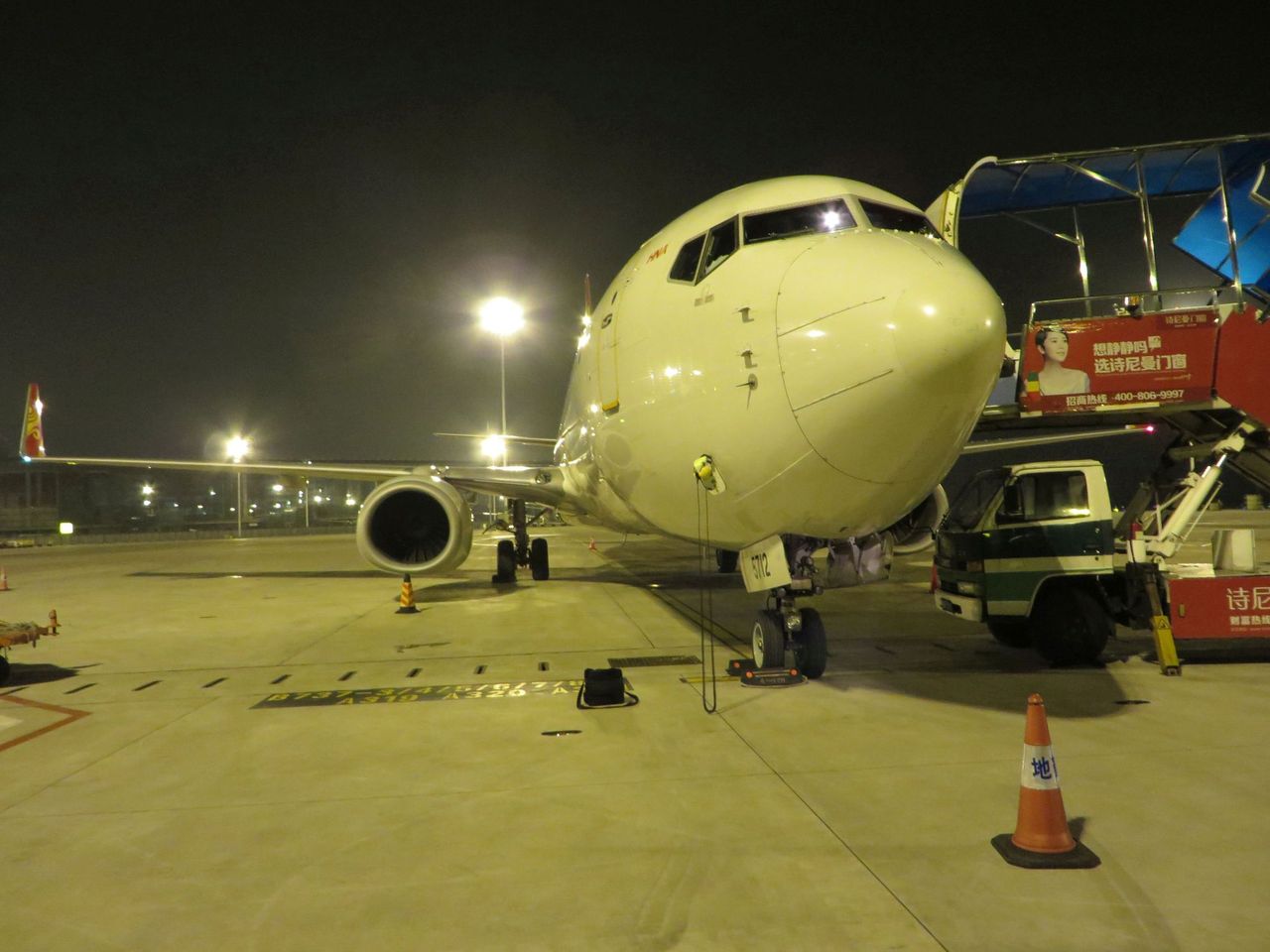
She was parked next to an identical aircraft
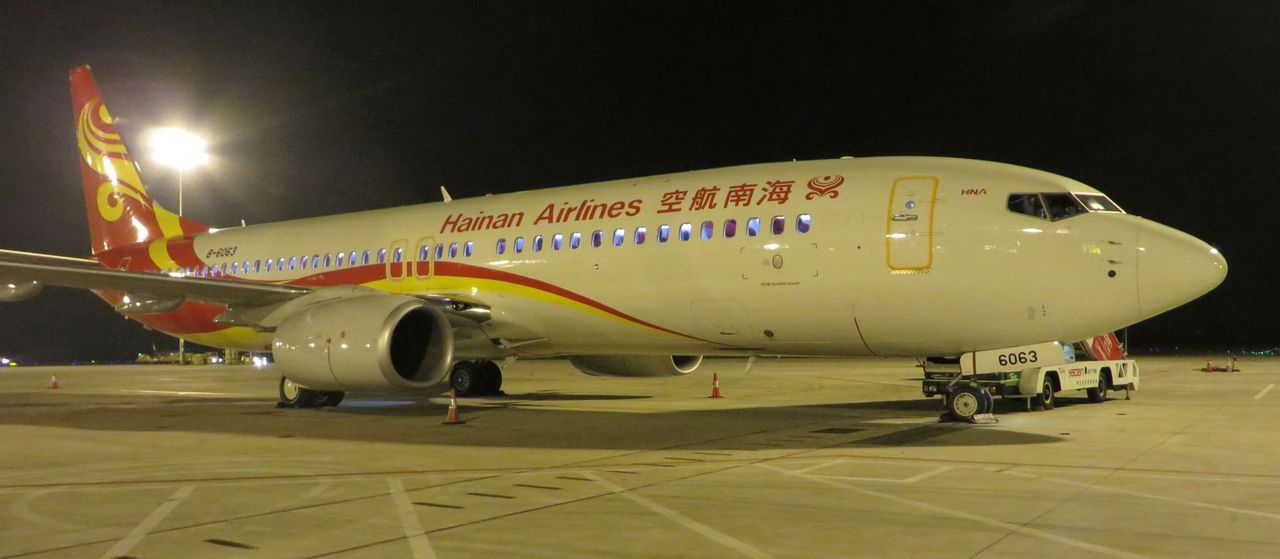
I did not rush to board, taking pictures instead: if you do not stray too far, there are no constraints on taking pictures on Chinese tarmacs.
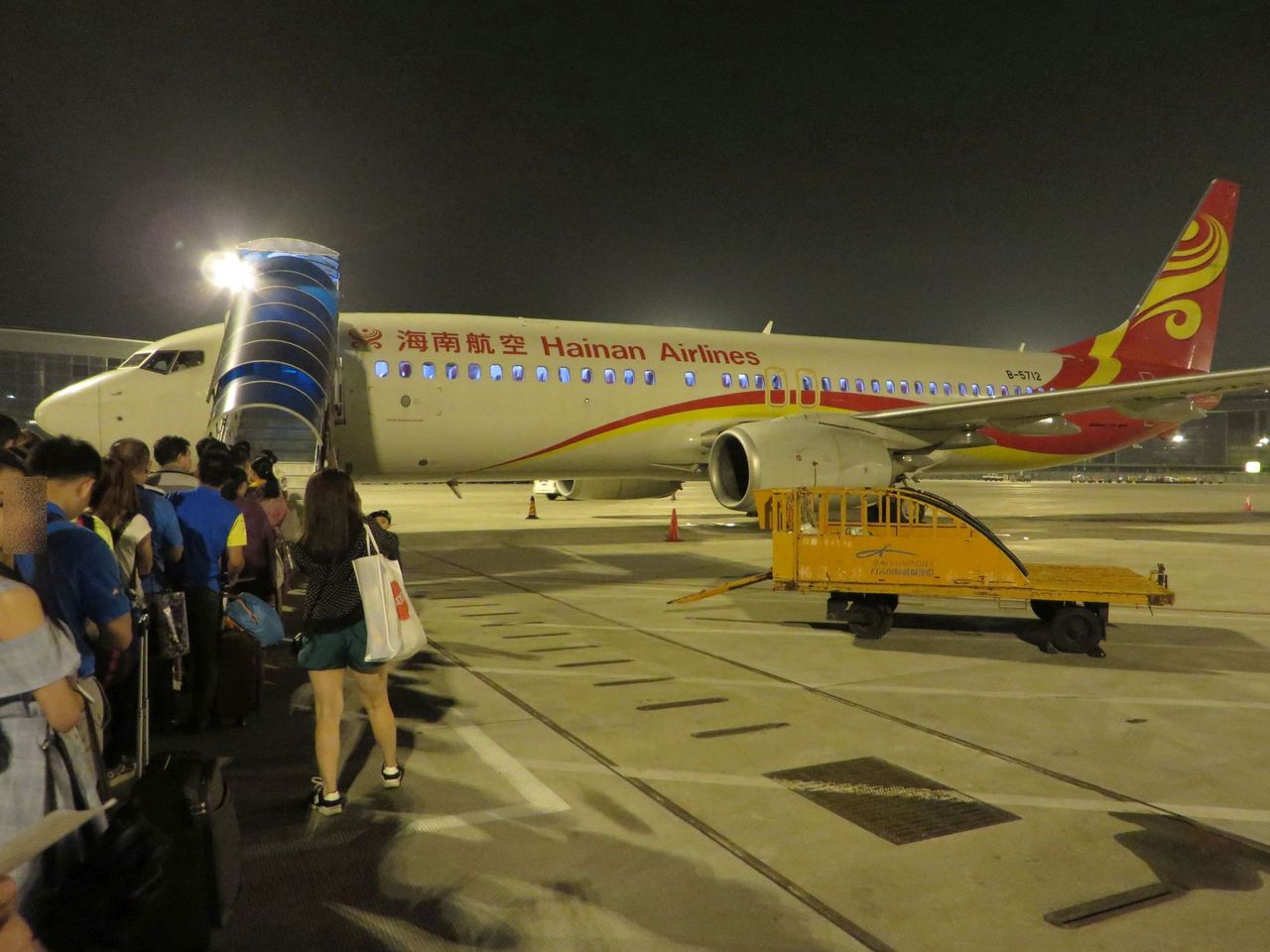
For registration number geeks
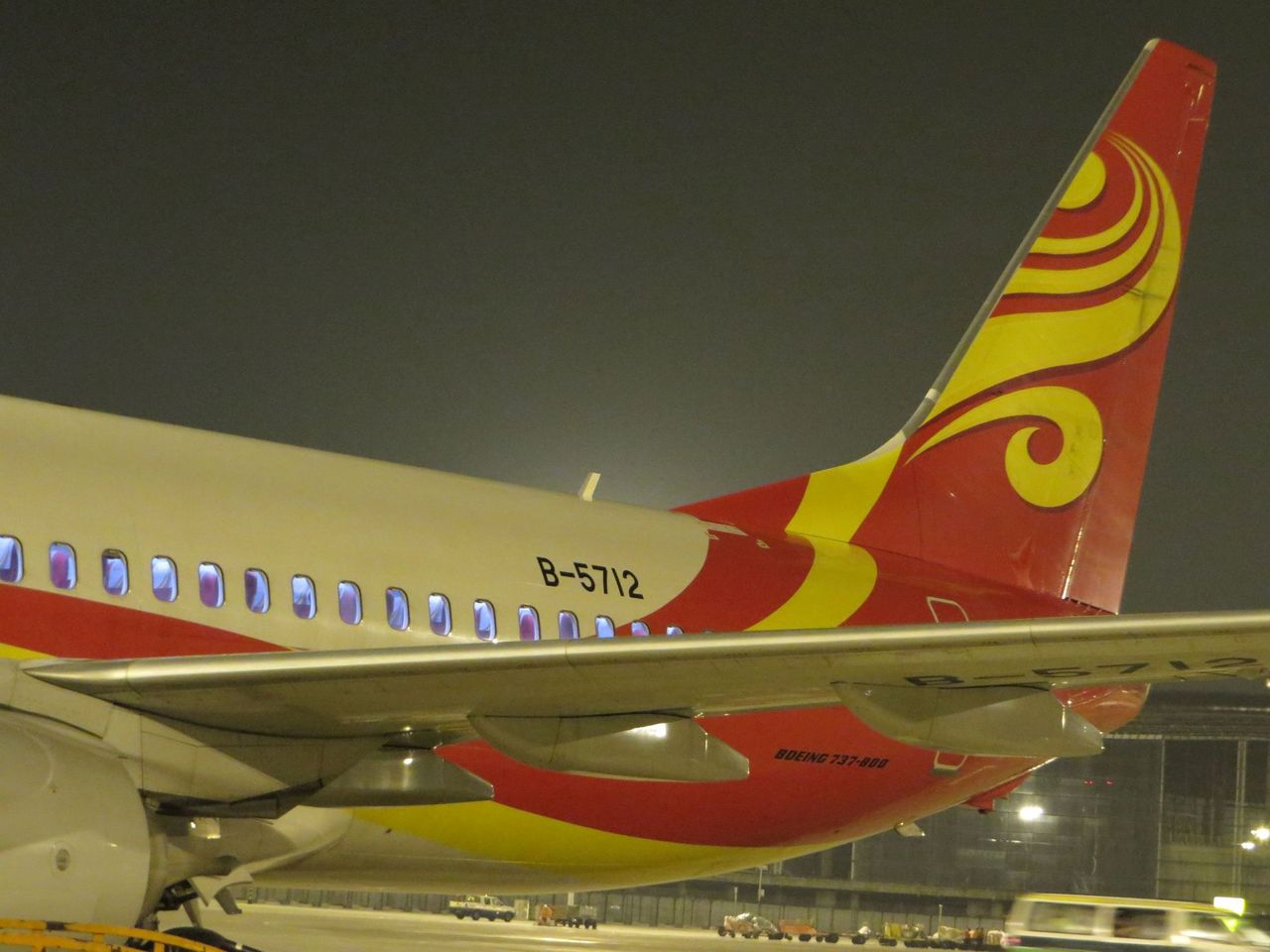
Note that I was not the sole passenger taken pictures of the aircraft.
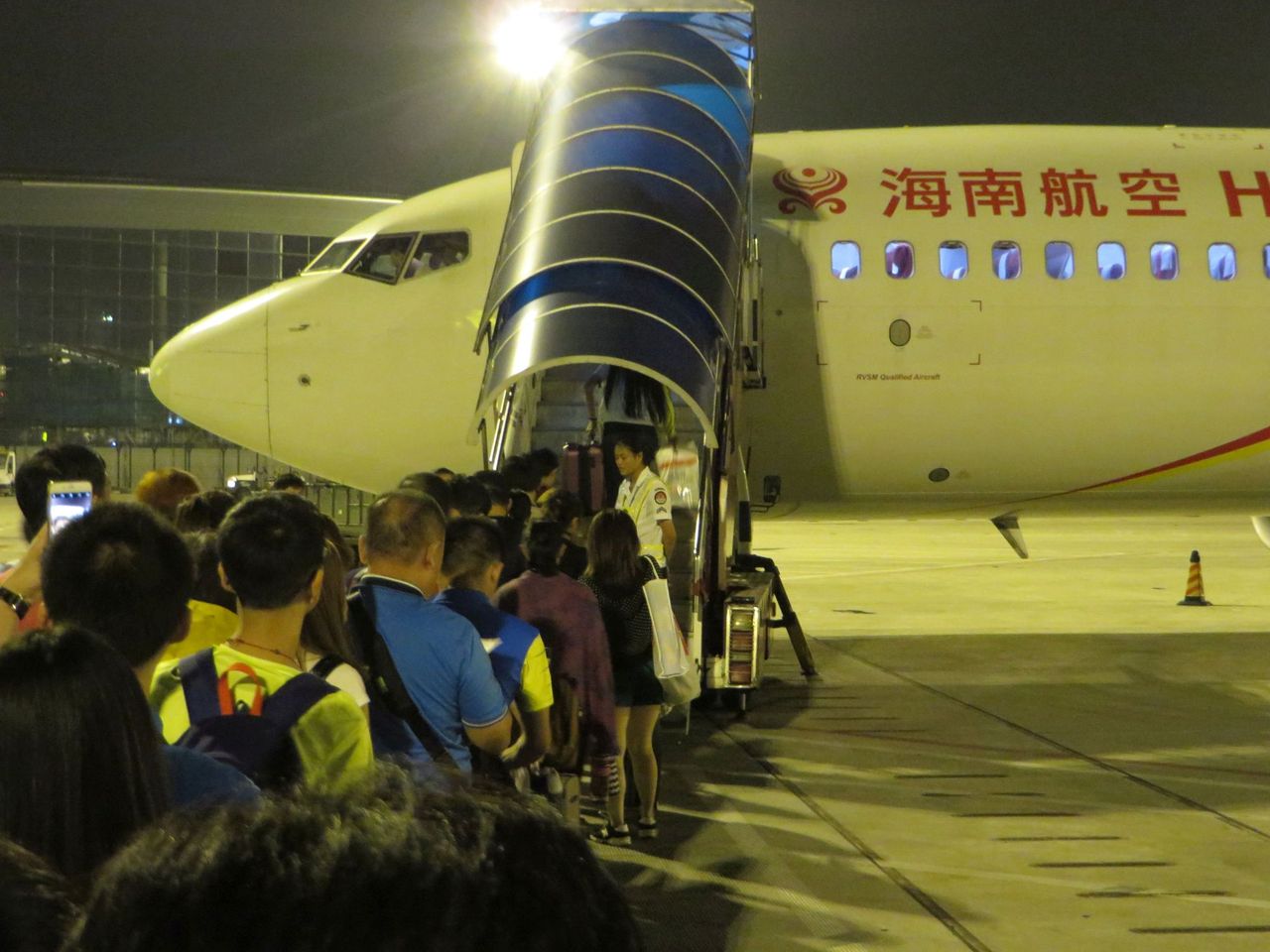
Fuselage shot
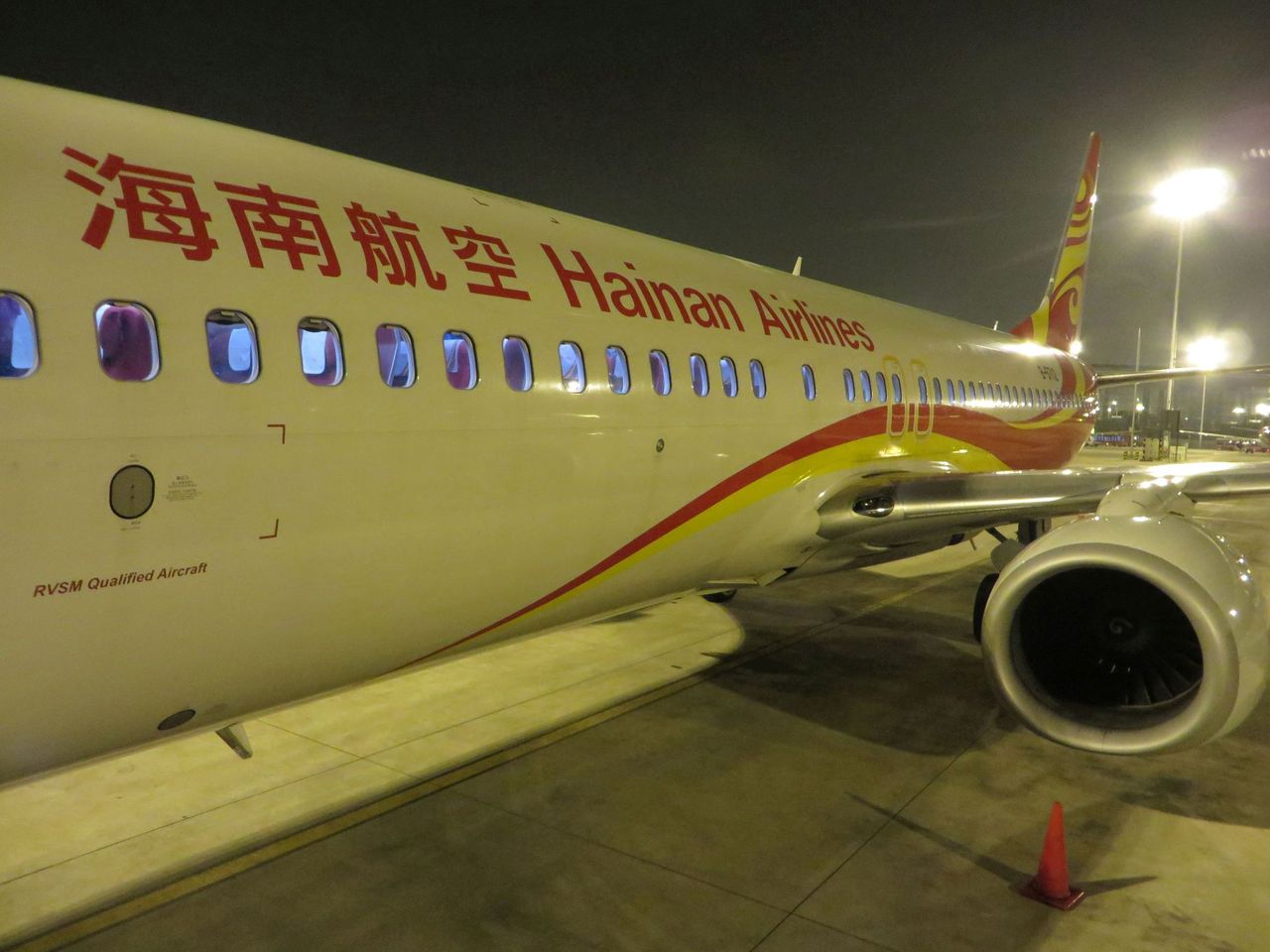
There were two Chinese newspapers made available on the J left seats of the first row, in Chinese and in English.
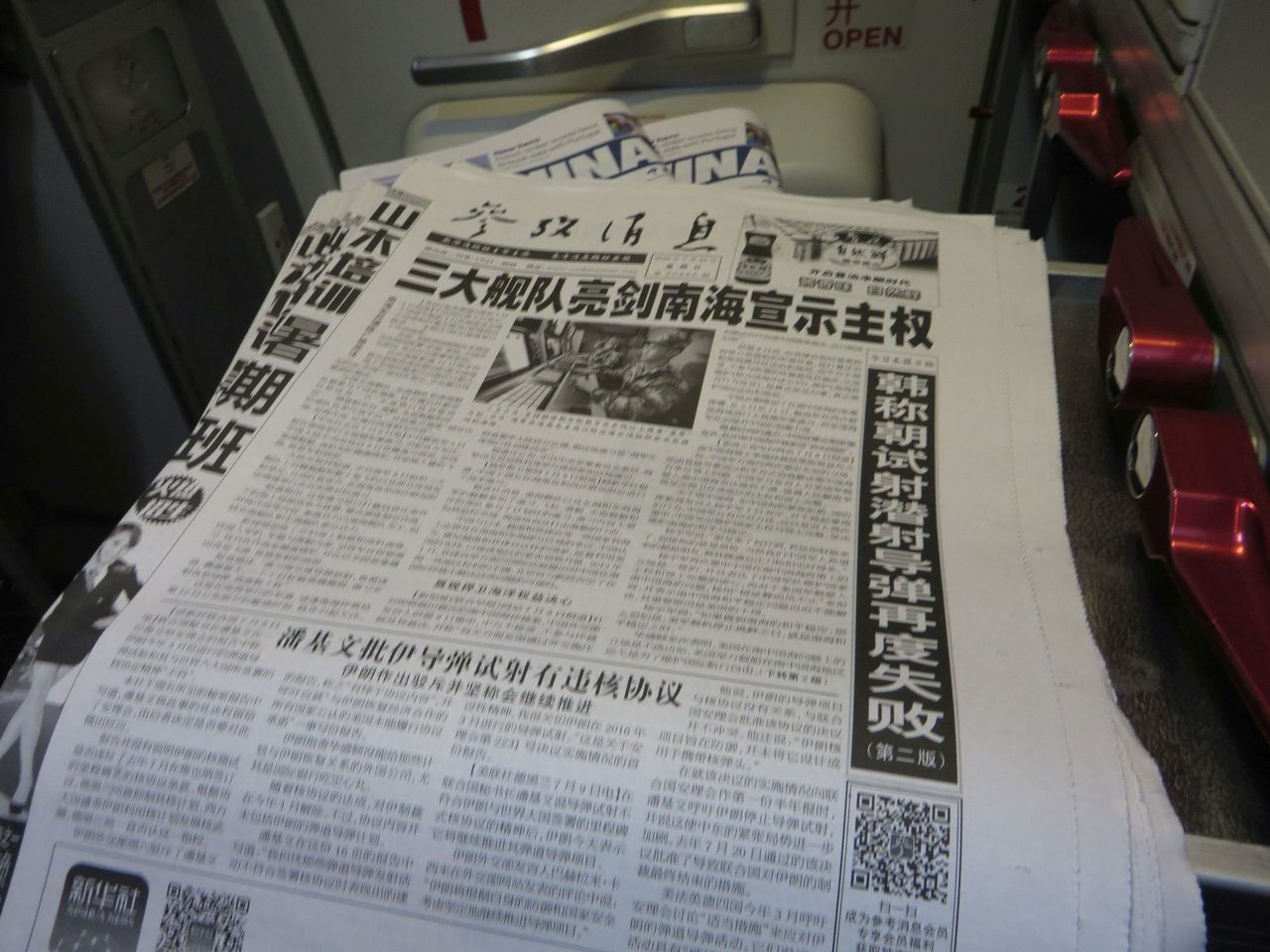
Two rows in 2+2 layout, as is most often the case in China.
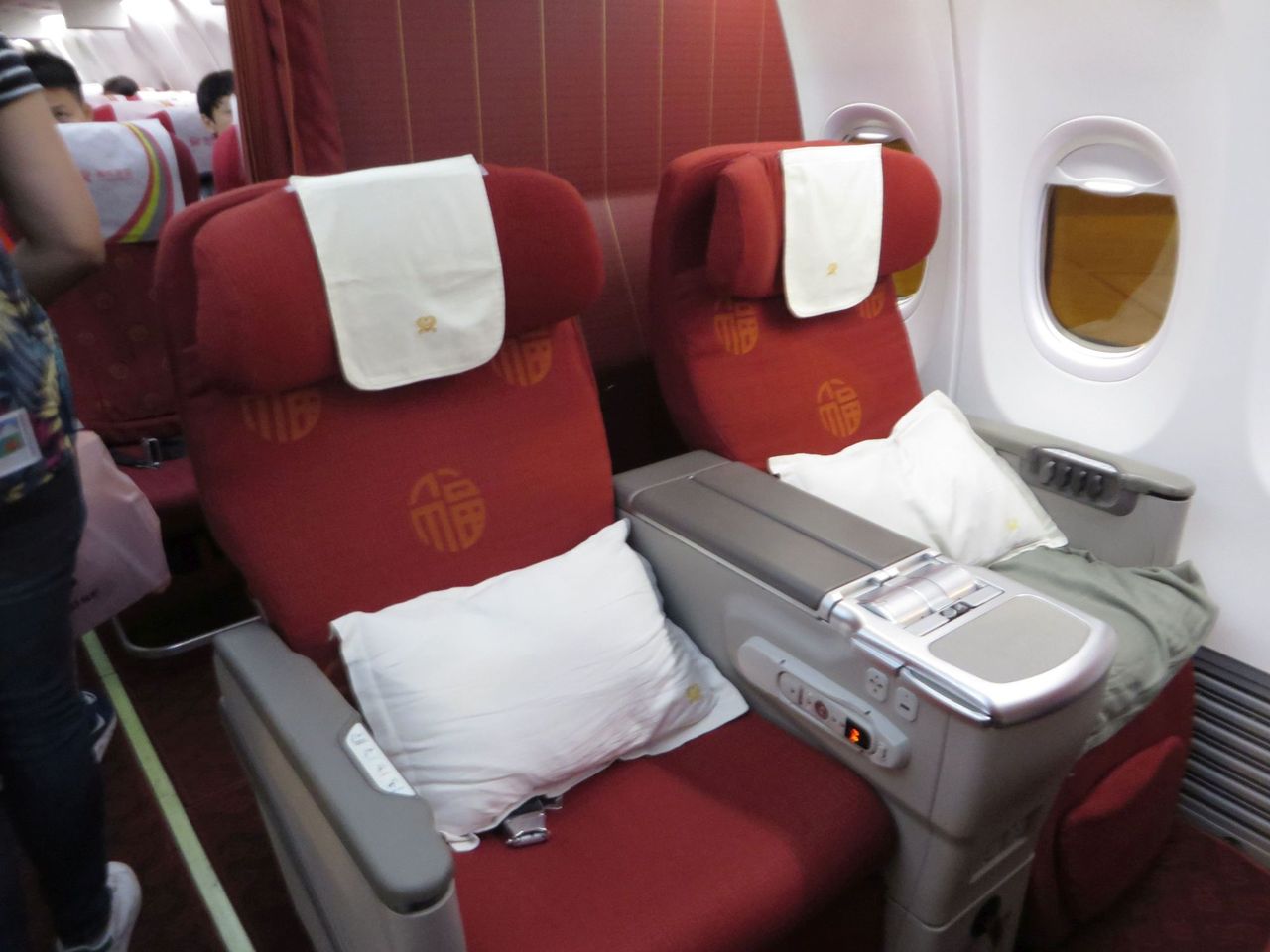
General view of the cabin
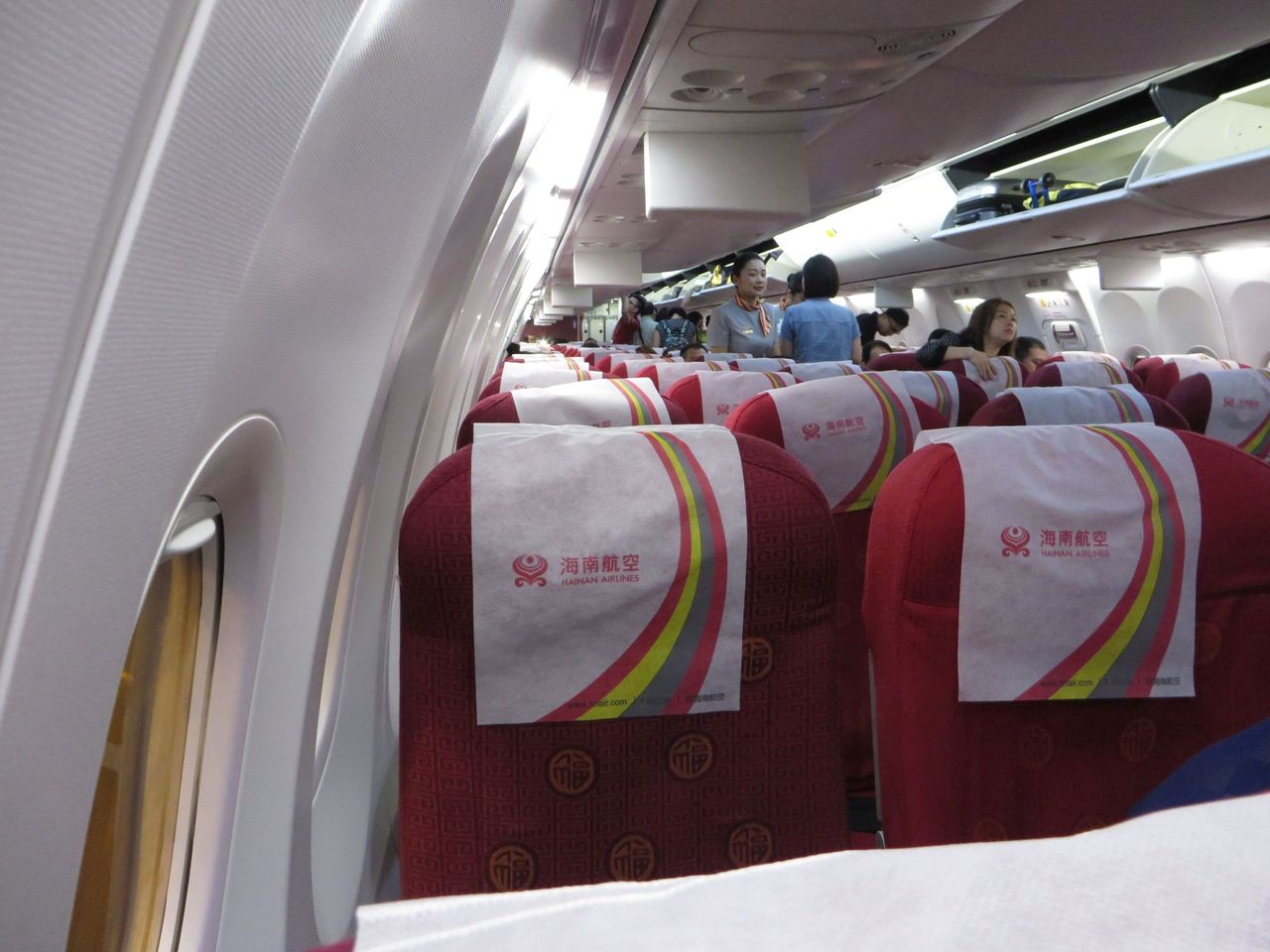
The carpet was absolutely spotless; I liked this design
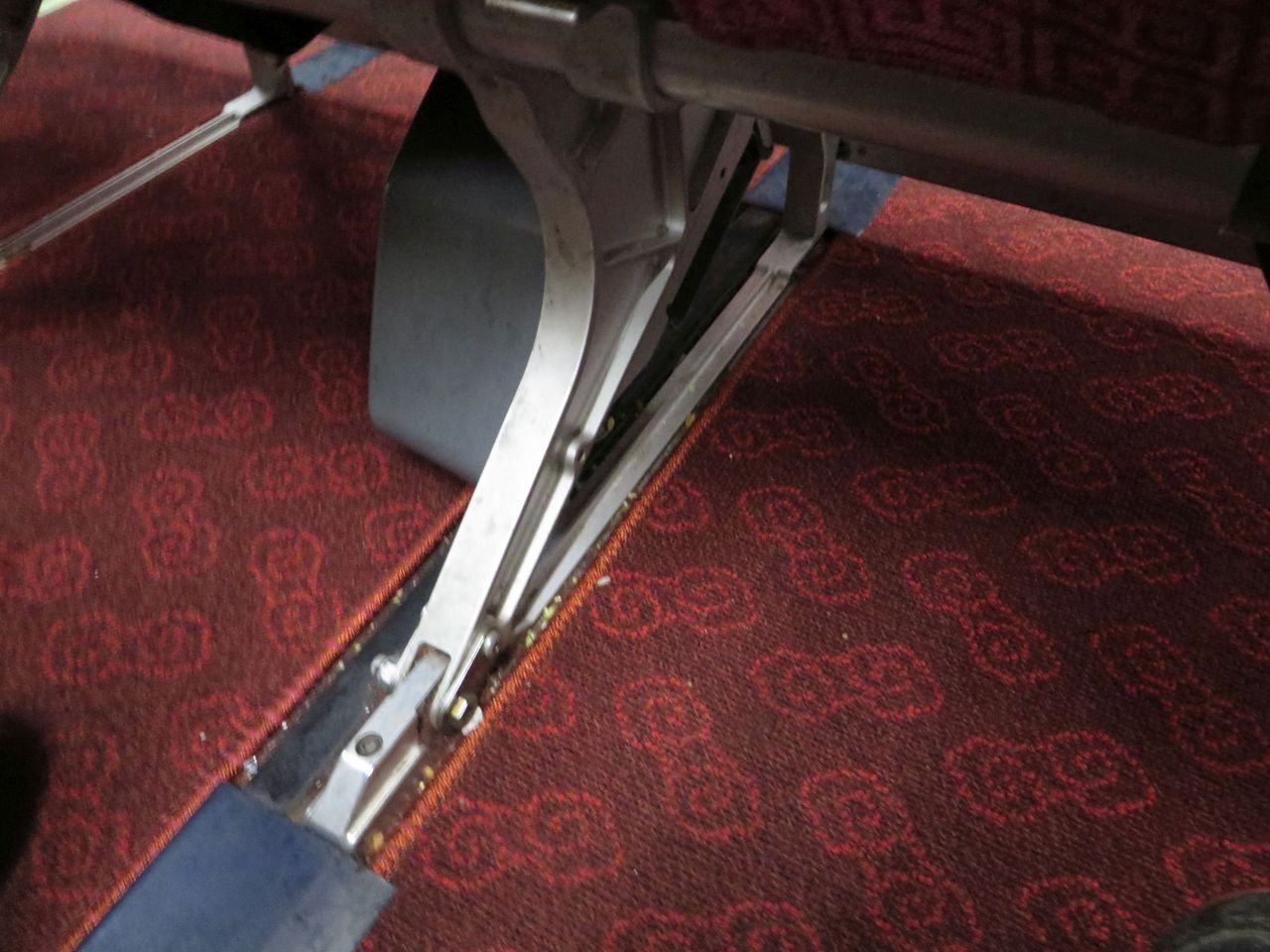
The safety card both sides
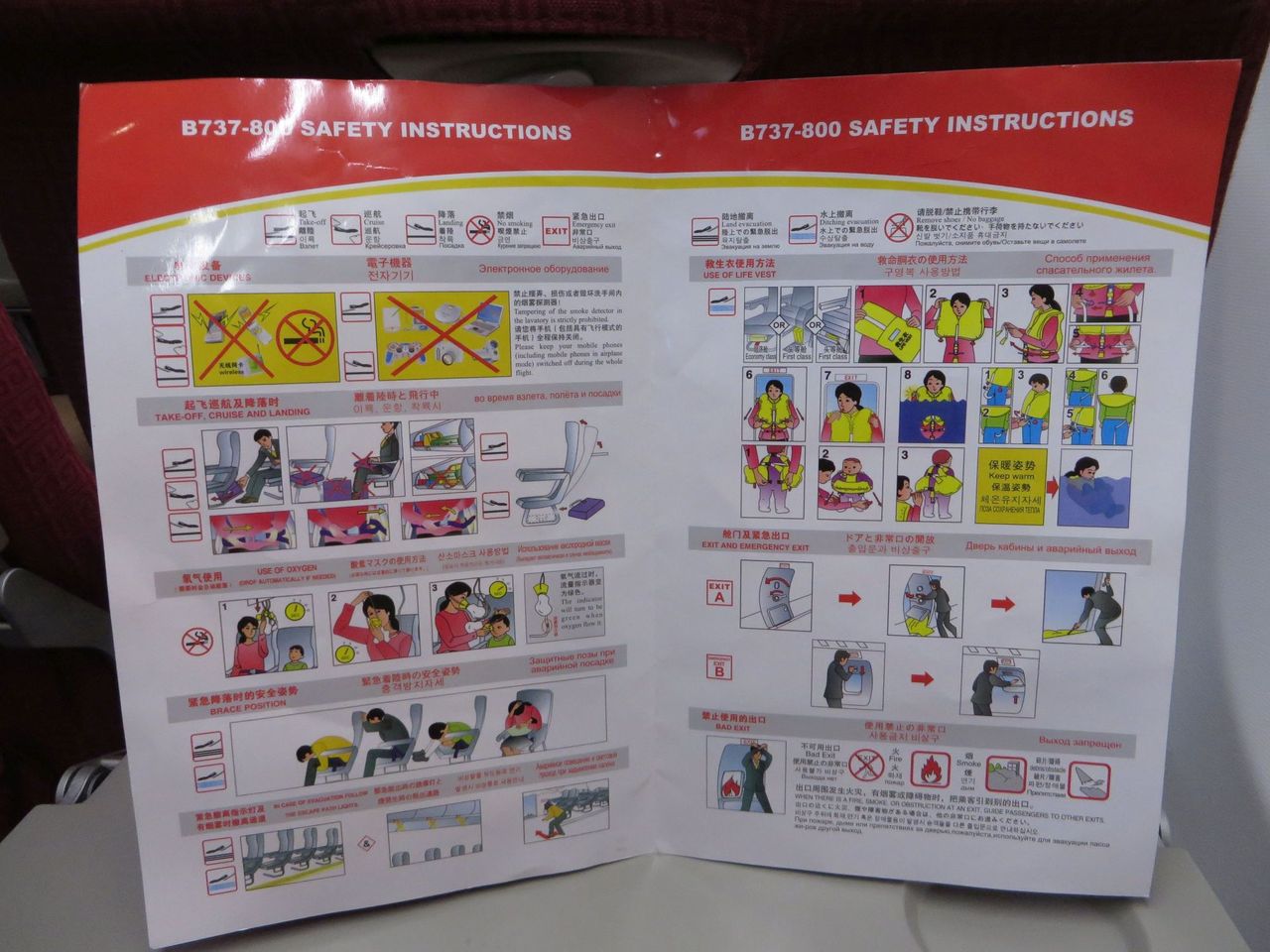
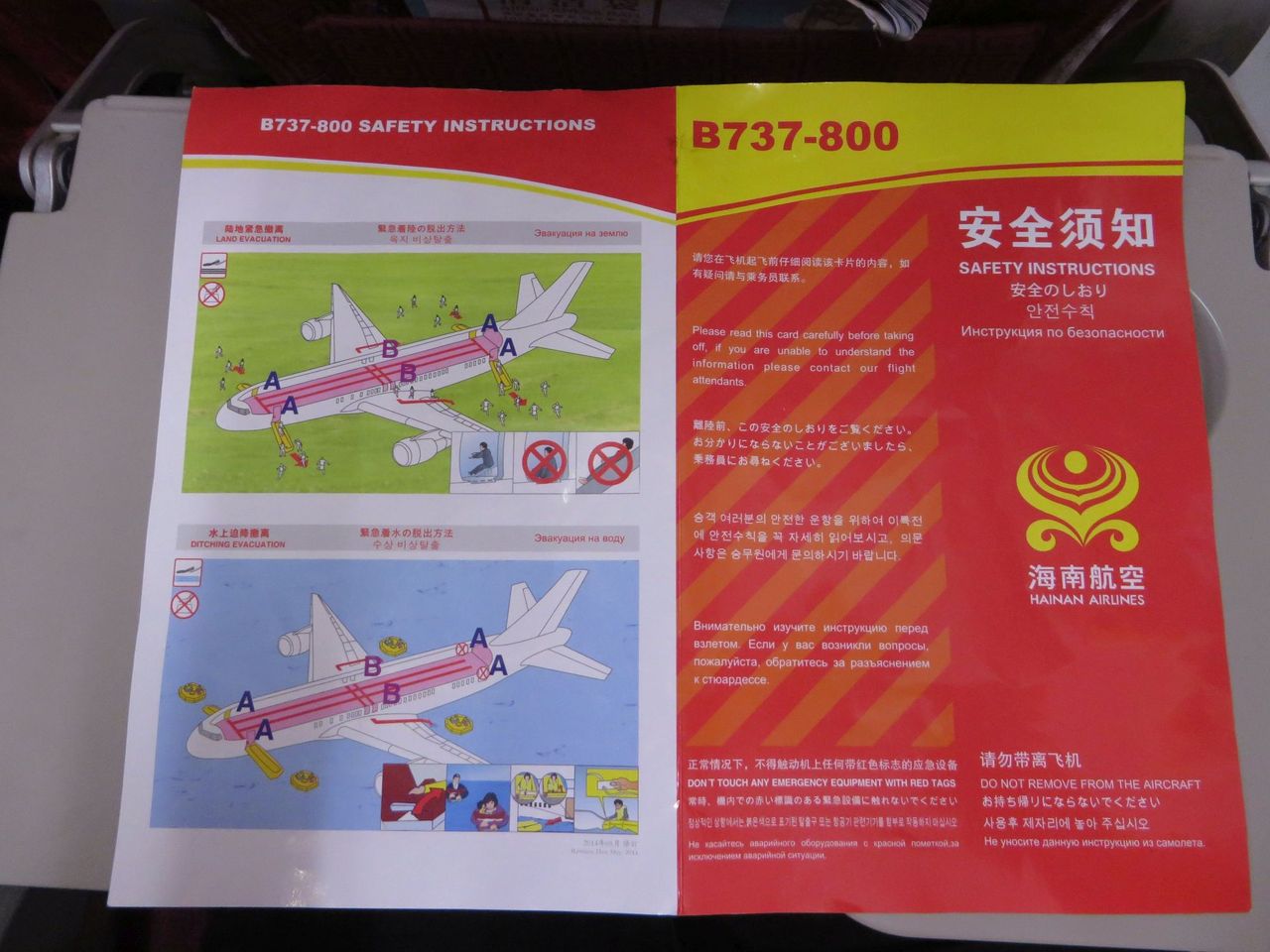
The partition between the two classes,
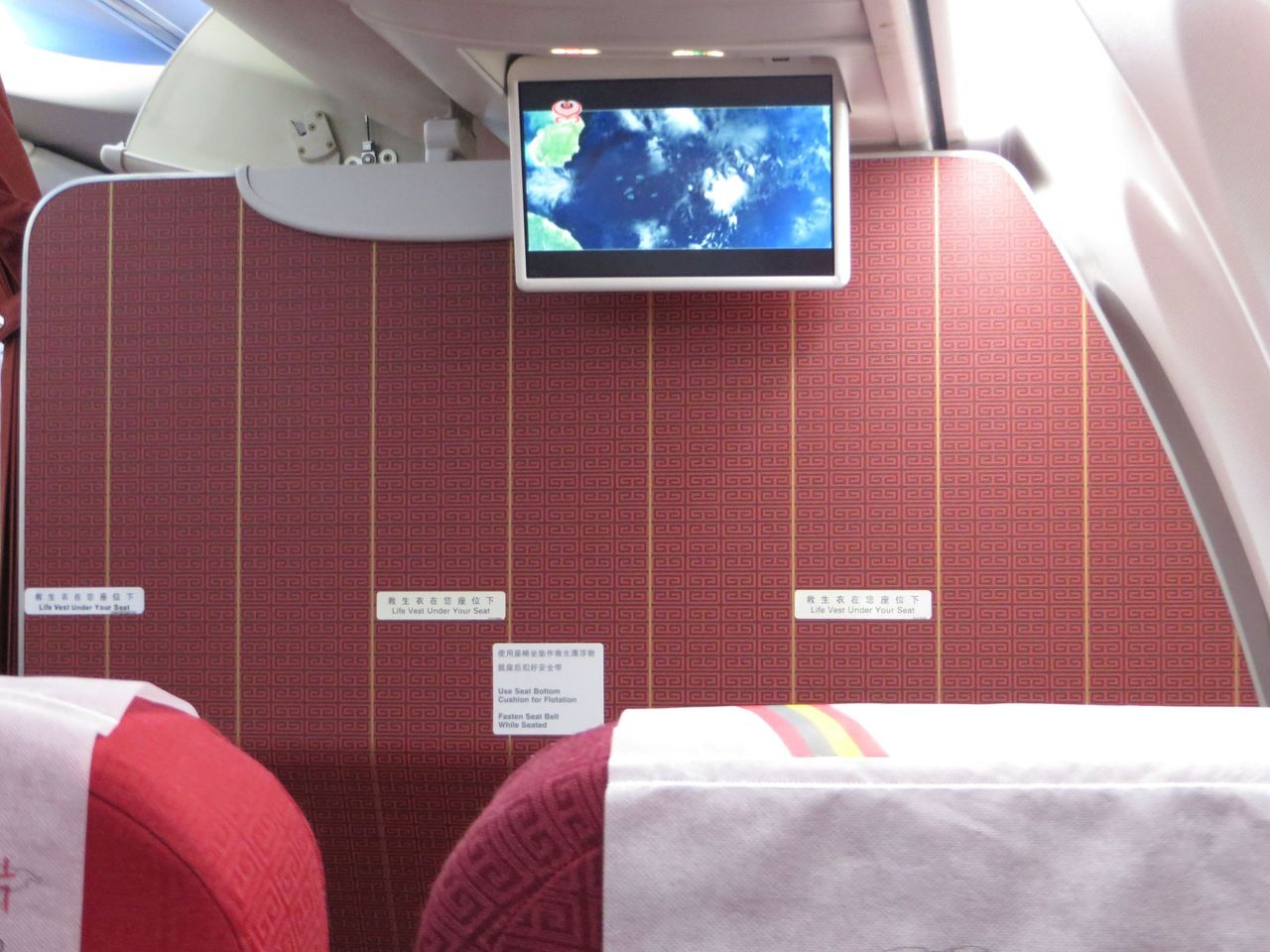
… and a detail of the carpeting of the wall
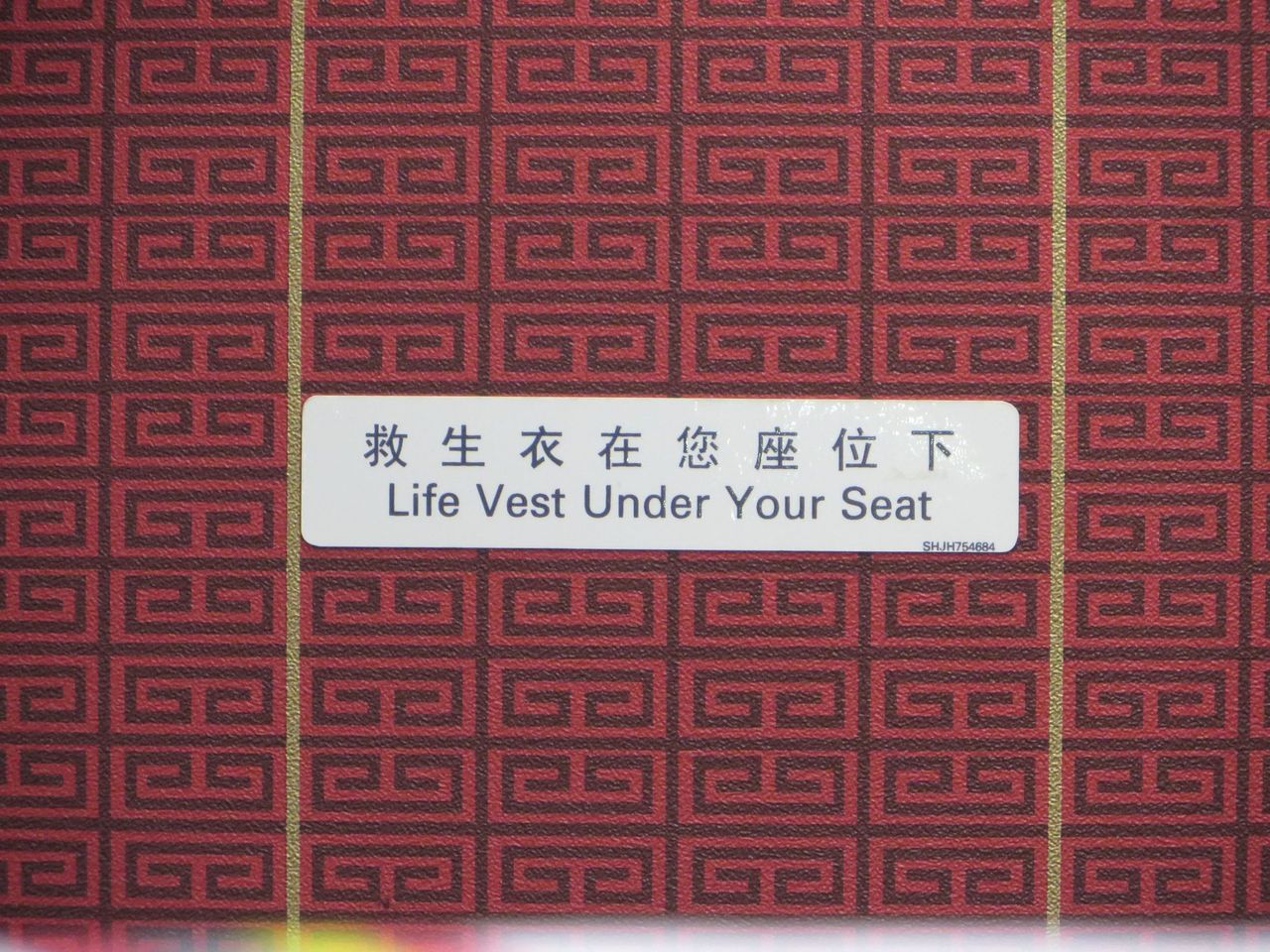
HU is one of many Chinese airlines where the Economy cabin starts at Row 31.
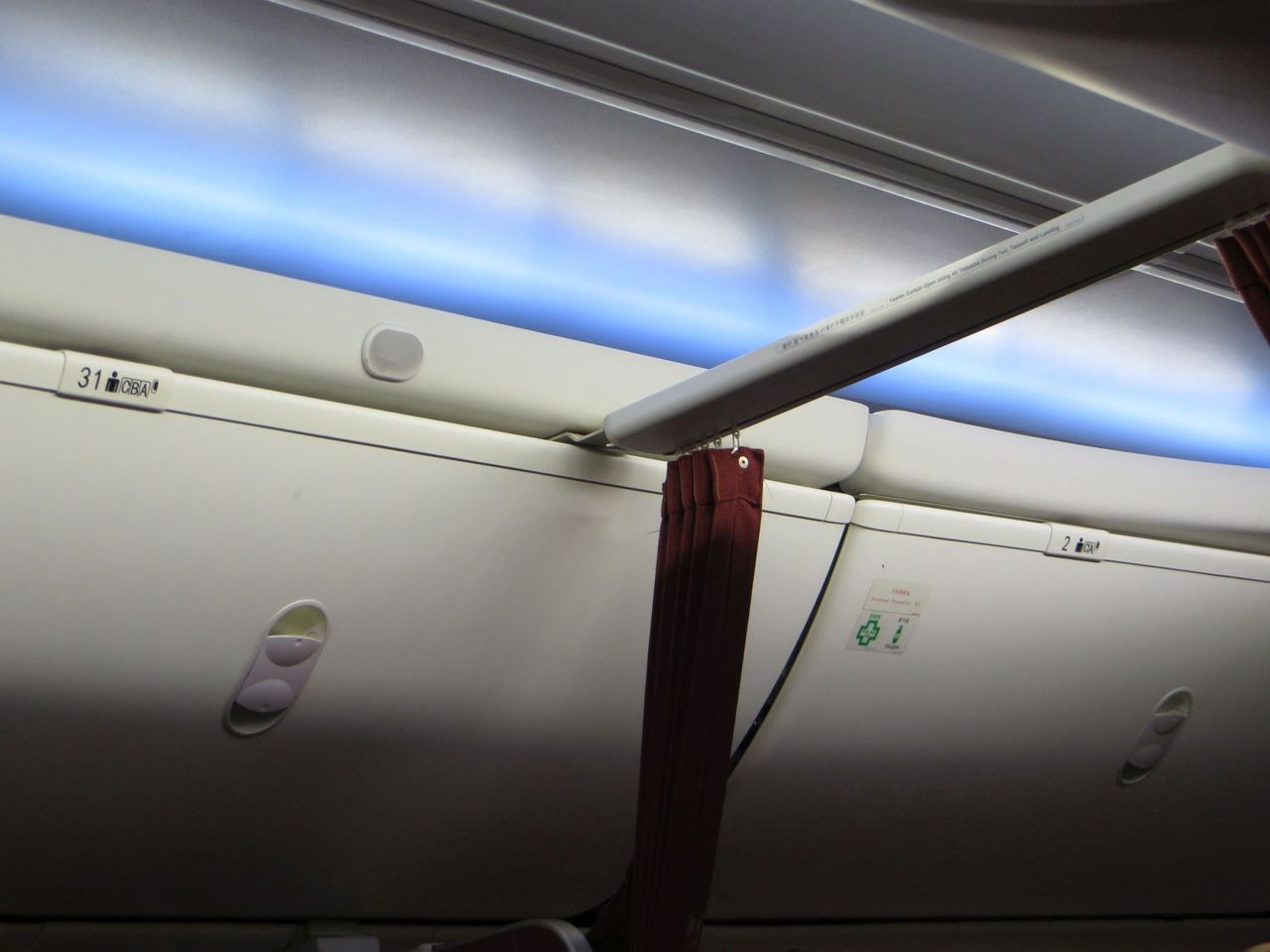
I had left my measuring tape in my suitcase, but this copy of the China Daily taken when entering the plane provided me a 27-28 cm measure, which was a standard seat pitch in a Chinese domestic flight, and also on par with most generous airlines for intra-European flights.
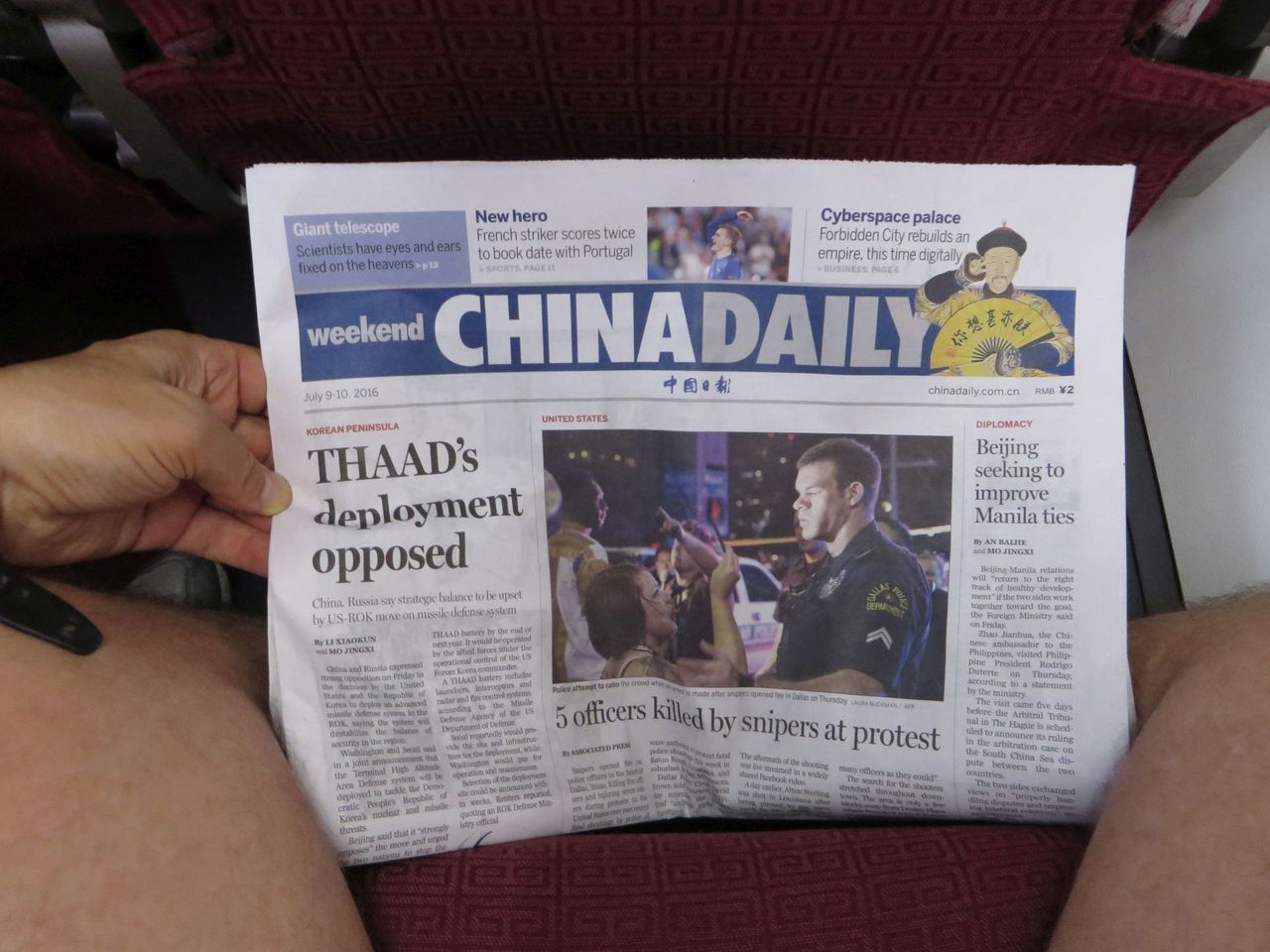
An aircraft of small Chongqing Airlines taxied to park next to us, i.e. very far from the terminal too.
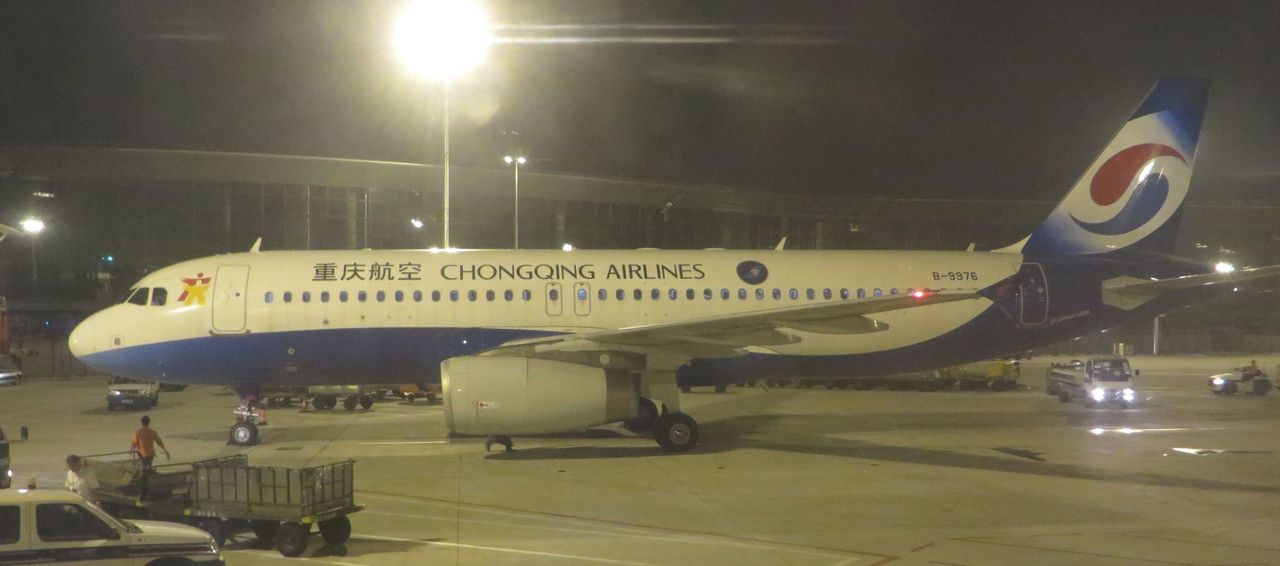
I should have taken a video of the safety demonstration to provide a good rendering of the second degree humor making extensive use of bikini-clad young women (Hainan Island is the « beach destination » for the Chinese who can’t afford to travel abroad). It was a stark contrast with the rather boring safety demonstration videos of most other Chinese airlines.
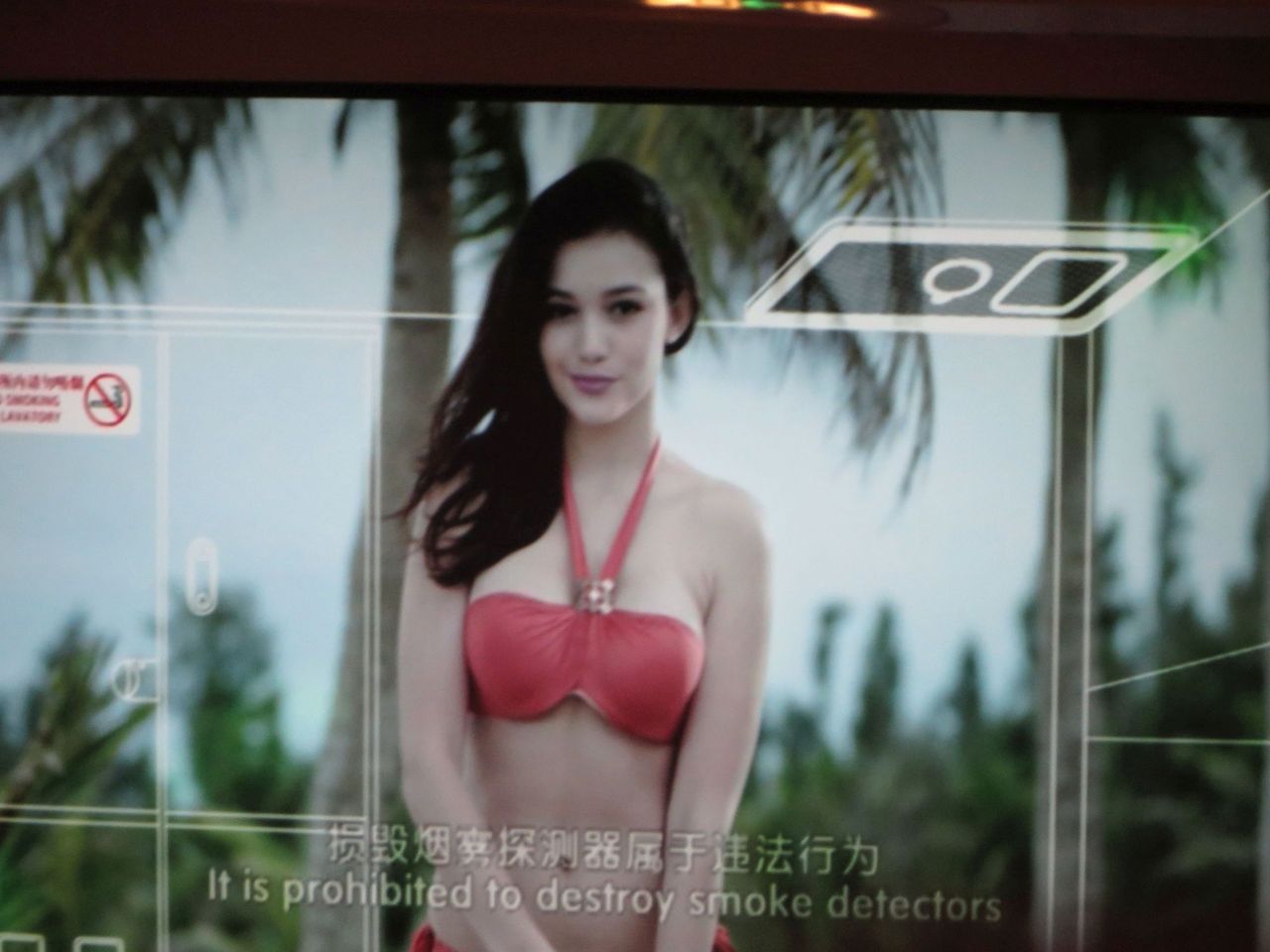
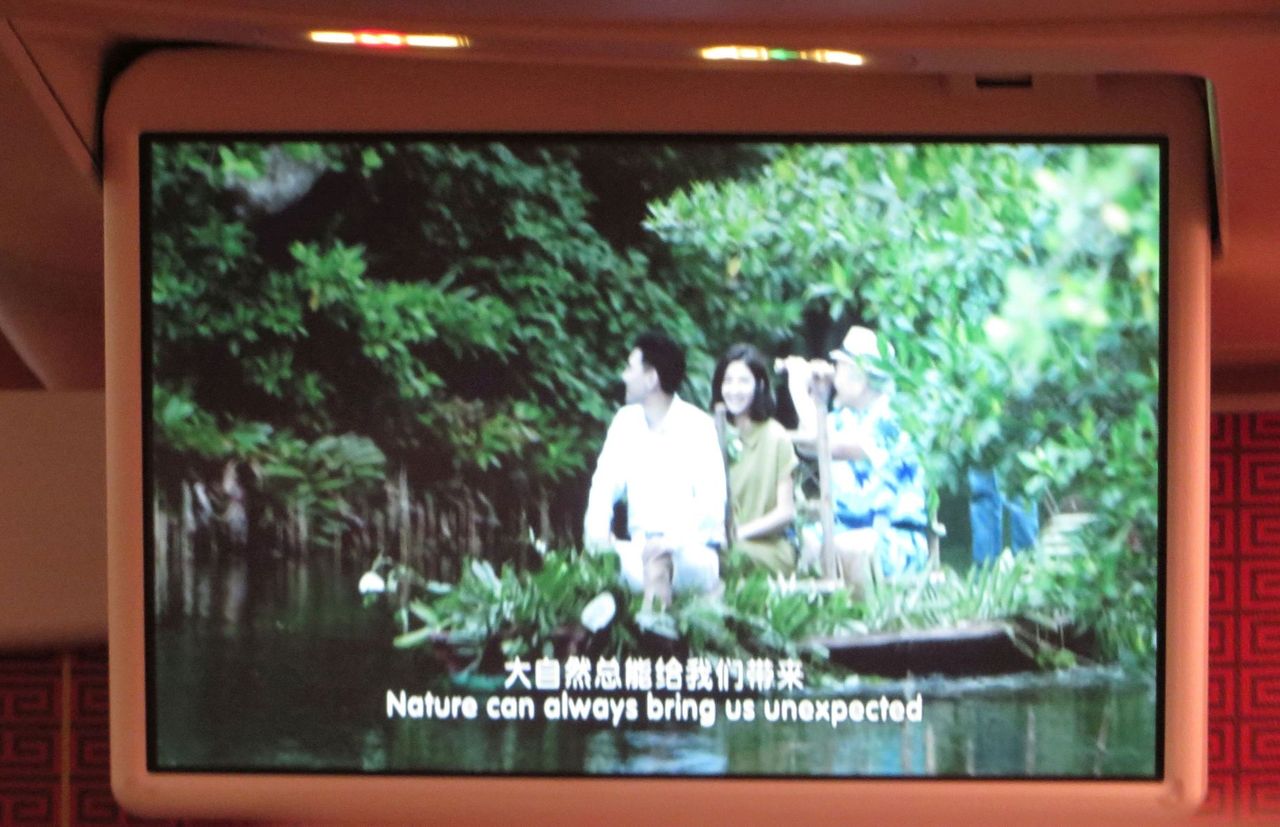
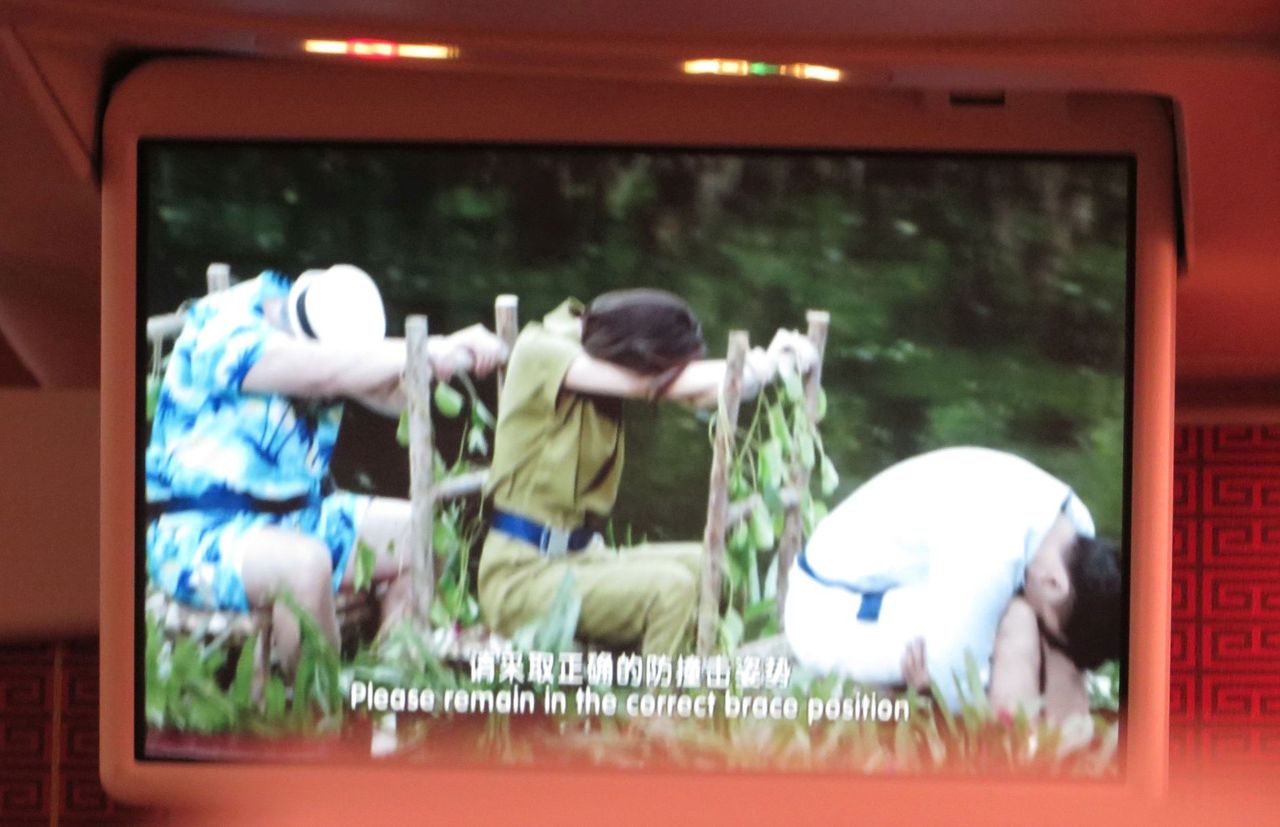
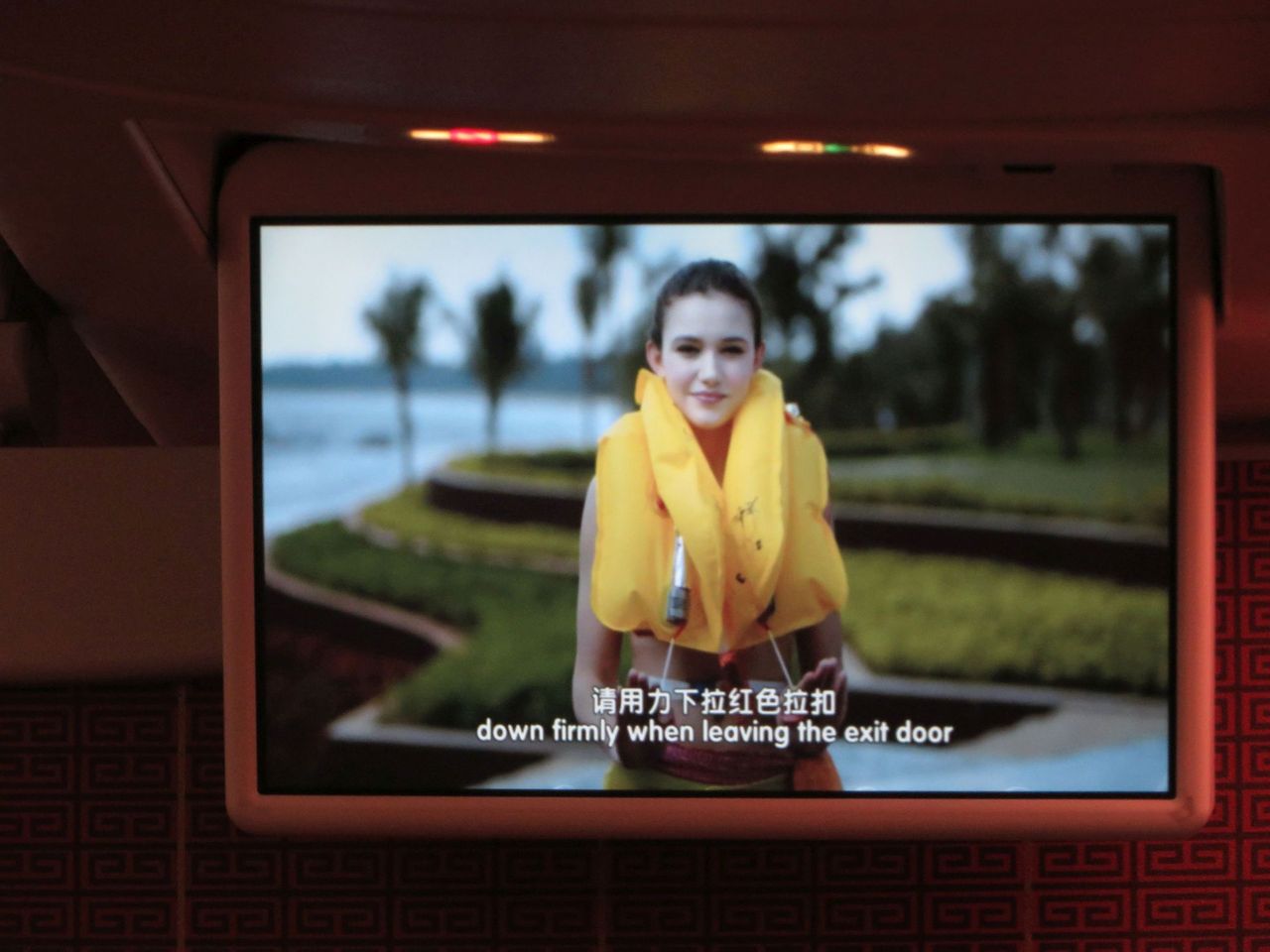
The armrest had a plug for earphone, but none were distributed, and there was possibly no audio offering on that flight.
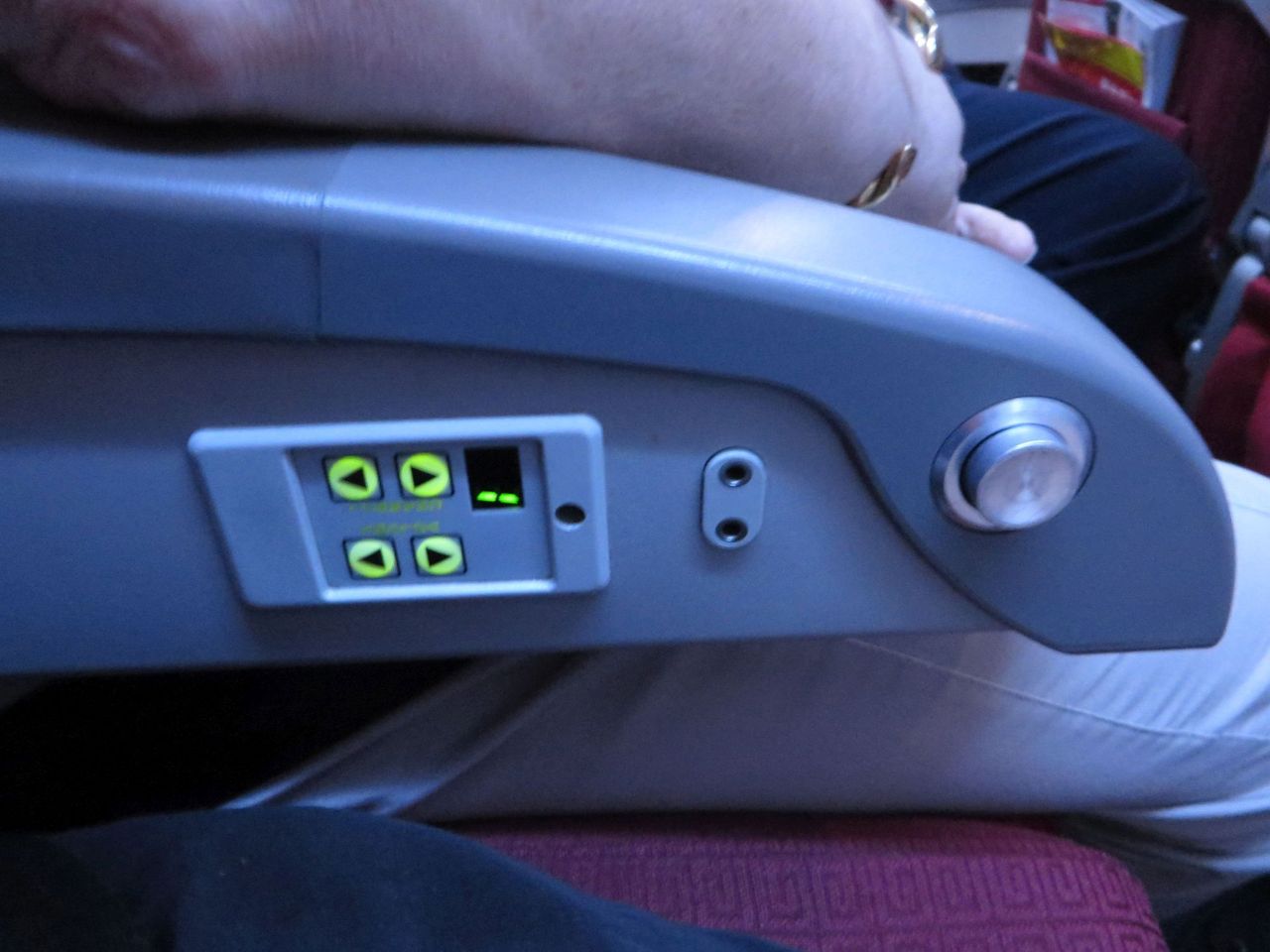
The overhead panels
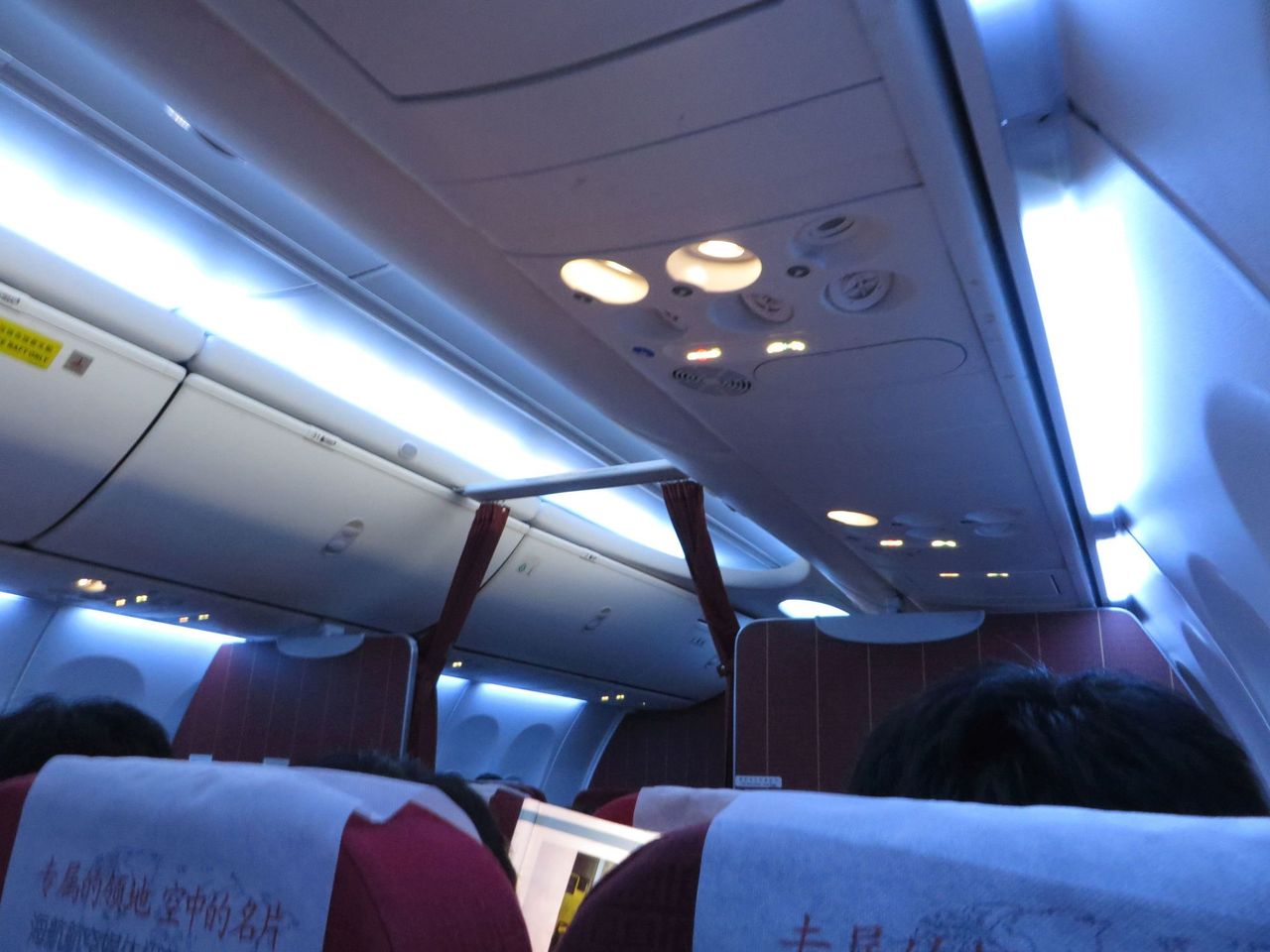
Take-off at 23:07, i.e. over an hour late, after a long wait on the tarmac. This was unfortunately quite common in Mainland China.
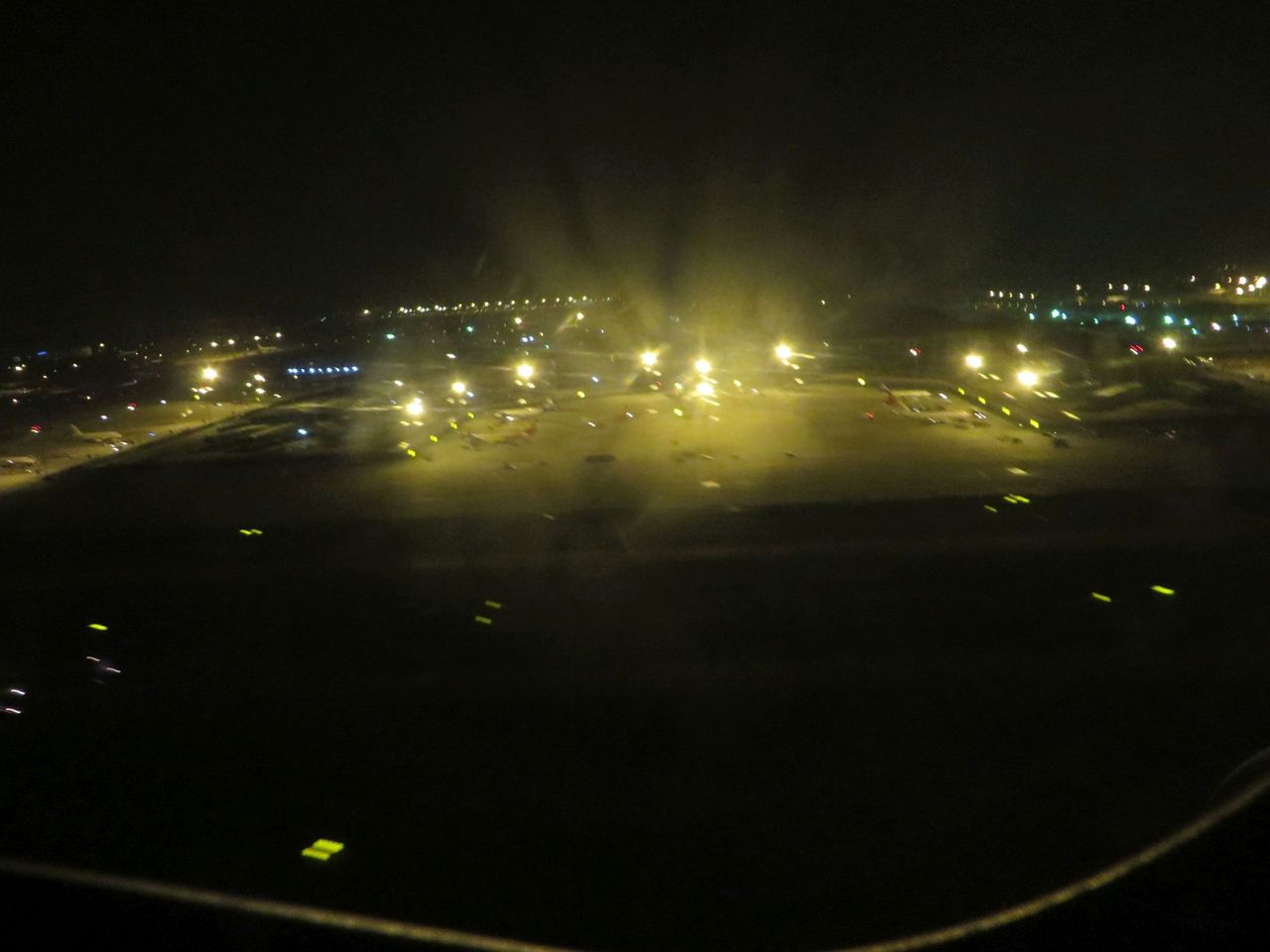
A sign was hung across the curtain, but oops !
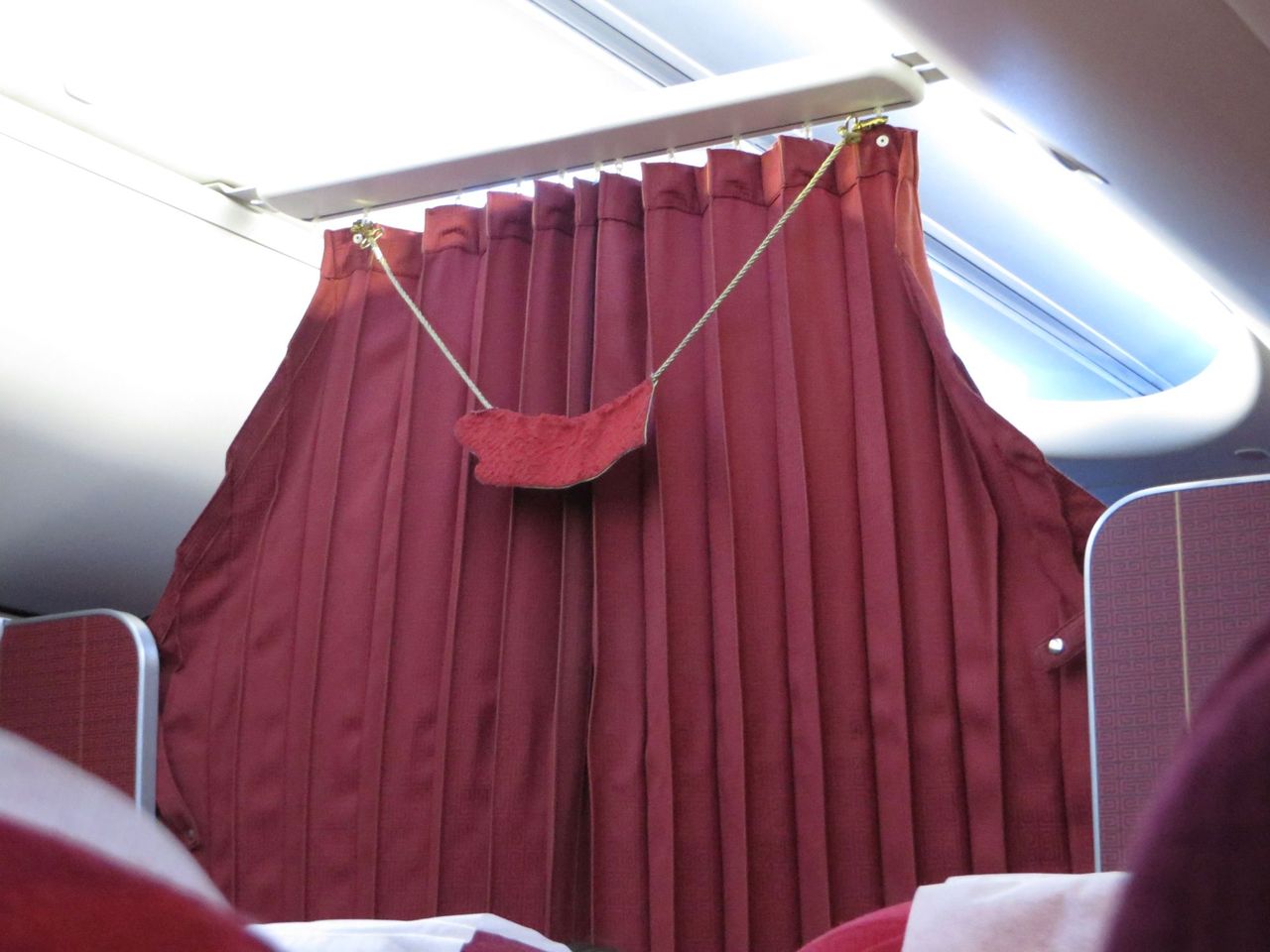
… it was initially on the wrong side.
(It was rather an American style « Domestic First », like on all other Chinese airlines. I do not remember seeing that “first class” naming on other domestic flights in China).
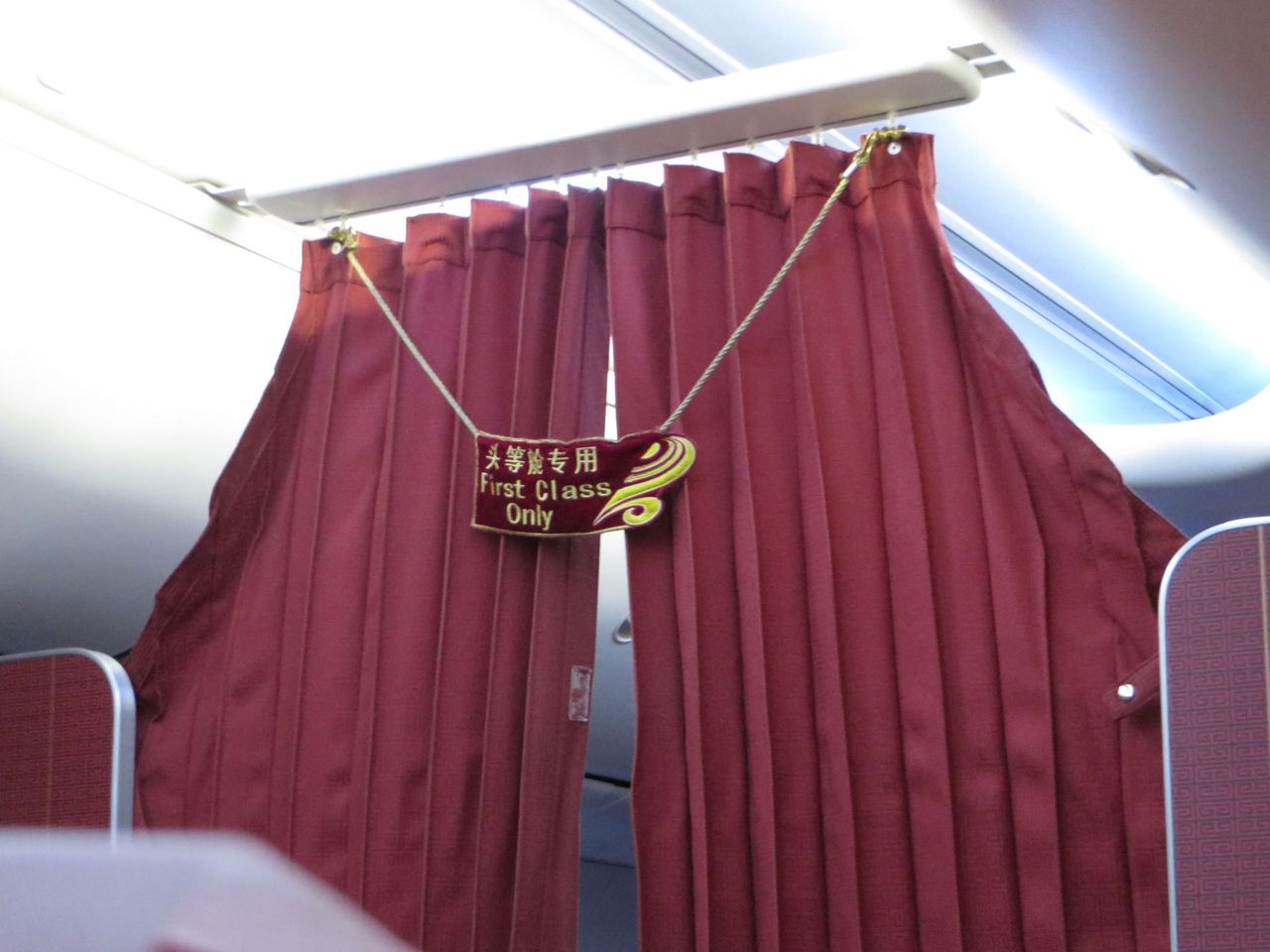
I could not expect to feast on a one hour flight late at night : the catering was limited to 20g of peanuts and 330ml of water. You are supposed to have already had dinner at that time, anyway.

This brand of water is nowhere to be found in Beijing but is dominant in Chengdu. Few Chinese people (and how many English-speaking FR readers?) know that C’est bon means “it’s good” in French.
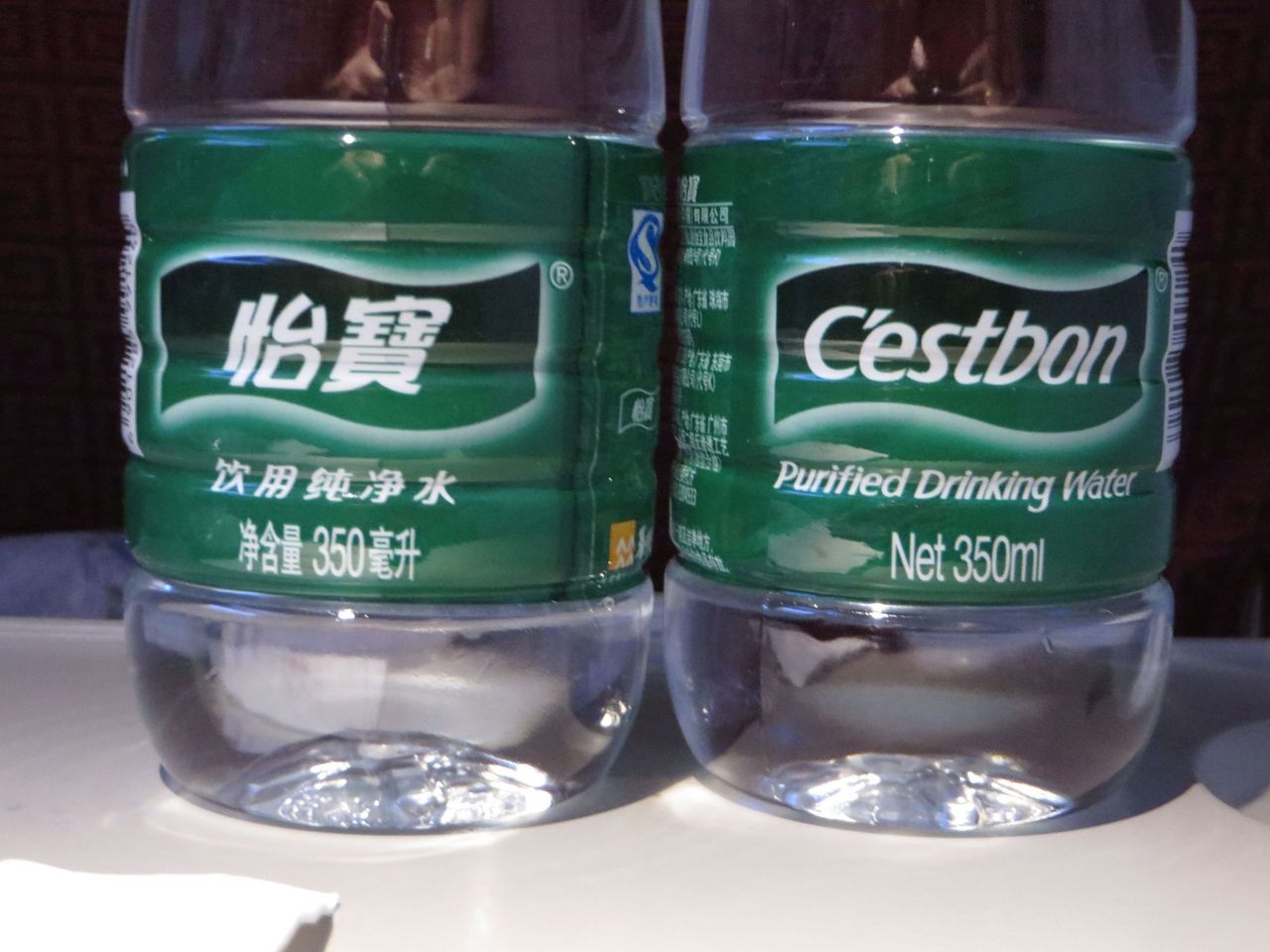
There was of course next to nothing to see on this route which mostly over water, apart from this winglet.
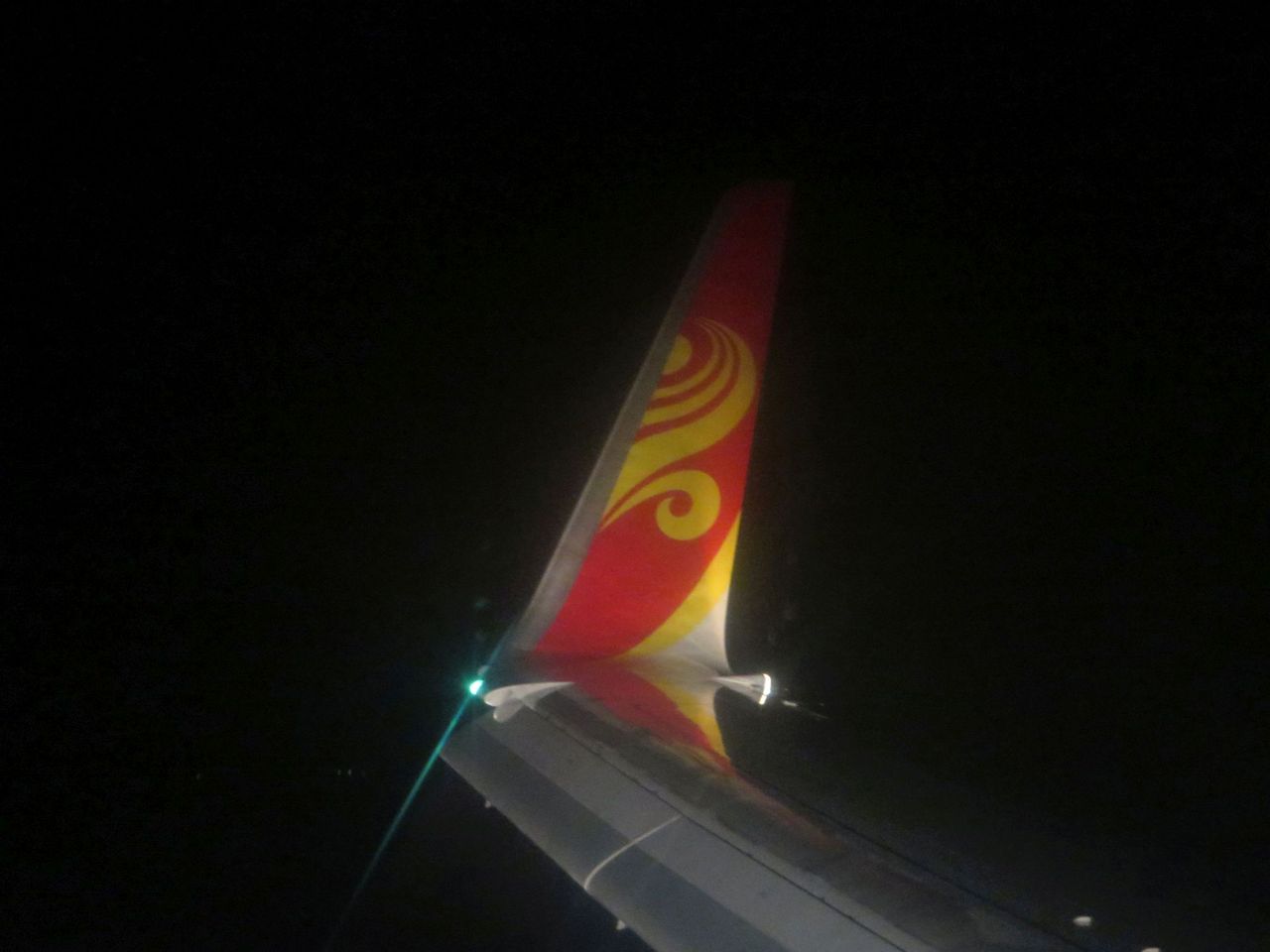
It was a few minutes before midnight and we saw the first city lights, most probably from the urban area of Haikou.
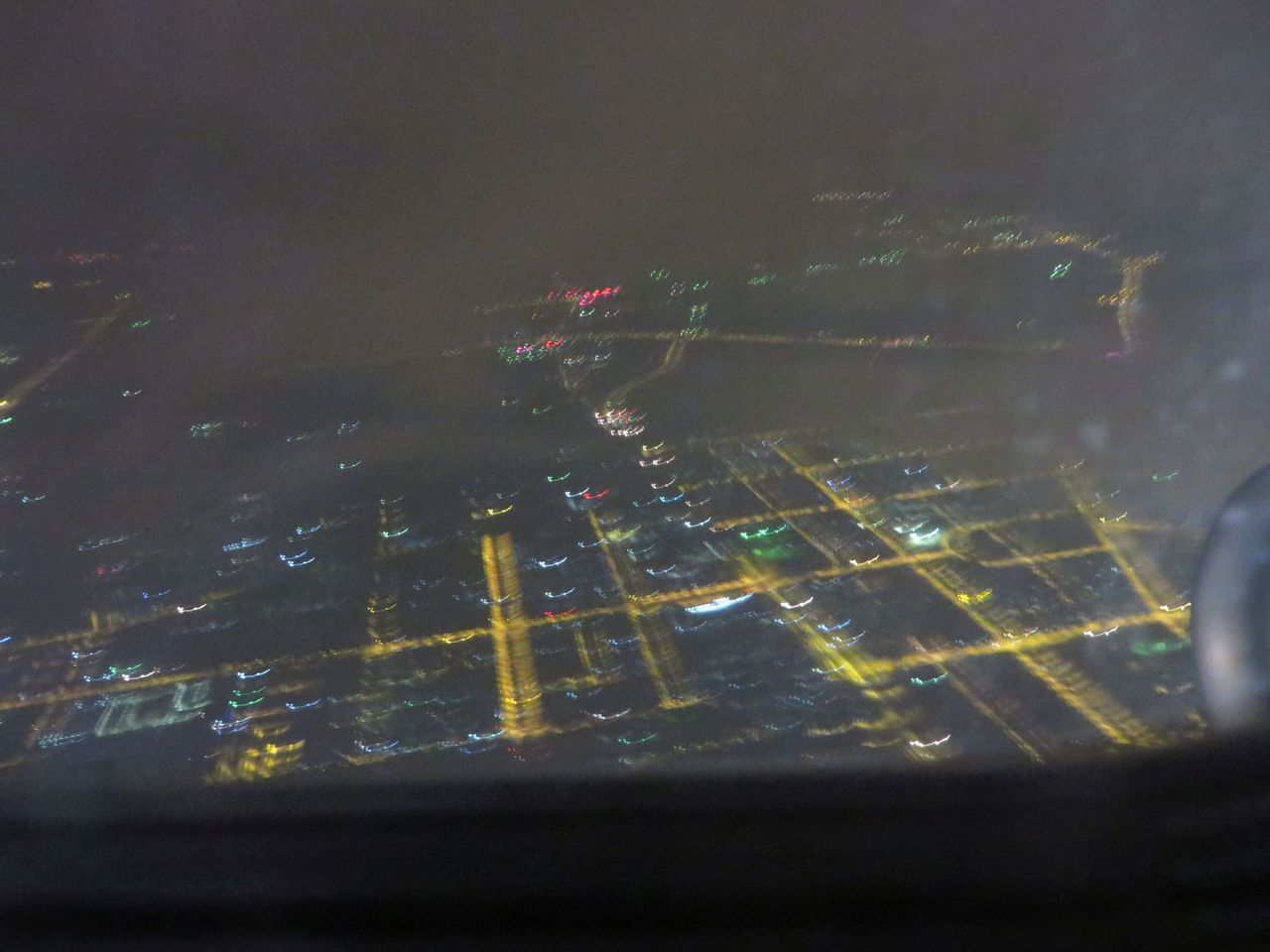
Touchdown at 00 :04, or ETA + 56’
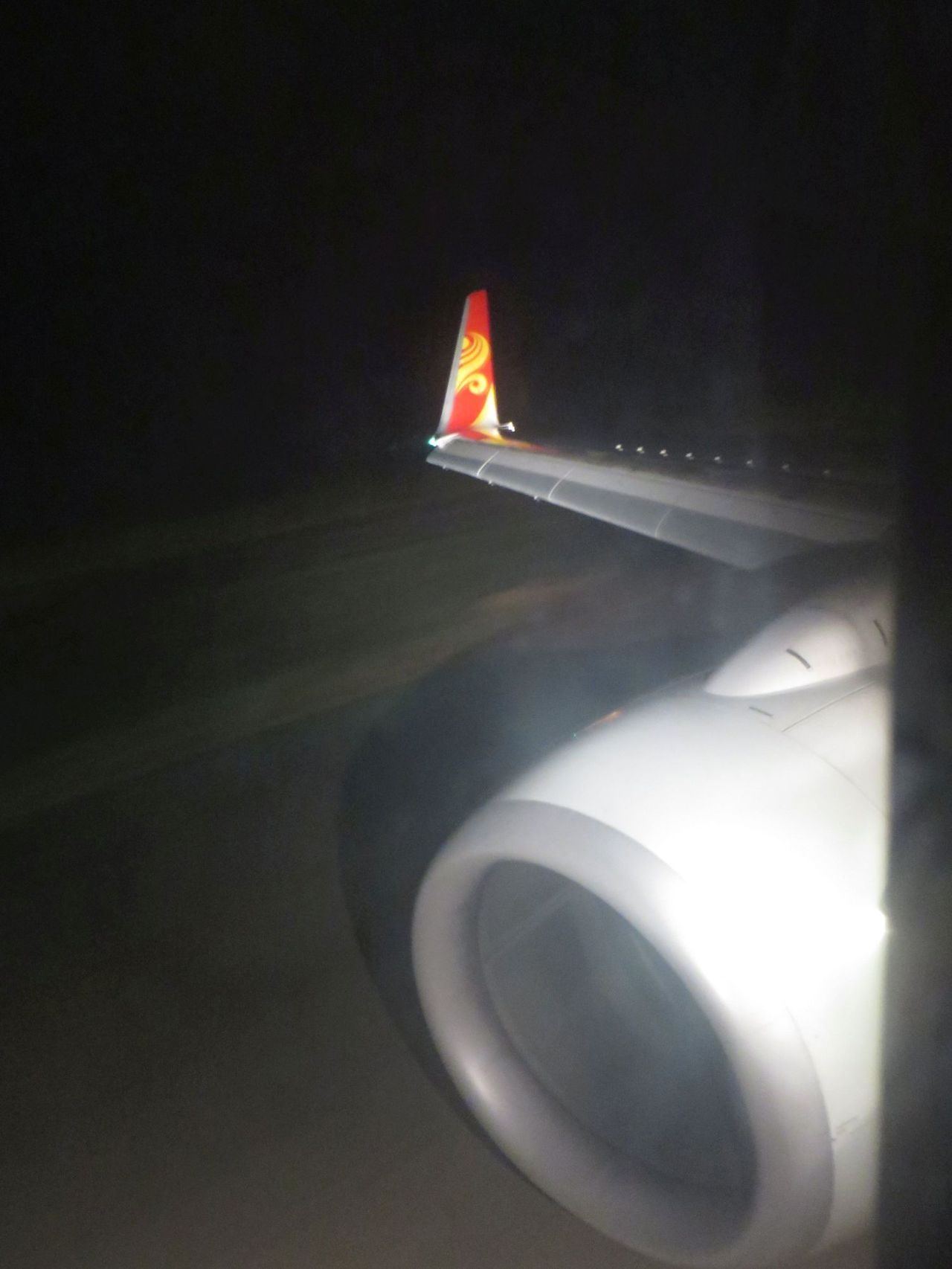
Short taxi guided by a « Follow me » car.
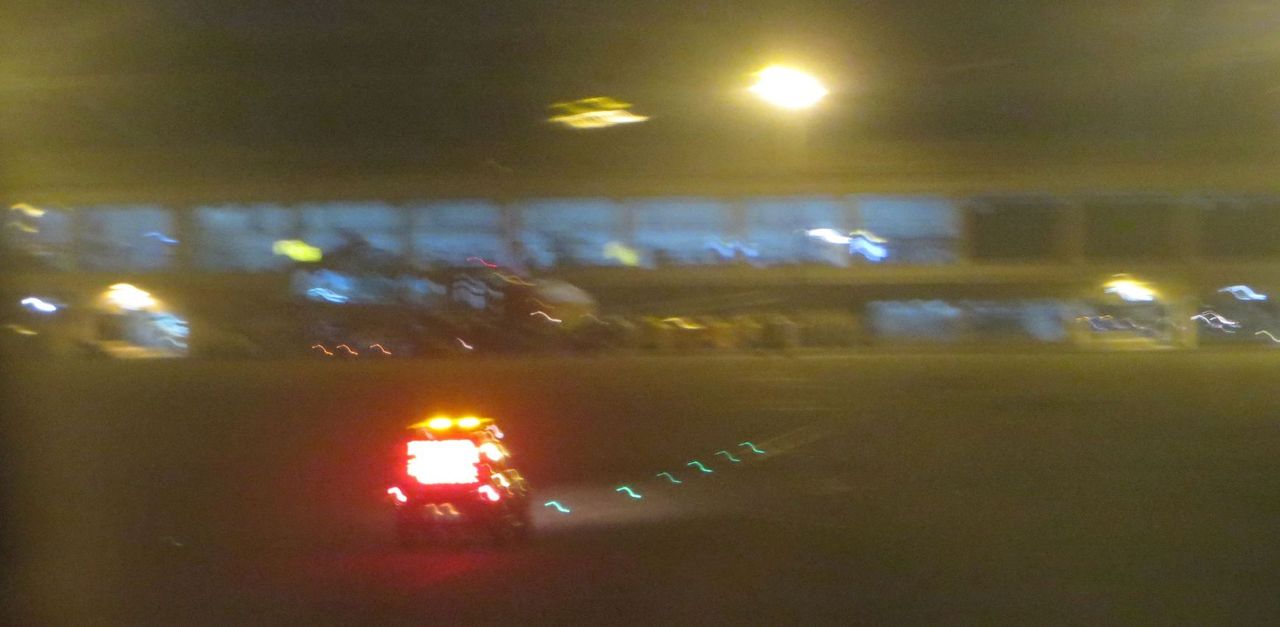
An arrival at the terminal with the de rigueur name of the city 海口 in giant red letters. What was unusual here was that it was in Latin letters too.
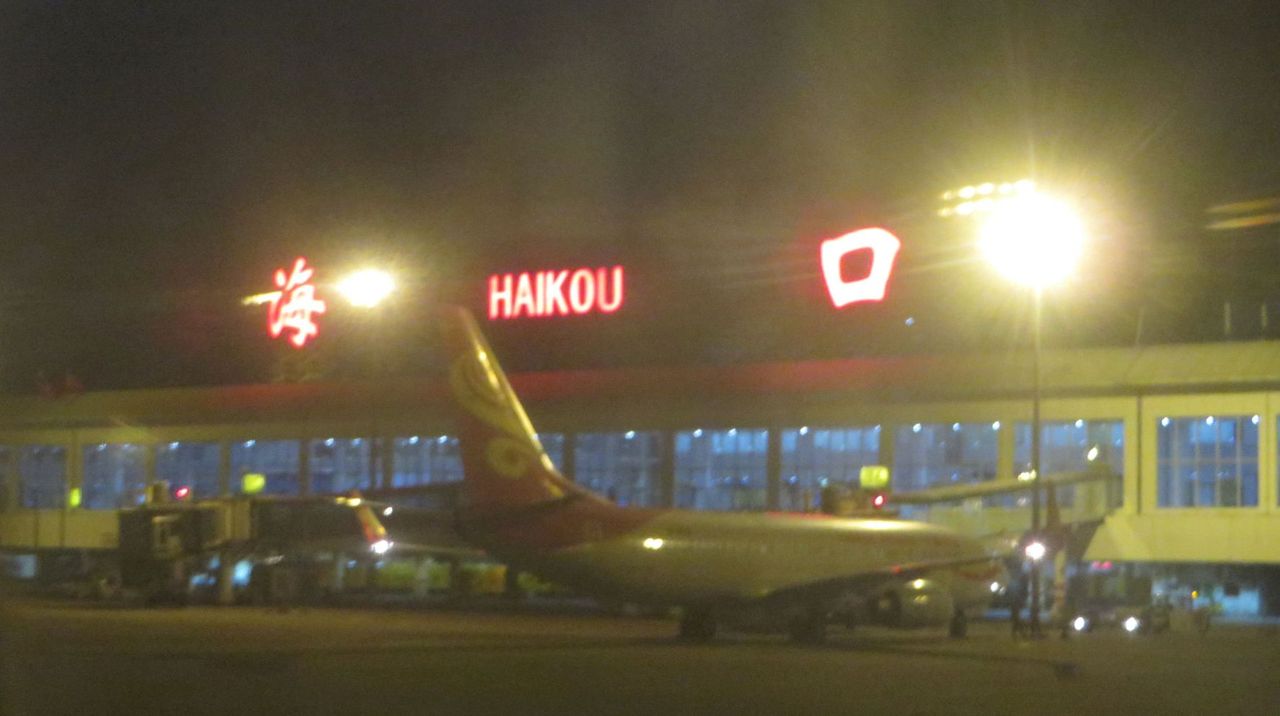
Haikou is the capital of Hainan province, and the historic hub of Hainan Airlines, which meant that the only overnighting aircraft were HU.
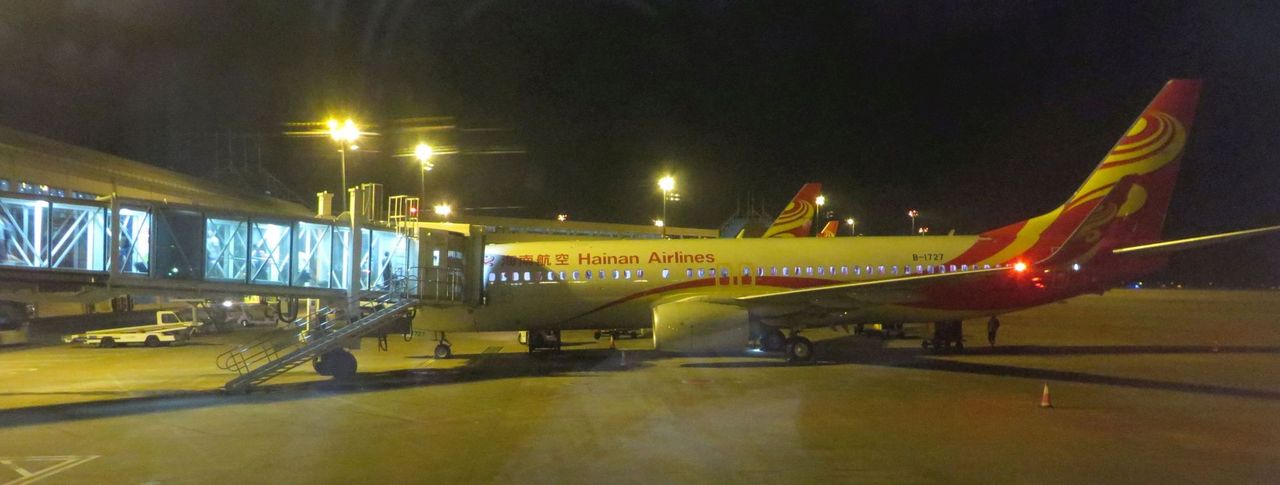
A long walk airside to reach the luggage delivery room : our luggage appeared at 0 :22, i.e. 15 minutes after the aircraft’s final stop. I had the impression of having waited longer than that, most probably because I was so tired.
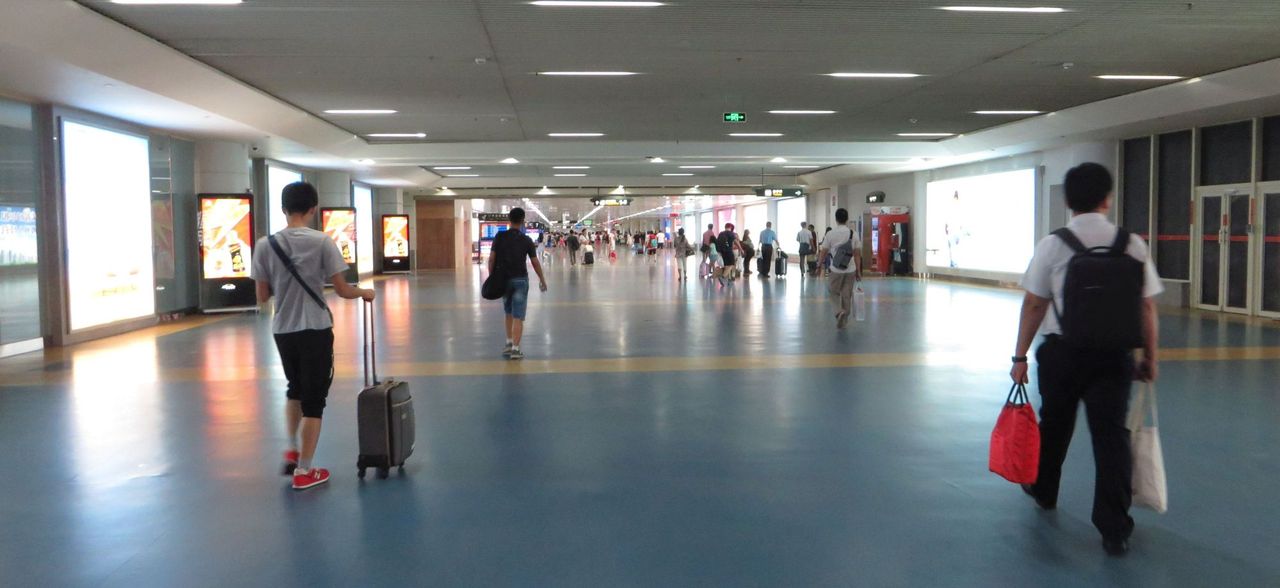
At that time, 4 domestic flights out of 9 were from Shenzhen, but note a flight from Harbin, located 3,200 km north-east. This one was a 6h25’ trip from there, including a stopover in Shijiazhuang.
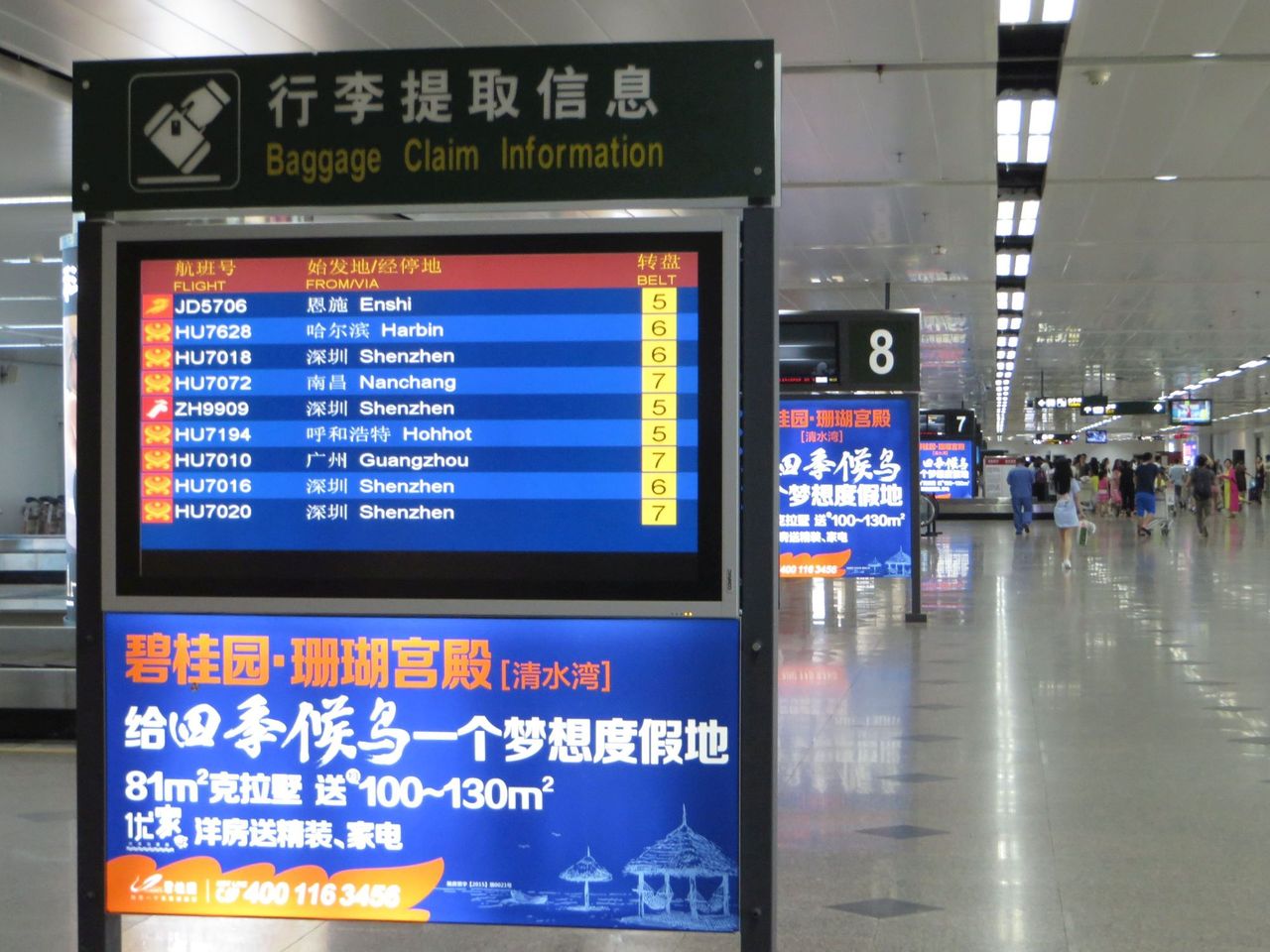
It was so late that the only option was taking a taxi. There was nearly no waiting, but the driver refused to use his meter:
- It will be 80 yuan for the ride
- It is much too expensive, I can’t accept more than 60 yuan !
[a completely random counter-proposition, based on my knowledge of the 25 km distance to the city center, but I know that there is always a margin of negotiation in Chinese flat fares]
- Come on, 60 yuan would not even be the fare with the meter ! 70 yuan, then.
- OK, let’s go for 70 yuan.
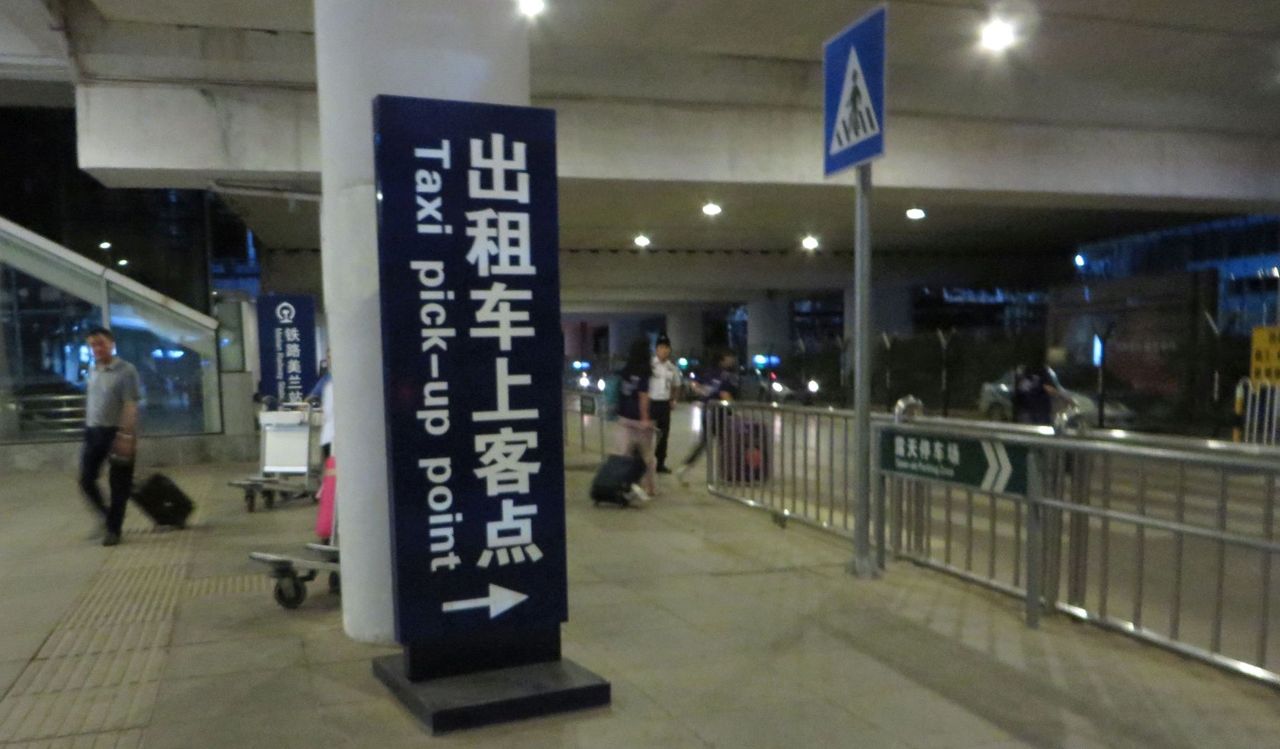
On the way back a couple days later, the same ride in the reverse direction cost me exactly 70 yuan on the meter….
[Note: meter usage refusals are not for foreigners only. Our Chinese friends had the same frustrating problem at Shaoguan’s high speed rail station]
There were of course no traffic jams at that time in the night and the taxi went fast, below the speed limits though because of the number of speed radars, and we made it quickly to the hotel where we stumbled to sleep in this room
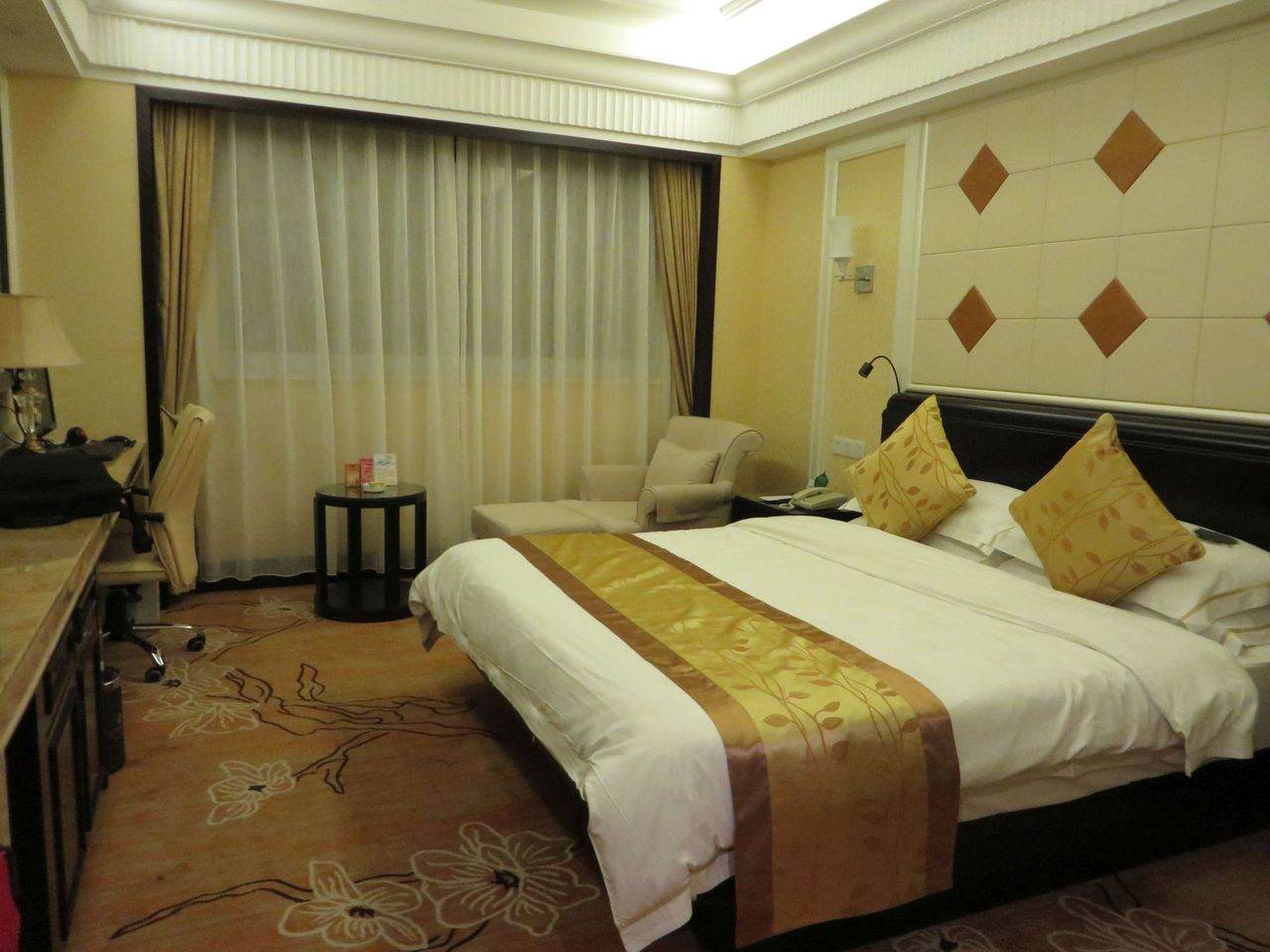
… in a high level within walking distance of the historic center of the city
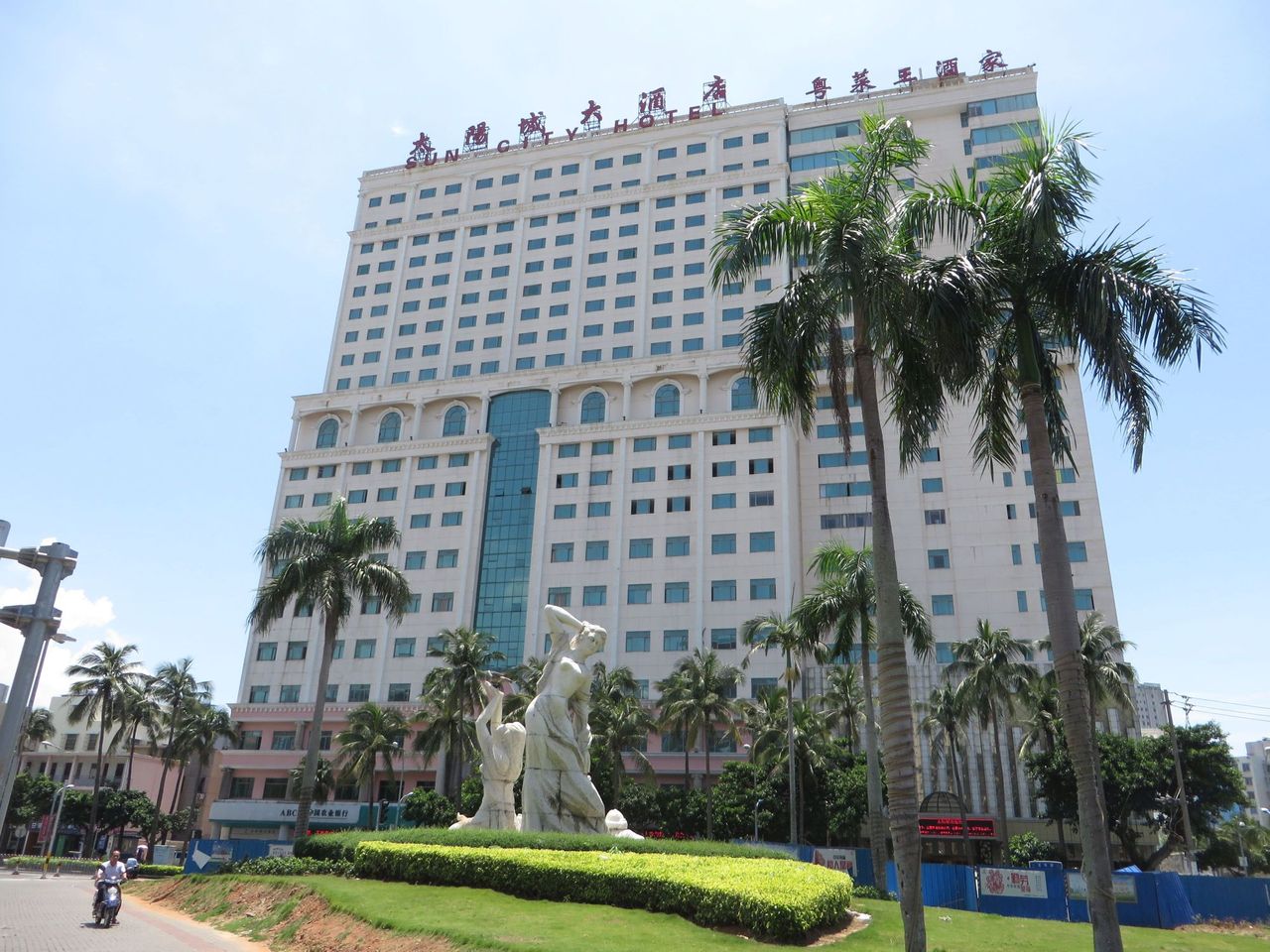
… which could not be seen from our room.
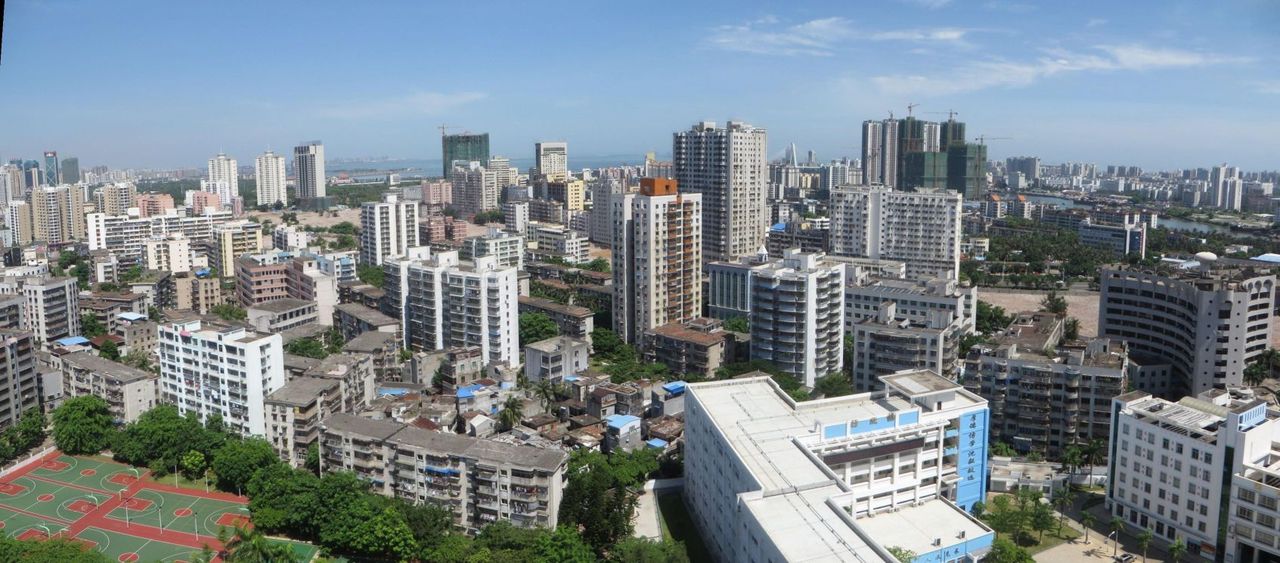
This is the end of this FR, and the beginning of a tourist bonus which backtracks while staying initially on a hotel theme.
When you spend a week-end in a small Chinese town like Shaoguan 韶关 (not even 700,000 inhabitants!), out of major tourist routes, whose airport closed to civilian traffic after a few years of operation, you can discover the affordable provincial concept of Chinese luxury.
This hotel looked rather bland from the outside – I would have needed a panoramic shot to have the whole façade, but the trees on the parking lot were in the way.
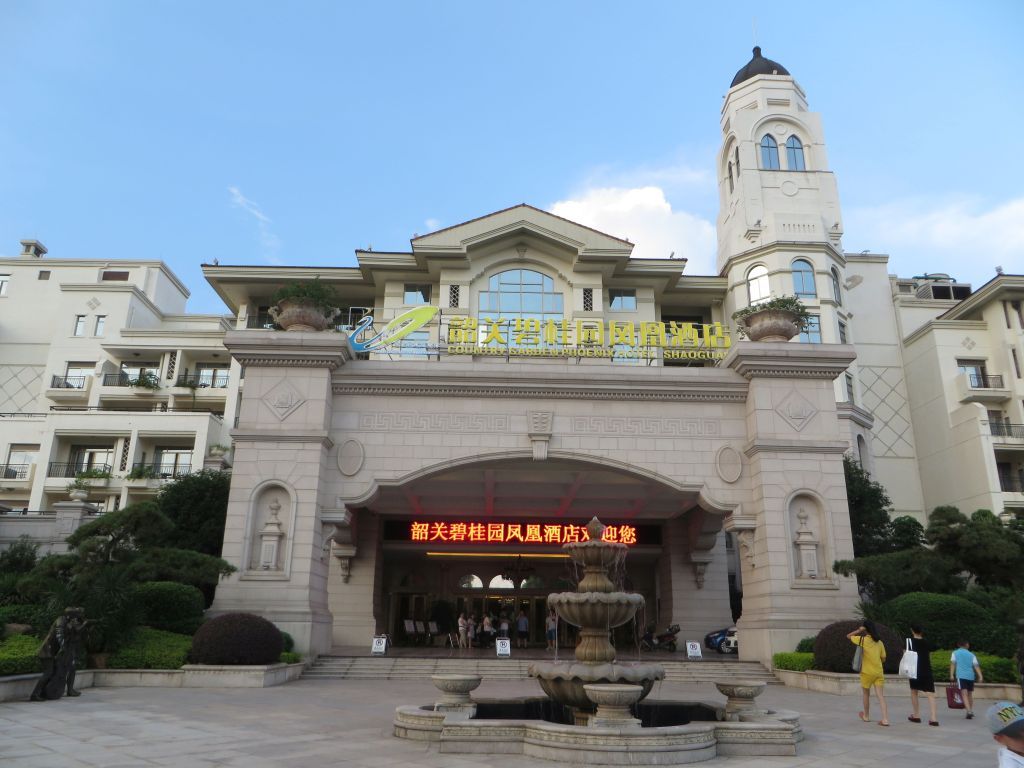
But this is what you discovered when entering the lobby, which was entirely in marble (on the ground) and Italian-style frescoes (on the walls and overhead). The reception was on the left
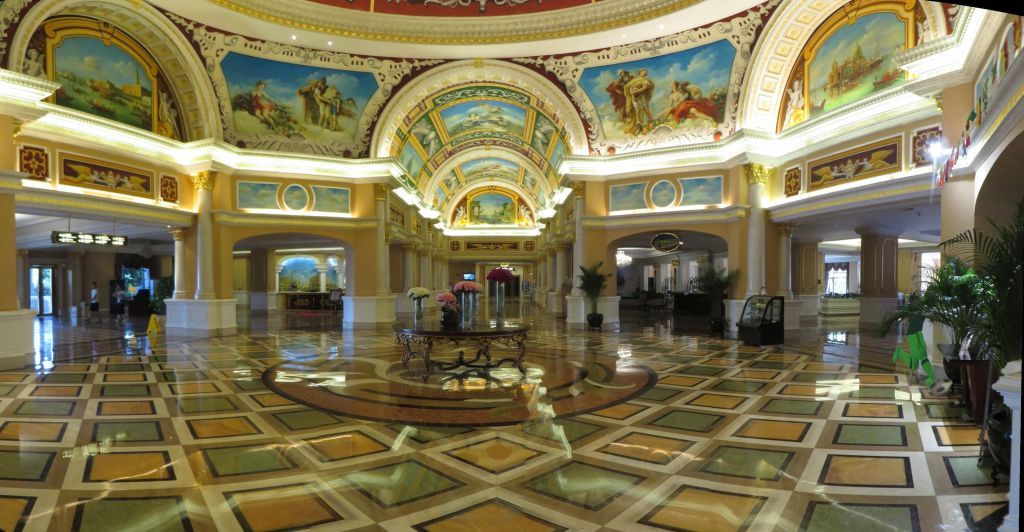
…in front of the Venetian panoramas
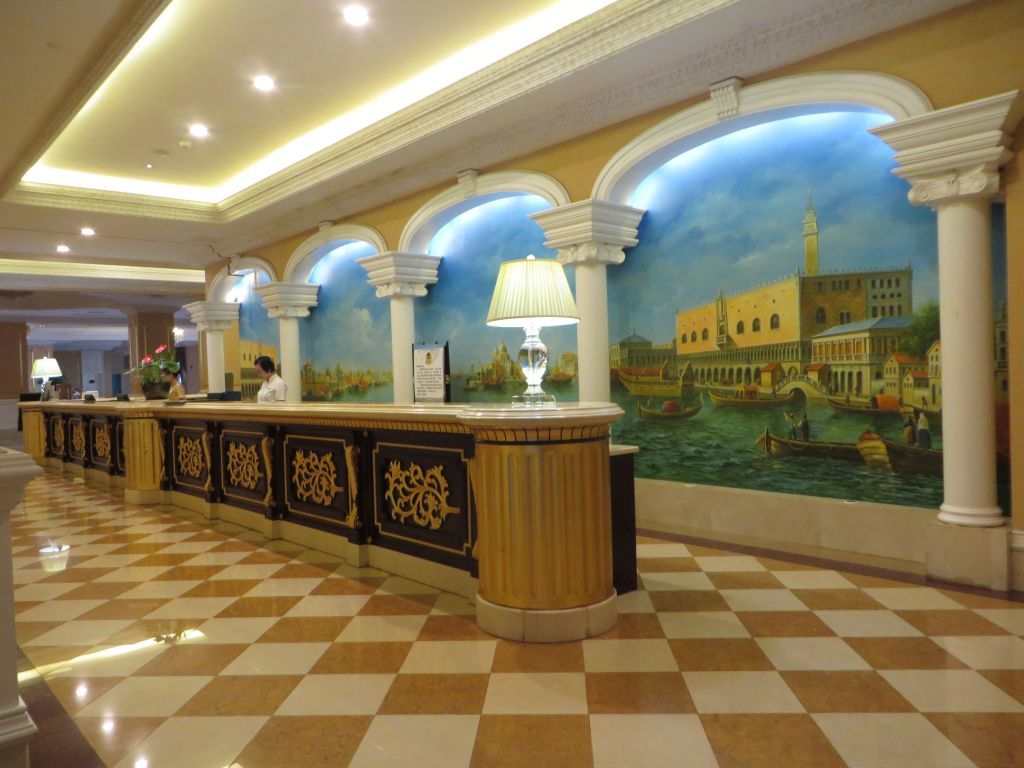
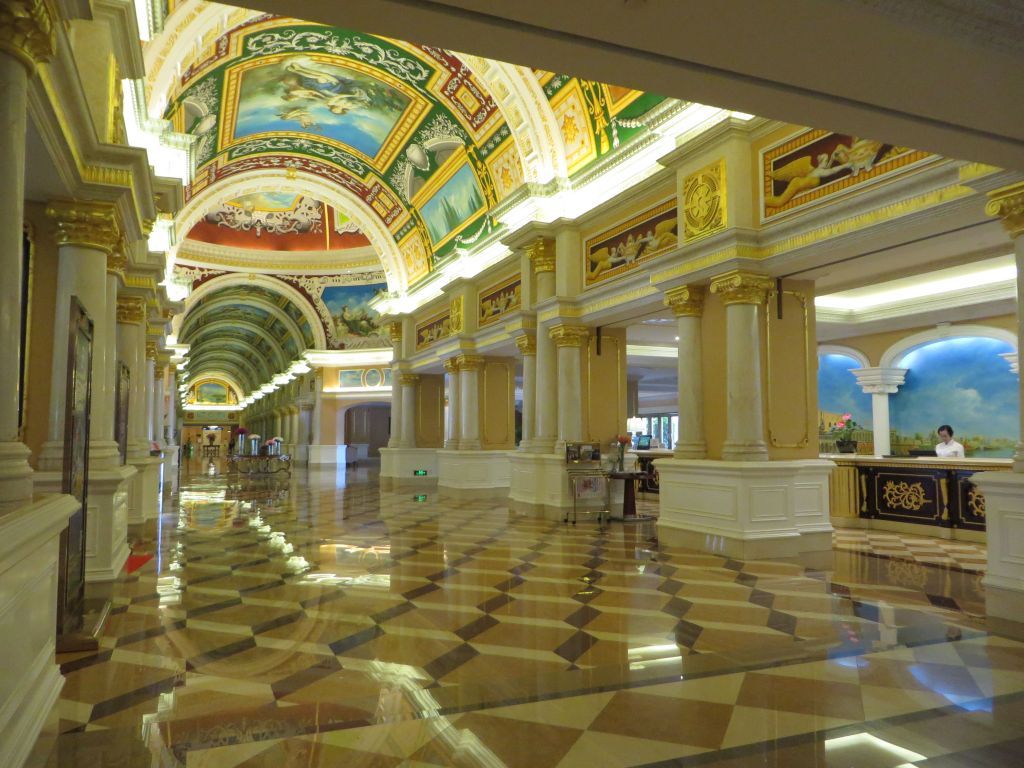
The lift to the rooms ? It was this way…
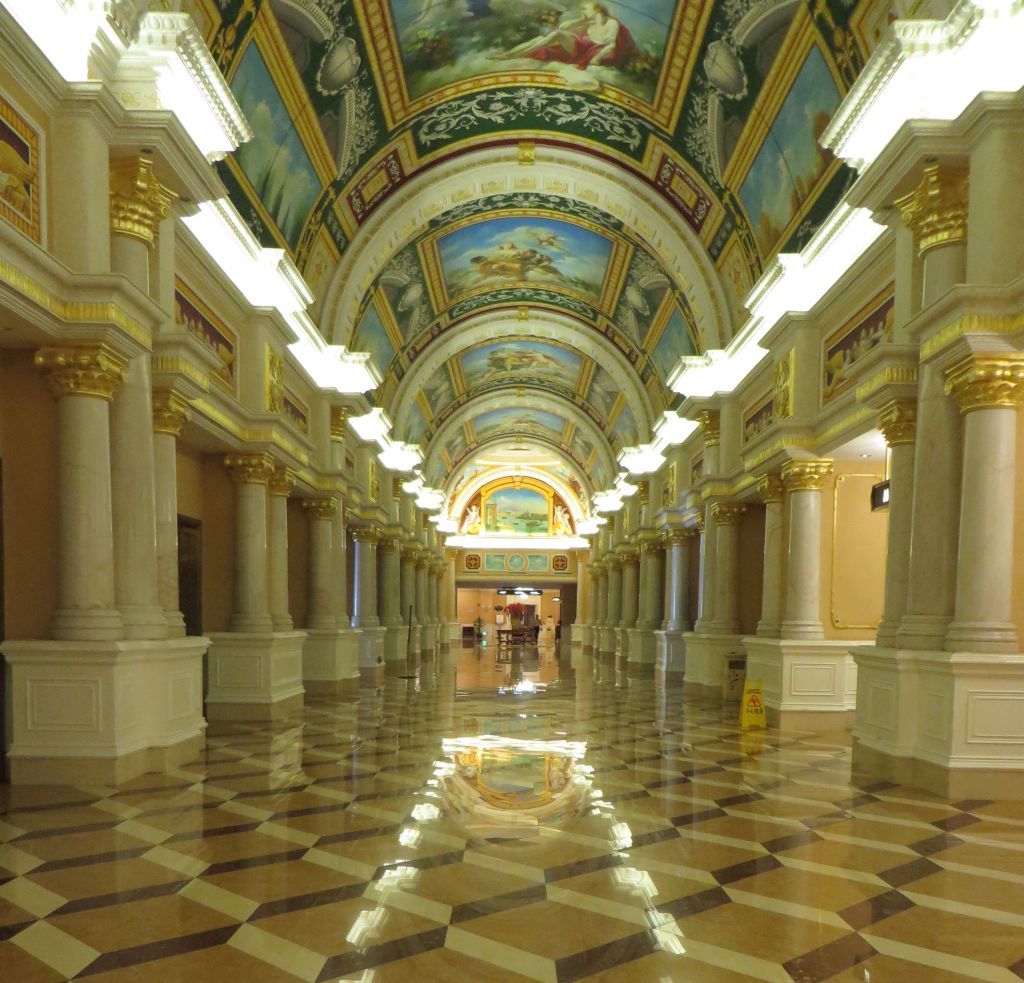
Granted, this hotel was no historic monument. On the other hand, Nanhua Temple 南华寺, whose history starts in Year 501 is one, even though the buildings were extended or rebuilt several times in the past.
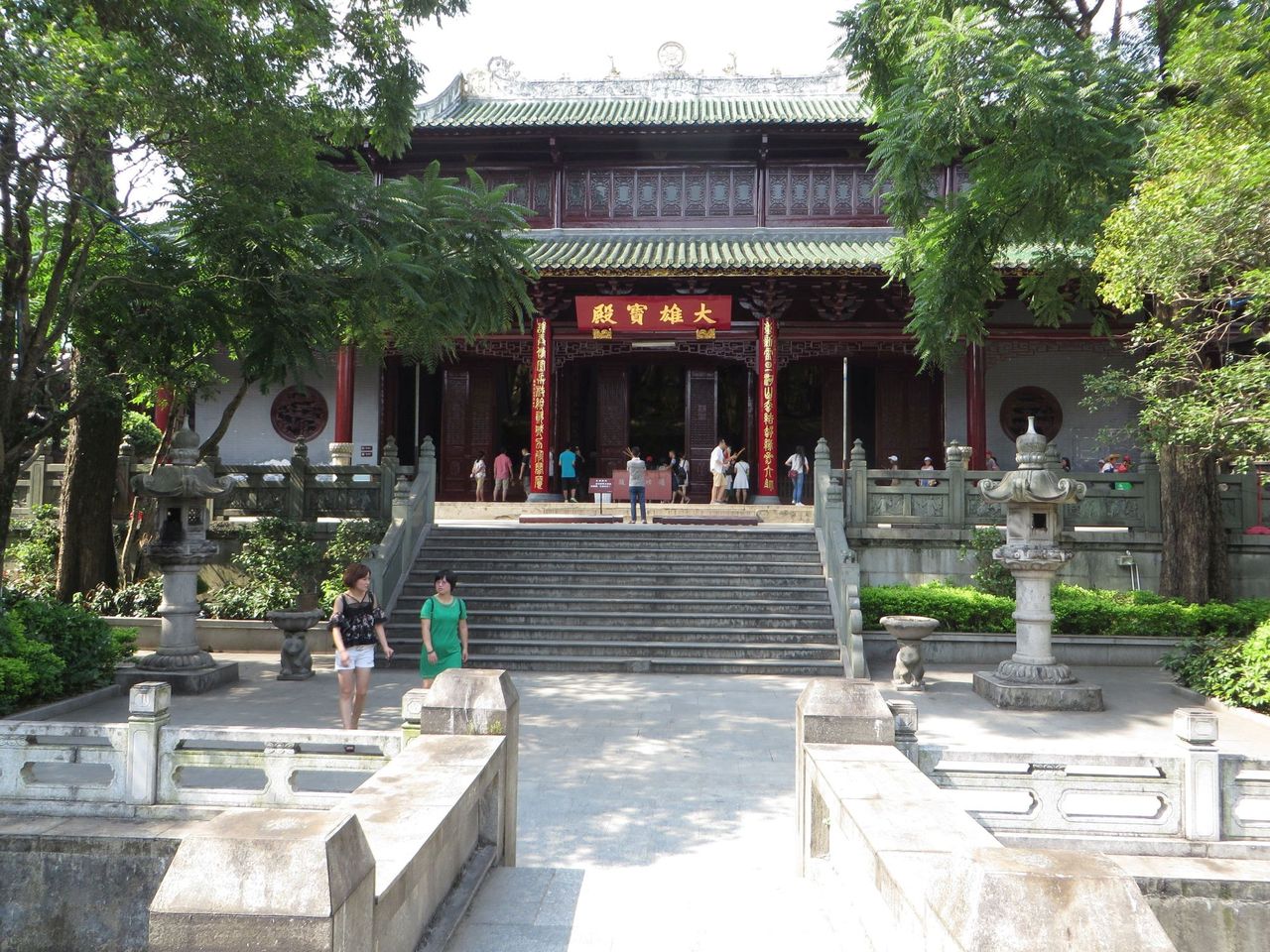
It is some distance from modern days Shaoguan, which does not help making it a major tourist spot.
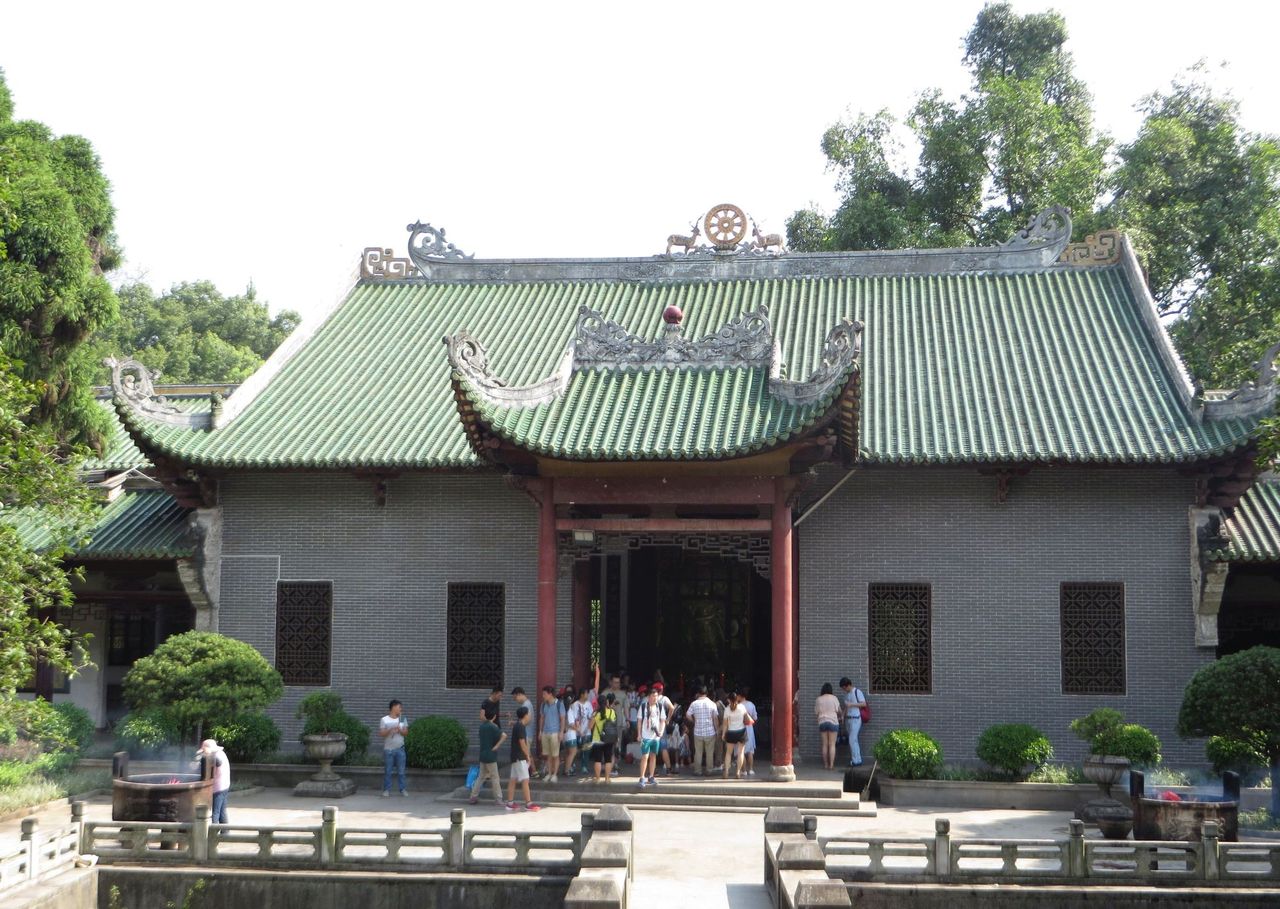
The highlight of this temple is three natural mummies of monks (one from the 7th century, the other two from the 17th century). Reflections on the glass casings and lack of lighting dissuade the taking of surreptitious pictures. As a replacement, this is a picture of the illustration of the explanation sign, which is much better than any picture of the real thing that I could have taken while dodging the guard’s attention.
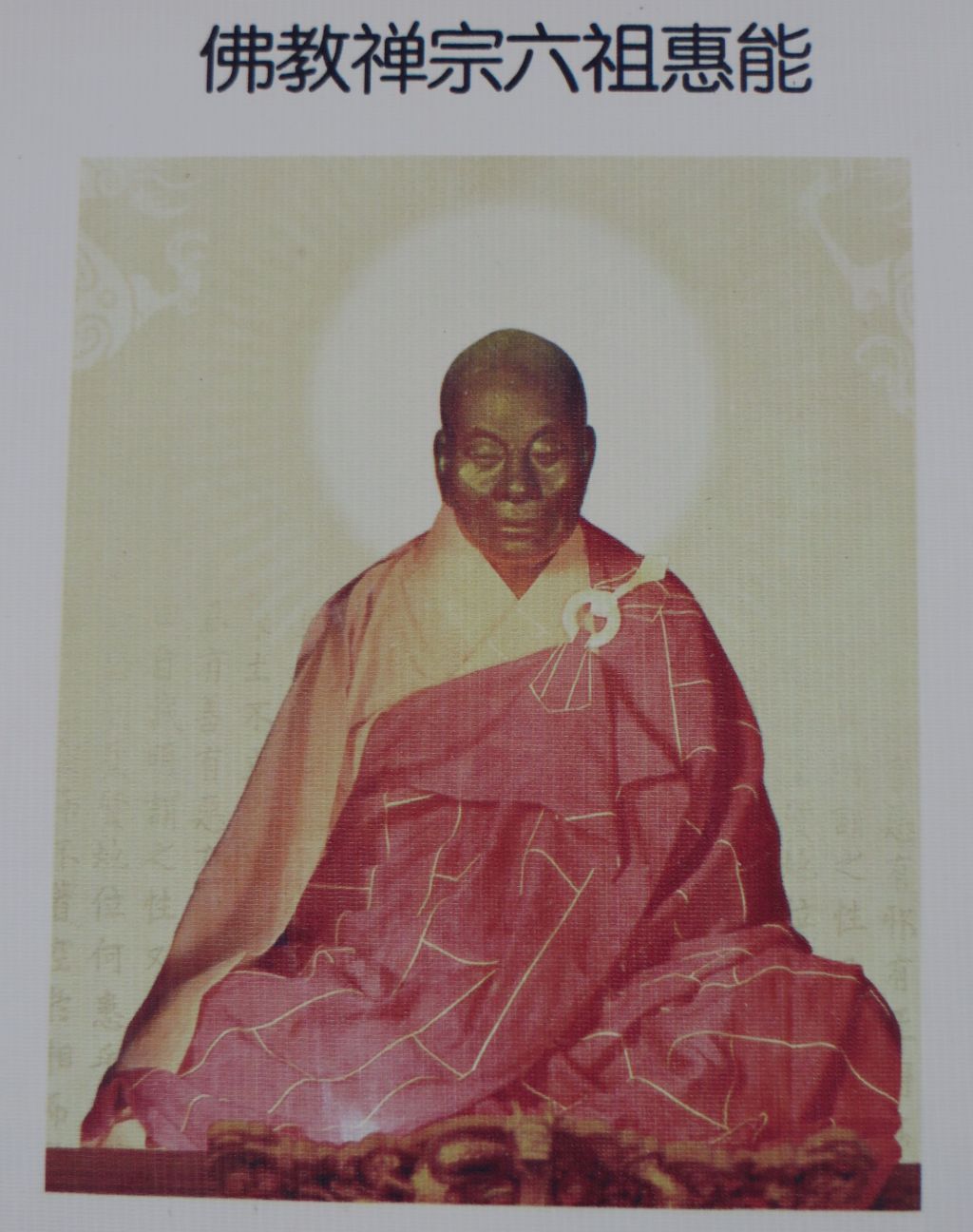
A not very authorized of the three Buddhas (of past, present and future) of the central pavilion.
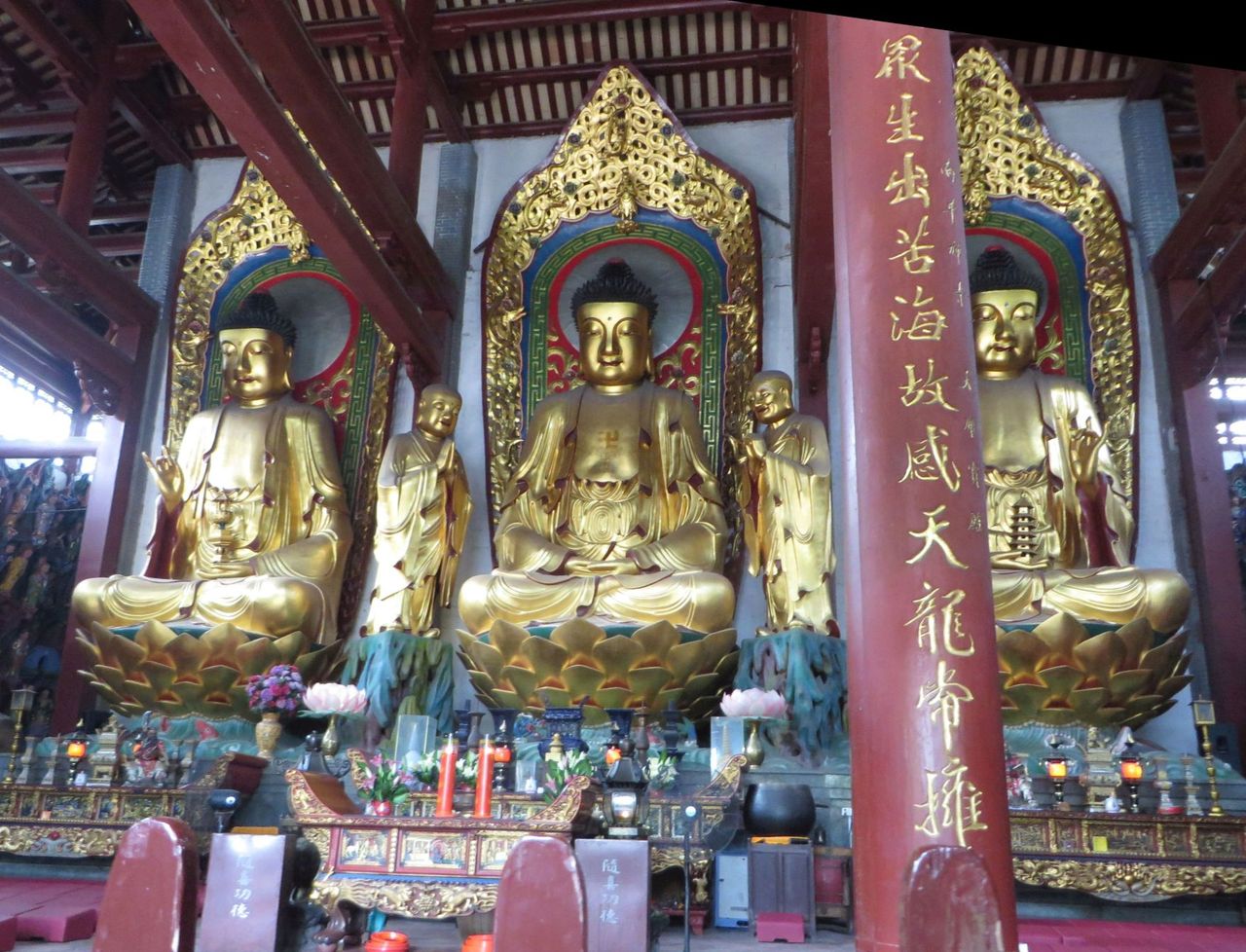
This is actually a monastery which is still active ; these are the buildings used by the monks.
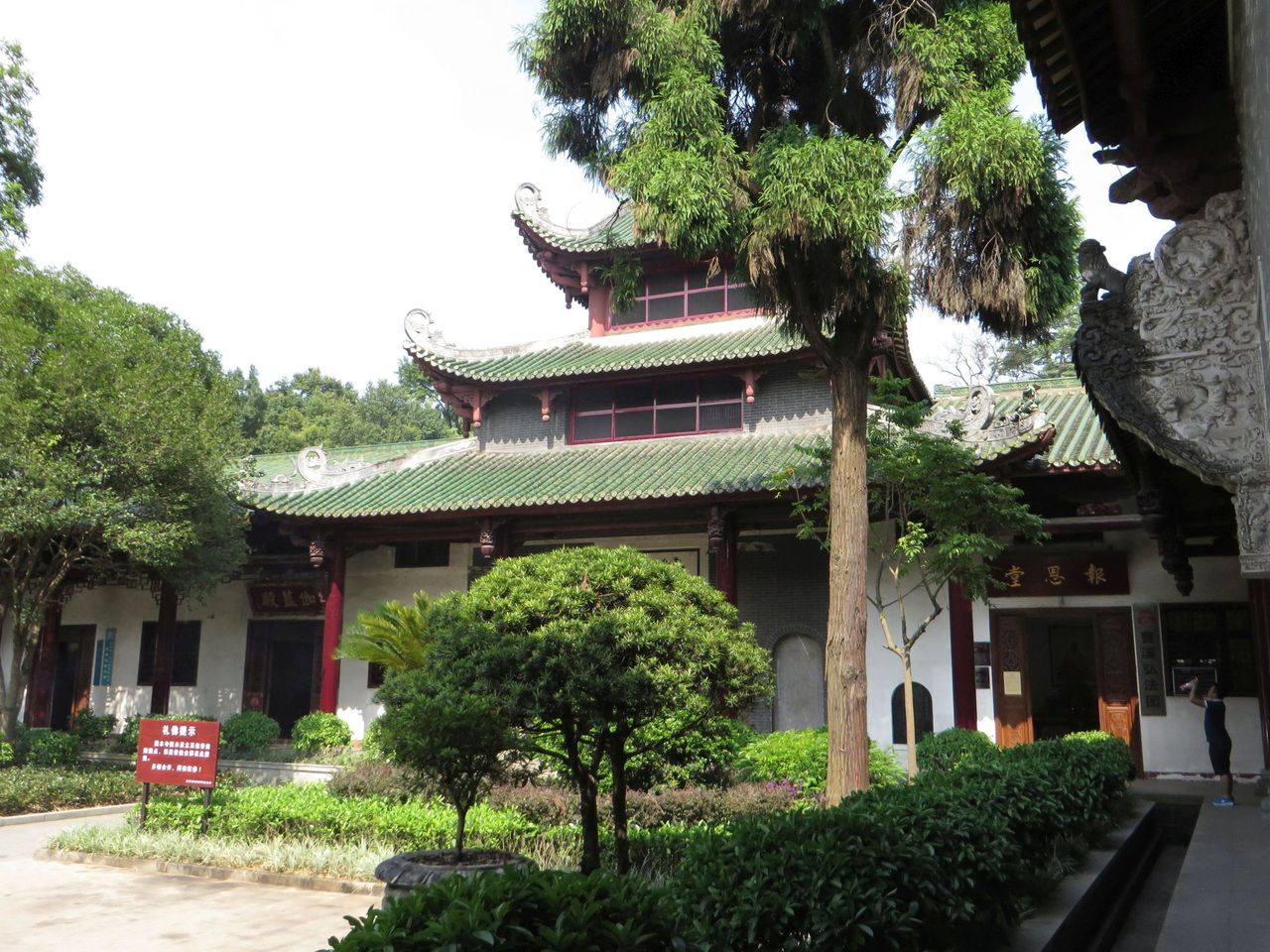
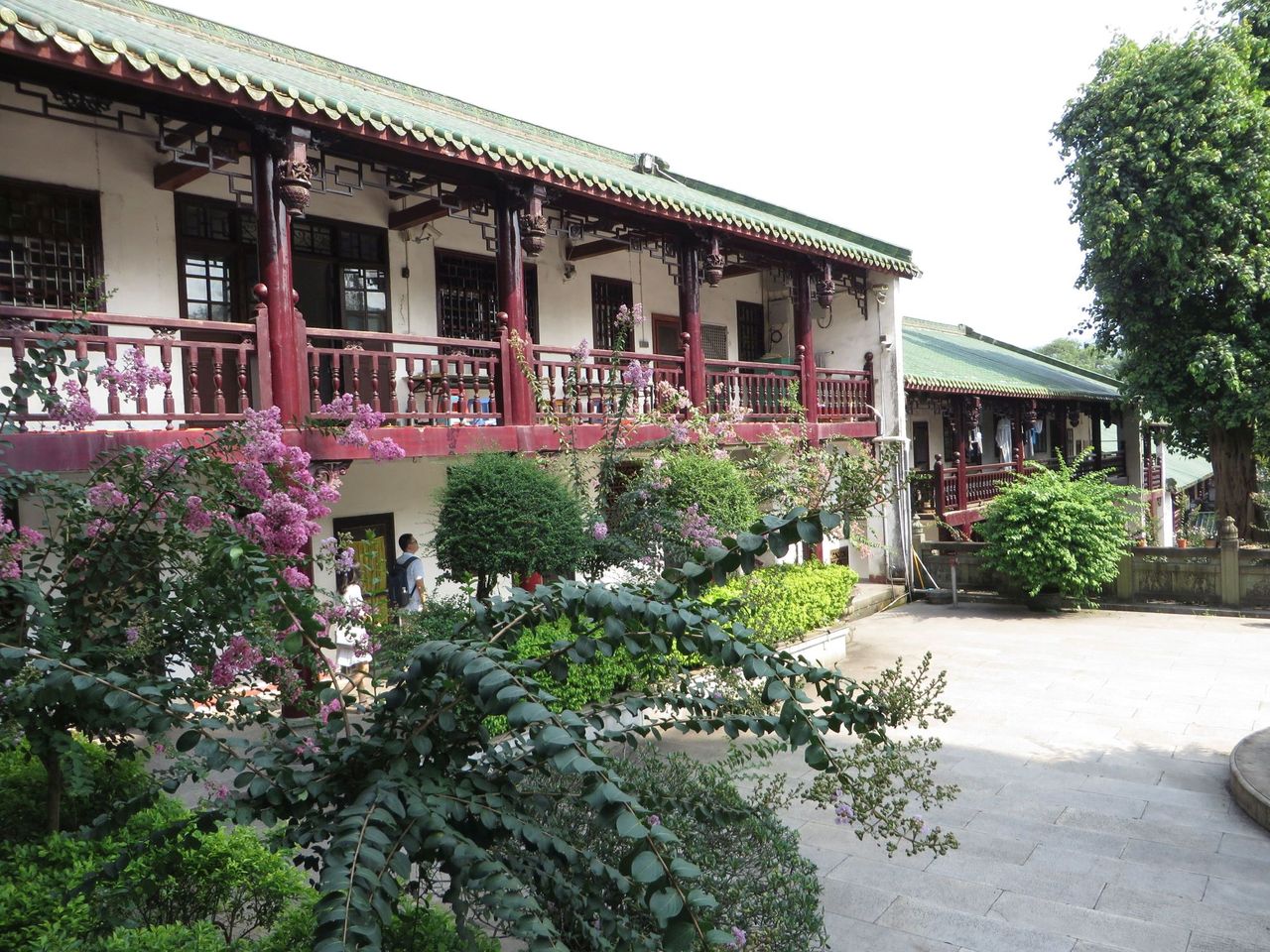
The other major local tourist spot is one of China’s Danxia (a geological form)
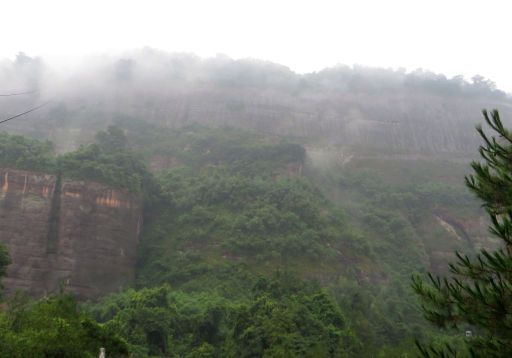
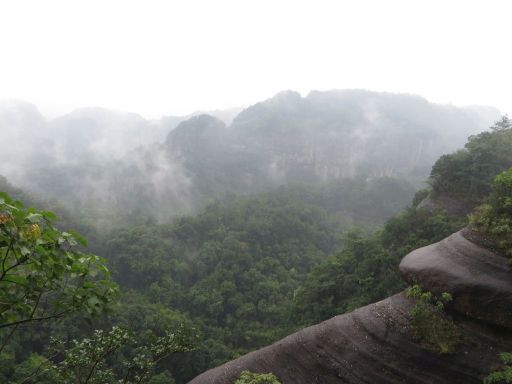
We were unlucky to have bad weather that Sunday, versus a searing heat with blue sky the day before at Nanhua Temple. Due to the rain, we did not take this trail going up a cliff, and took an easier trail up the mountain.
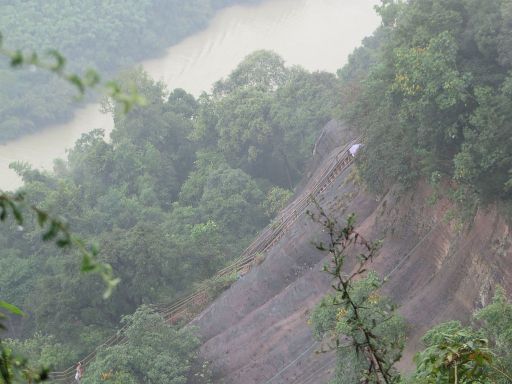
A hermitage which was inhabited, because clothes where drying under the cliff’s overhang
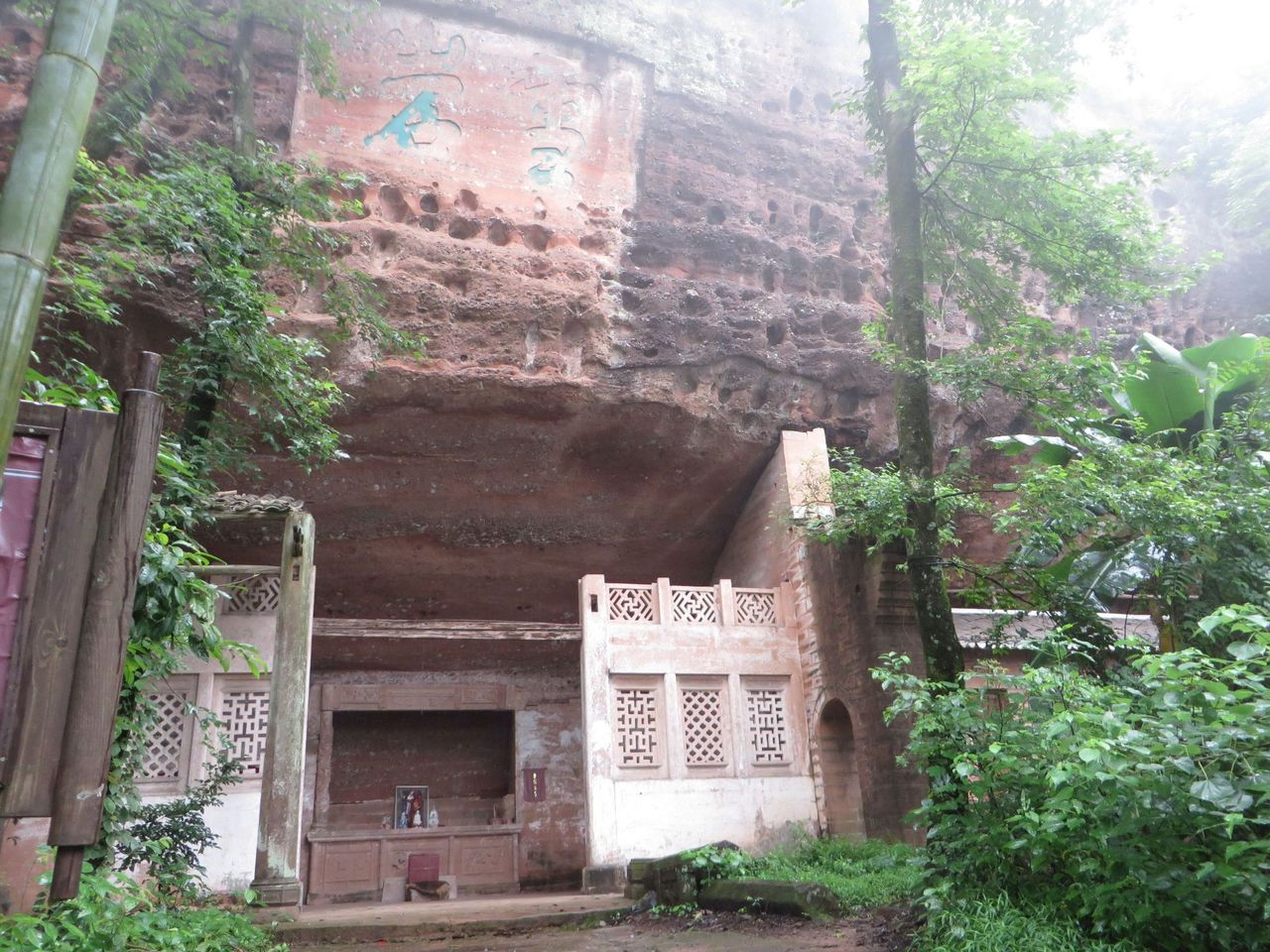
After being drenched with rain or sweat (for those who chose to wear rain gear), a hearty lunch was welcome.
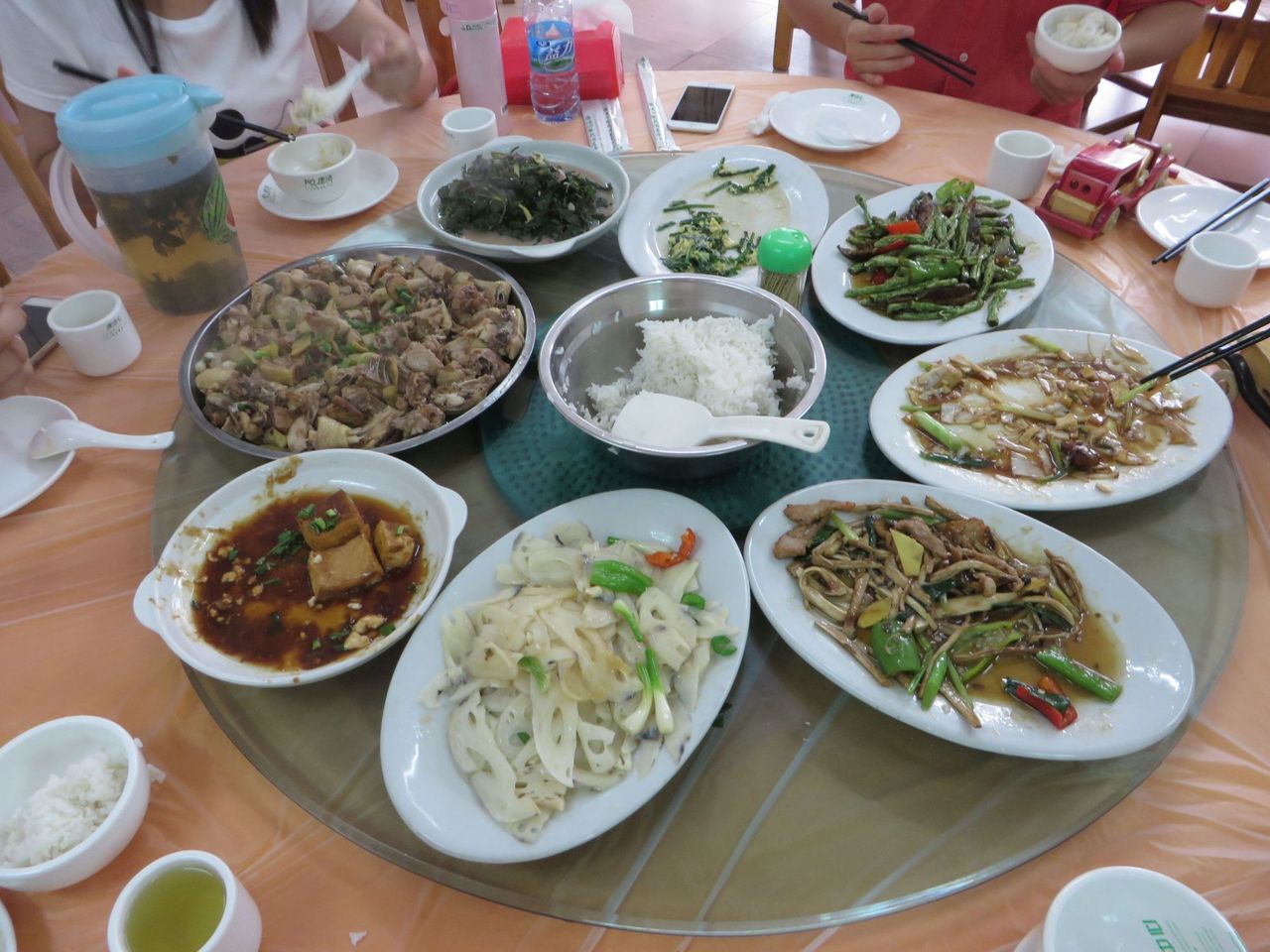
And in particular this delicate dish that the Chinese love : chicken feet, hacked in chopsticks compatible pieces with all the bones.
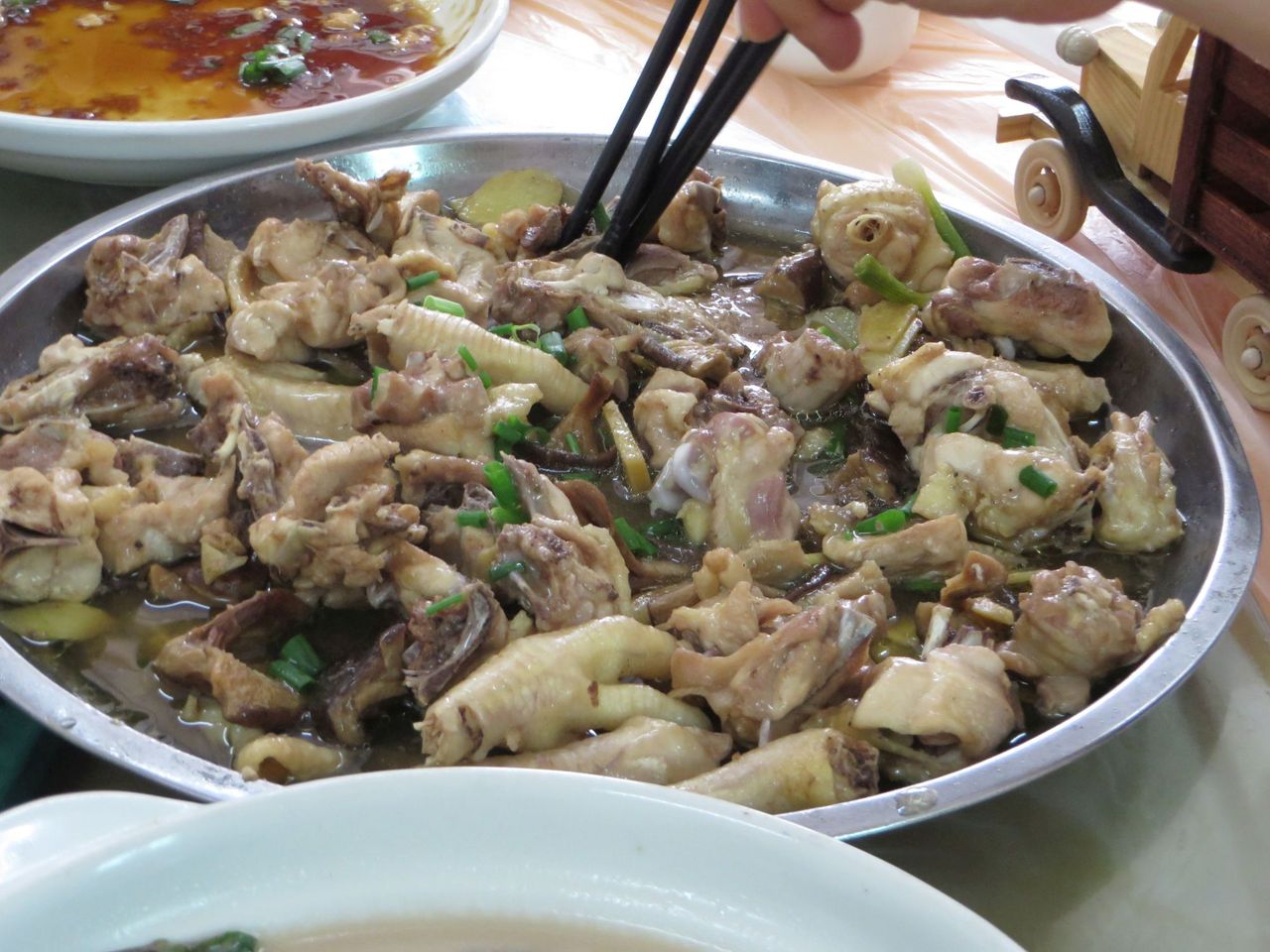
The weather was poor, but we nevertheless had a decent view of this must-see rock in Shaoguan’s Danxia in the afternoon. There were families with kids : geological education starts early in China :)
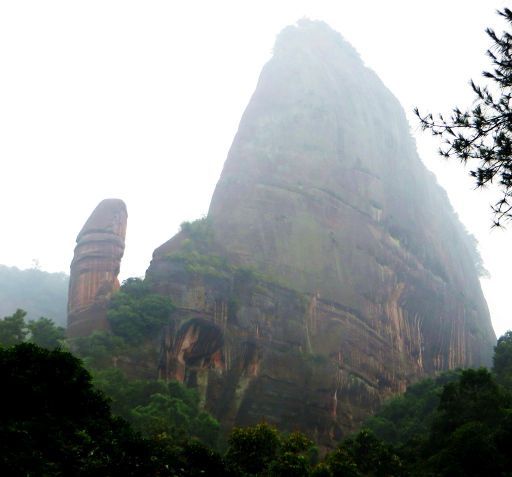
Any need to comment ?
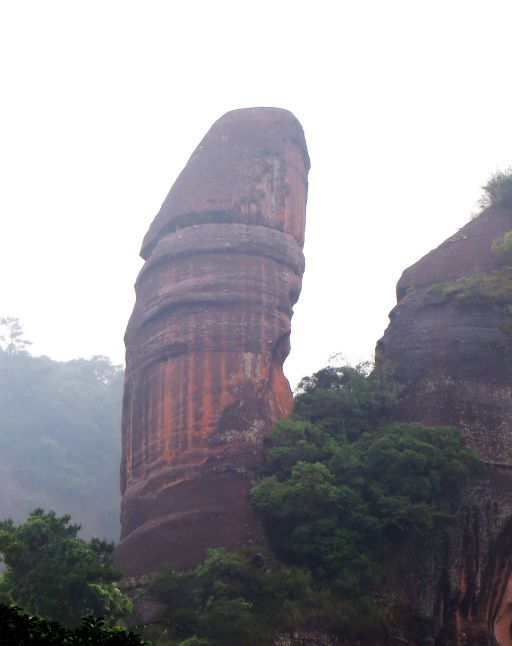
Time was not enough for reaching the very female opening slit of a natural cave. We needed to go back to Shaoguan to take the train to Guangzhou South Station, then go all the way through the Guangzhou urban areas by subway to reach the airport north of Guangzhou. The story continues at the beginning of this FR that you can read again if you missed something :)
Thanks for reading me !
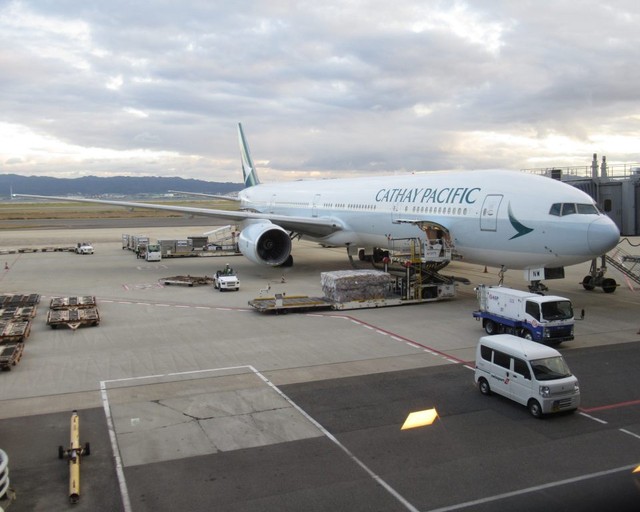
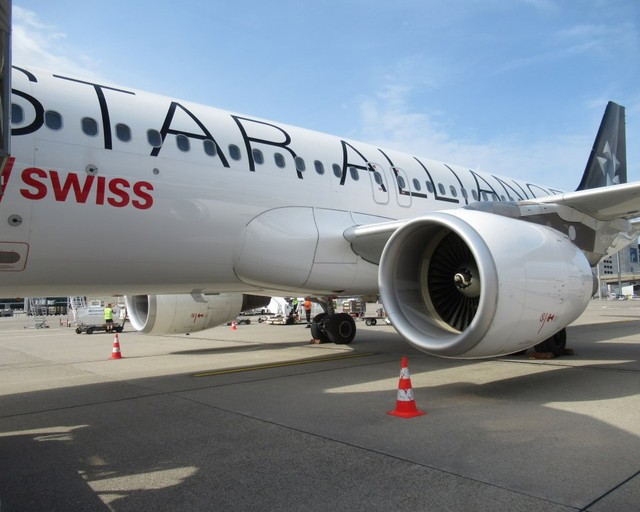
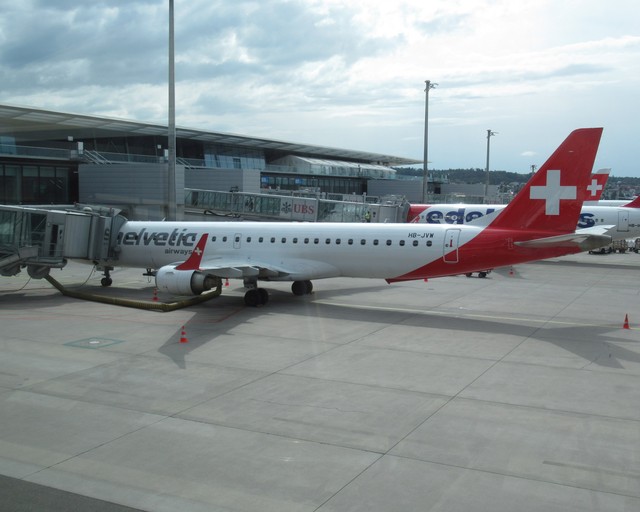
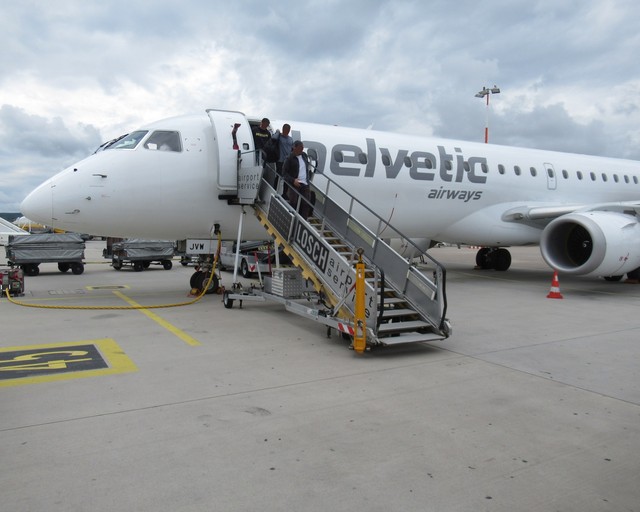
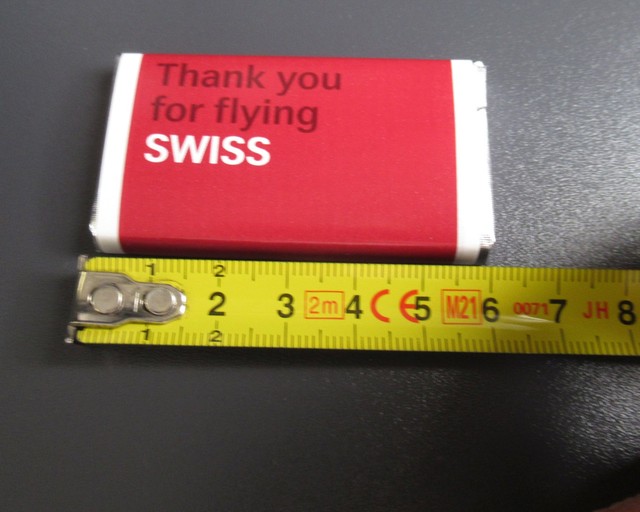
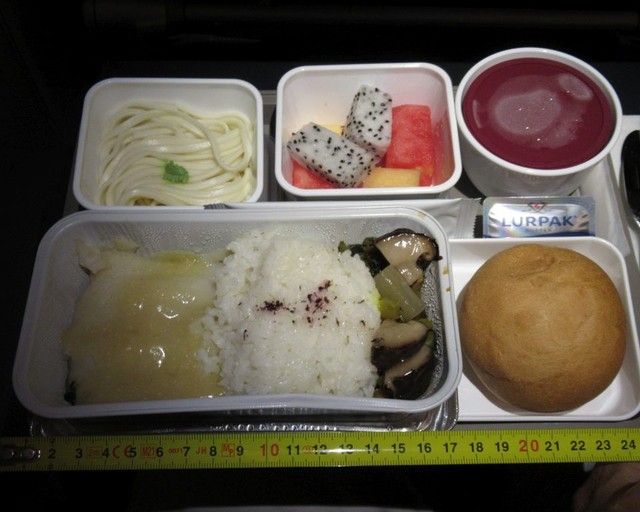

"Defloration inspection" for carrying a lithium battery?
A huge funny looking rock?
No wonder they were the first nation to hit the 1500 million mark!!
Wow, I had overlooked this one !
They bring Chinglish to parabolic heights in CAN ! :)
Thanks for your attentive reading and for your comment !
Thank you for sharing this FR with us!
Very interesting and detailed observation of the airport itself, always appreciate that.
Nice spotting shots at CAN!
“I started wondering if we would reach Haikou by bus.“
- Imagine if the bus displayed “HU7010 Haikou“ like they do at CDG.
Excellent tarmac shots.
Thank you for the great bonus!
Hilarious ending hahaha.
Have a good one, see you!
China is great for taking pictures of airports and planes, because there are no restrictions (apart from the security check and immigration, as usual) and there are so many different airlines (and airports, too!).
This rock was obviously very popular; there was even a viewing platform for it.
Thanks for your comment
Thank you for this interesting report on an exotic Chinese domestic route. Although, I guess it's not that exotic for Hainan Air flying to Hainan :-)
Overall typical domestic service with no surprises. Interesting that Economy starts at 31. Is there a reason that Chinese carriers do this?
Nice bonus! That hotel in Shaoguan looks like a big Vegas or Macao hotel on the inside! Over the top opulent!
Thanks for sharing!
This was not a very exotic route from a Chinese perspective, being between CZ's main hub and HU's main hub, resulting in an ample choice of flights.
My uneducated guess is that with this numbering rule, the ground staff know that rows 31 onward are Economy, no matter the type of the aircraft.
Thanks for yous comment !